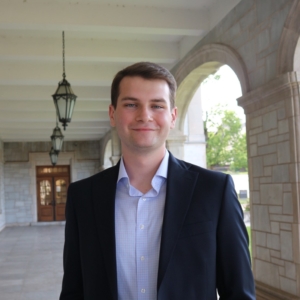CRA Outstanding Undergraduate Researcher Award
 This award program recognizes undergraduate students in North American colleges and universities who show outstanding research potential in an area of computing research. Click here for nomination information.
This award program recognizes undergraduate students in North American colleges and universities who show outstanding research potential in an area of computing research. Click here for nomination information.
The CRA Outstanding Undergraduate Researcher Award is made possible through the generous support of Sandia National Laboratories and Lawrence Berkeley National Laboratory (LBNL). These esteemed research institutions are part of the U.S. Department of Energy’s National Laboratory System, dedicated to advancing science and technology to address critical national challenges. We are deeply grateful for their commitment to fostering emerging talent and excellence in computing research. Their sponsorship ensures that exceptional undergraduate researchers are recognized and supported as they contribute to the future of the field. Prior to 2025, Mitsubishi Electric Research Labs and Microsoft Research were sponsors in alternate years.
Thank you to our 2025 sponsors:


The CRA Outstanding Undergraduate Researcher Award is made possible through the generous support of Sandia National Laboratories and Lawrence Berkeley National Laboratory (LBNL). These esteemed research institutions are part of the U.S. Department of Energy’s National Laboratory System, dedicated to advancing science and technology to address critical national challenges.
We are deeply grateful for their commitment to fostering emerging talent and excellence in computing research. Their sponsorship ensures that exceptional undergraduate researchers are recognized and supported as they contribute to the future of the field.
Recipients
Sponsors: Sandia National Laboratories and Lawrence Berkeley National Laboratory (LBNL).
Selection Committee: Jonathan Bell (Northeastern University) and Steven Swanson (University of California, San Diego), who led this year’s efforts. CRA is also grateful to Alex Psomas (Purdue University), Bo Zhu (Dartmouth College), Brittany Duncan (Nebraska-Lincoln University), Evan Peck (University of Colorado, Boulder), Foteini Baldimtsi (George Mason University) Hadi Hosseini (Pennsylvania State University), Micheal Spear (Lehigh University) Rahmat Beheshti (University of Delaware), and Xanda Schofield (Harvey Mudd College)
Awardees
Chris Trevisan
University of Waterloo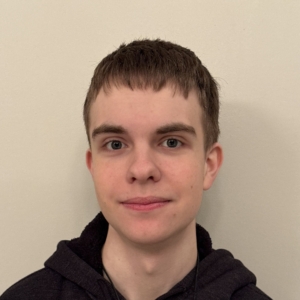
Chris Trevisan is a junior at the University of Waterloo, majoring in Computer Science. His research area includes theory and algorithms. Chris’ research contributions have focused on improving algorithms for sorting datasets in the context of uncertainty. In this “adversarial comparison” model, the sorting algorithm must account for the possibility that it is impossible to distinguish the relative order of pairs of elements in a list, while it may be possible to rank those elements relative to others. His research provides a new algorithm for this challenge, which he published at Symposium on Discrete Algorithms (SODA) 2024. Outside of research, he is involved in programming competitions such as the Canadian Computing Competition and Canadian Computing Olympiad. He also serves as a tutor for many math and computer science courses.
Gene Kim
Stanford University 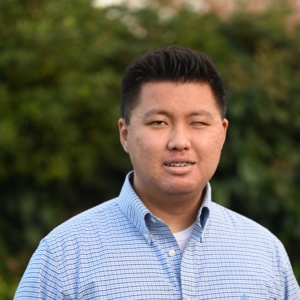
Gene Kim is a senior at Stanford University, majoring in Symbolic Systems. His research area is Human Computer Interaction, with a specific focus on assistive technology to support blind and visually impaired people. Extending his research network beyond Stanford, Gene has collaborated with faculty at the University of Washington, Northeastern University and the University of Chicago to design, engineer, and evaluate new approaches to support blind users (like himself) in tasks such as 3D printing, machine knitting, and circuit design. His research contributions have been published in selective venues including SIGACCESS, CHI and TACCESS. Outside of research, he has served as an undergraduate teaching assistant for introductory computer science courses. He also serves as a leader in a blindness advocacy organization, co-founded an international mentorship program for aspiring blind scientists and engineers, and teaches blind youth about STEM.
Hannah Guan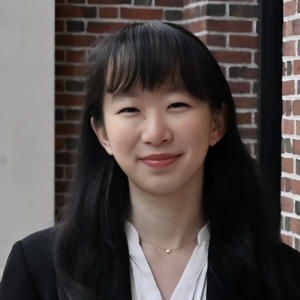
Harvard College
Hannah Guan is a sophomore at Harvard College, majoring in Computer Science and Statistics. Her research area is bioinformatics/computational biology. Her projects have focused on identifying the complex relationship between genetics and aging-related health traits. She has won numerous leadership, academic, and research awards. Hannah is also a leader in her community Serving as the Director of Research at Charles River Economics Labs and the Director of Programming at Harvard WECode Conference. She is also the founder and CEO of Math Include, a non profit for youth development and education equity.
Helena Vasconcelos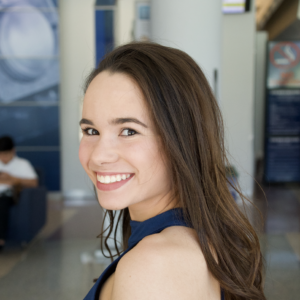
Stanford University
Helena Vasconcelos is a senior at Stanford University, majoring in Symbolic Systems with a concentration in Artificial Intelligence. Her research projects focus on improving the understandability and explainability of AI systems, using methods from human computer interaction . She has first authored multiple papers that identify limitations of AI-based systems, contributing to a scientific model of how generative AI techniques like large language models can be relied upon to support human decision making. Outside of research she is heavily involved in theater, the Stanford Equestrian Team, and outdoor education.
Jonathan Ivey
University of Arkansas
Jonathan Ivey is a senior at the University of Arkansas, majoring in Data Science and Mathematics. His research areas include natural language processing and data science/analytics. His recent project focused on automated approaches for determining the stress level of individuals based on their social media posts. Stress detection is an important method in mental healthcare research, as it enables a large-scale analysis of stress levels avoiding the biases of self-reported stress levels. Prior research in this area, however, has not considered the performance of these models on content generated by minority communities. Jonathan performed an empirical evaluation that demonstrates how ineffective prior approaches are on detecting stress levels from minority populations and developed a new approach that performs as well on all groups. Outside of research, he is Director of Policy, and the Director of Student Relations for his student government. He also has served as an ACT and Mathematics tutor and mentored numerous students from rural Arkansas through the Celebrating Discovery program.
Kerria Pang-Naylor
Harvey Mudd College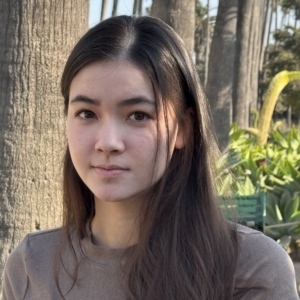
Kerria Pang-Naylor is a senior at Harvey Mudd College, majoring in Computer Science and Mathematics. Kerri’s research in artificial intelligence has examined fundamental approaches to model error guarantees for abductive inference. Abductive inference refers to the ability to draw a likely conclusion based on a set of observations (e.g. “I just woke up and the ground is wet” might lead to the inference “it rained last night”), and incorporating this kind of reasoning into artificial intelligence is challenging. . Outside of research, she has been a tutor for computer science and mathematics courses.
Prasann Singhal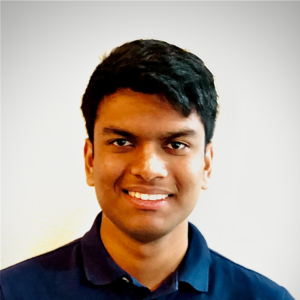
University of Texas at Austin
Prasann Singhal is a senior at the University of Texas at Austin, majoring in Computer Science and Linguistics. His research area includes artificial intelligence and machine learning, with a focus on improving the text generation abilities of large language models. In one project, Prasann identified a significant limitation of a widely-used method ( reinforcement learning from human feedback) that is used to train and evaluate large language models like ChatGPT. Building on this work, Prasann developed a new approach for improving these fine-tuning methods. Outside of research, Prasann serves as an officer for Laurel Co-operative, a student-run affordable housing community in Austin. He also is the founder of the Katy HACK Initiative which provides weekly lessons on Computer Science topics for elementary/junior high students.
Venkataram Sivaram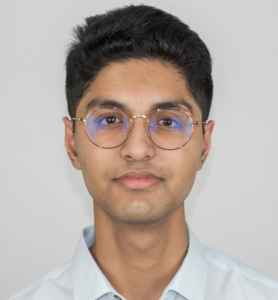
University of California, San Diego
Venkataram Sivaram is a senior at the University of California, San Diego, majoring in Computer Science and minoring in Mathematics. His research area includes graphics, visualization, and computational geometry. His research has appeared at the ACM SIGGRAPH symposium, and focuses on methods to accelerate rendering of complex scenes like those in video games and movies. For example, Venkataram developed a new approach for representing complex geometries for real-time rendering of complex meshes. Outside of research, he has been a Junior Counselor for the Rose Mathematics Program and a tutor for Computer Graphics.
Runners Up
Arya Teymourlouei, University of Maryland, College Park
Cailyn Smith, Colorado School of Mines
Claire Jin, Carnegie Mellon University
Jake Ginesin, Northeastern University
Juntao Ren, Cornell University
Phevos Paschalidis, Harvard College
Ria Doshi, University of California, Berkeley
Srinath Mahankali, Massachusetts Institute of Technology
Finalists
Abihith Kothapalli, Vanderbilt University
Alan Baade, University of Texas at Austin
Alyssa Hanson, Colorado School of Mines
Andrew Balch, University of Virginia
Artem Agvanian, Brown University
Benjamin Kim, University of Illinois Urbana-Champaign
Cordelia Ludden, Tufts University
Corinn Tiffany, Brown University
Dutch Hansen, University of Southern California
Emre Adabag, Columbia University
Haritheja Etukuru, New York University
Harry Chen, Duke University
Hriday Chhabria, University of Michigan
Jiayue (Gaveal) Fan, Cornell University
Jizheng He, University of Illinois Urbana-Champaign
Kerem Dayi, Harvard College
Kuan Heng (Jordan) Lin, University of California, Los Angeles
Mai Bui, Mount Holyoke College
Maxine Liu, Harvey Mudd College
Owen Eckart, Purdue University
Ryan Milstrey, University of California, Merced
Taiming Lu, Johns Hopkins University
Vishak Srikanth, Yale University
Will Liang, University of Pennsylvania
Honorable Mentions
Aaron Gershkovich, Tulane University
Aaron Lin, University of Kentucky
Abir Haque, University of Kansas
Adam Jovine, Cornell University
Aditya Mittal, University of California, Davis
Adrian Ciotinga, Arizona State University
Advait Vartak, University of Maryland, College Park
Advaith Balaji, University of Michigan
Alexander Metzger, University of Washington
Alex Zalles, Rice University
Alexandra Gillespie, Colby College
Ally Du, Carnegie Mellon University
Amber Arquilevich, Cornell University
Aminah Aliu, Princeton University
Andrew Gautier, West Virginia University
Angelina Zhai, University of Toronto
Anirudh Manjesh, Arizona State University
Anirudh Satheesh, University of Maryland, College Park
Anisha Tehim, Cornell University
Anri Gu, University of Michigan
Anzi Wang, Colgate University
Arya Rathee, University of California, Merced
Aryan Gulati, University of Southern California
Ayush Gowda, Florida Atlantic University
Benjamin Peter, University of Missouri
Benny Rubin, Cornell University
Brian Chen, Northwestern University
Byron Butaney, Brown University
Carter Nichols, Florida Atlantic University
César Guerra-Solano, University of Pittsburgh
Charlotte Versavel, Tufts University
Christopher Kverne. Florida International University
Chu Xin (Cloris) Cheng, California Institute of Technology
Chun-Cheng Chang, University of Washington – Seattle
Dahana Moz Ruiz, Kean University
Daniel Cao, Cornell University
Daniel Feng, University of Illinois Urbana-Champaign
Danny Rose, University of California, Santa Barbara
Darshan Mehta, Haverford College
Deniz Boloni-Turgut, Cornell University
Edmund Sumpena, Johns Hopkins University
Eisuke Hirota, Binghamton University
Elizabeth Polito, Cornell University
Emily Amspoker, Carnegie Mellon University
Ethan Gabizon, Cornell University
Florian Reihl, University of Pittsburg
Freddy Yifei Liu, University of Pennsylvania
Gabriel Pizarro, University of California, Santa Barbara
Garima (Arya) Yadav, Arizona State University
Gary Peng, University of Maryland, College Park
Grace Oualline, Carnegie Mellon University
Guancheng Tu, University of Virginia
Hanna Mofid, University of California, Irvine
Hao Jiang, University of Southern California
Helen Li, University of Toronto
Heng Zhao, Wake Forest University
Hugo Abbot, University of Virginia
Hyun (Joe) Jeong, University of California, San Diego
Jaclyn Liquori, Cornell University
Jacqueline Hernandez, Metropolitan State University of Denver
James Crea, Colorado School of Mines
James Kim, Cornell University
James Zhang, Princeton University
Janet Jiang, Duke University
Jash Parekh, University of Illinois Urbana-Champaign
Jason Klein, Cornell University
Javier Linero-Quintana, Princeton University
Jefferson Charles, Florida Atlantic University
Jevon Lipsey, Colorado College
Jialiang Yan, University of Alberta
Jiaqian Li, Columbia University
Jiayi Chen, University of Wisconsin – Madison
Jiwon Moon, Johns Hopkins University
Joe Ontiveros Rodriguez, University of Denver
Joonhyuk Ko, University of Virginia
Josh Barua, University of California, Berkeley
Josh De Leeuw, Cornell University
Joshua Gorniak, Boston College
Joshua Kim, Carnegie Mellon University
Junru Lin, University of Toronto
Kaleb Newman, Brown University
Katherine Gash, University of North Texas
Katherine Sheccid Quintanilla, Tufts University
Kechen Liu, Columbia University
Kelly Raines, Arizona State University
Kenan Wood, Davidson College
Kenneth Yang, University of Washington – Seattle
Kevin Hayes, Northwestern University
Kian Mahmoodi, Cornell University
Klara Chura, Tufts University
Kyle Smith, University of California, San Diego
Kyungbok Lee, University of Rochester
Leo Tenenbaum, University of Toronto
Leyao Wang, Vanderbilt University
Lie Ward, Northeastern University
Lily Klucinec, Carnegie Mellon University
Lingbo Duan, University of Michigan
Logan Bolton, Auburn University
Lucy Luo, University of British Columbia
Luis Hernandez Rocha, Cornell University
Luis Miguel Sy Malenab, Cornell University
Luisa Mao, University of Texas at Austin
Luke Robinson, Auburn University
Luna Wang, University of British Columbia
Ly Nguyen, Dartmouth College
Maaya Kanvar, Cornell University
Maggie Cai, Carnegie Mellon University
Mary Zhang, Cornell University
Marcus Gozon, University of Michigan
Marko Veljanovski, Northwestern University
Matthew Iceland, University of Rochester
Matthew Laws, Williams College
Maxwell Lin, Duke University
McKenna Quam, Northeastern University
Michal Lewkowicz, Yale University
Michelle Si, Duke University
Mohan Yang, University of California, Irvine
Muhammad Danish, University of New Mexico
Muhammad Jee, Cornell University
Muneeba Ashiq, University of British Columbia
Naomi Rehman, University of California, Santa Cruz
Natalie Chalfant, Mount Holyoke College
Natalie Nguyen, Cornell University
Nina van Hoorn, Skidmore College
Owen Raymond, Colby College
Owen Strength, Auburn University
Pablo León Alazraki Salas, ITAM Instituto Tecnológico Autónomo de México
Peter He, Cornell University
Peter Yang, University of Wisconsin – Madison
Qingyun (Anne) Yang, Vanderbilt University
Rana Tuncer, University of Delaware
Reagan Razon, Duke University
Reevu Adakroy, Cornell University
Reyhan Jamalova, University of Pennsylvania
Rhett Olson, University of Minnesota
Ritesh Kanchi, University of Washington – Seattle
Rowan Devereux-Smith, Binghamton University
Ryan Diaz, University of Minnesota, Twin Cities
Ryan Wang, University of Southern California
Saad Hossain, University of Waterloo
Sammy Potter, University of Rochester
Samuel Chambers, West Virginia University
Sarah Walker, University of Toronto
Sean Rhee, Northwestern University
Shreedhar Jangam, University of California, Santa Cruz
Siddarth Mamidanna, University of California, Santa Cruz
Smantha Sudhoff, Purdue University
Sofia Giannuzzi, Harvard College
Sonia Fereidooni. University of California, San Diego
Sushrita Rakshit, University of Michigan
Terry Tong, University of California, Davis
Tetsu Kurumisawa, Yale University
Thea Traw, Carleton College
Thor Helgeson, University of Michigan
Tianle Yu, University of California, Santa Barbara
Tianyi Wu, University of Pennsylvania
Tiffany Han, Carnegie Mellon University
Tommy Li, Vanderbilt University
Tong Zhou, University of Virginia
Tori Shen, Carleton College
Tsugunobu Miyake, Bucknell University
Vivek Chari, Johns Hopkins University
William May, Williams College
Willow Yang, Princeton University
Xiyuan You, McGill University
Yahya Sohail, University of Texas at Austin
Yanzhen Shen, University of Illinois Urbana-Champaign
Yifan Zou, University of Chicago
Yiming Xiang, University of Michigan
Yiyi Cai, California Institute of Technology
Yuwei Yang, Vanderbilt University
2024
Sponsor: Mitsubishi Electric Research Labs (MERL).
Selection Committee: Michael Hilton (Carnegie Mellon University), Co-Chair, Steven Swanson (University of California, San Diego), Co-Chair, Alex Psomas (Purdue University), Anna Rafferty (Carleton College), Bo Zhu (Dartmouth College), Brittany Duncan (Nebraska-Lincoln University), Hadi Hosseini (Pennsylvania State University), Jonathan Bell (Northeastern University), Matt Weinberg (Princeton University), Ovidiu Daescu (University of Texas, Dallas), Rahmat Beheshti (University of Delaware), and Tracy Hammond (Texas A&M University)
Awardees
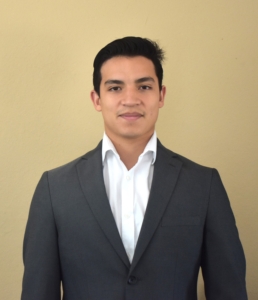 Alejandro Medina
Alejandro Medina
Southwestern University
Alejandro Medina is a senior at Southwestern University, majoring in computer science, with minors in mathematics and data science. His research spans various areas, including cooperative work, Dial-a-Ride scheduling, and studying generative algorithms via evolving flying machines in Minecraft. His work in evolutionary computation focused on improving generative AI to be better at content creation for video games. Alejandro developed a fitness function that successfully generated diversity and high-quality flying machines. Alejandro also led a project to implement and perform evaluation of a dial-a-ride scheduling problem, providing empirical insights to complement previous theoretical findings. In addition to research, Alejandro is active in departmental organizations, including the CS club and the Math club; he also serves the department as the Vice President of the Honor Code Council, and as an officer in HALO, the Hispanics and Latinx Organization.
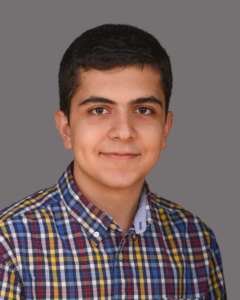 Arvin Sahami
Arvin Sahami
University of British Columbia
Arvin Sahami is a junior at the University of British Columbia, majoring in computer science and mathematics. His research is focused on theoretical computer science. Arvin collaborated on research that addressed a statistical experiment design problem defined by Rao in 1947 that was unsolved for 76 years. His contributions led to the development of a new algorithm capable of constructing orthogonal arrays whose size asymptotically match their lower bound. While Arvin’s contributions produced an important theoretical result, it is also important to note that it is practical and may have a broader impact for statistical experiment design. Beyond his contributions to research, Arvin volunteers in a math camp for high school students and participates in math and programming competitions.
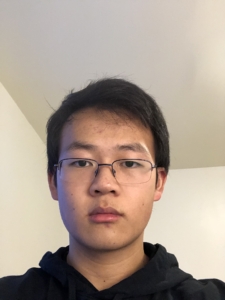 George Zhaoqi Li
George Zhaoqi Li
University of Maryland
George Zhaoqi Li is a senior at the University of Maryland, College Park, majoring in computer science and mathematics. His research spans several areas of theoretical computer science with a particular focus on problems relevant to the COVID-19 pandemic. George’s primary research involved optimizing vaccine distribution, accounting for patient mobility and privacy. His work was both innovative and impactful. George actively contributes to academia, frequently presenting on differential privacy and developing homework problems on the topic for courses at his university. Beyond his role as a researcher, George is a table tennis player; he and his teammates recently placed 10th at the College Table Tennis National Championships.
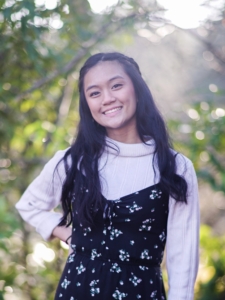 Kianna Bolante
Kianna Bolante
University of Washington
Kianna Bolante is a junior at the University of Washington, majoring in computer science. Her research touches on social computing, accessibility, and computer science education. Kianna developed and refined six educational modules for high school students on social aspects of computing (e.g., online behavior, machine learning and bias, and misinformation), and presented them to over fourteen hundred students at thirteen schools around Seattle. She measured the impact of her presentations and learned that the vast majority of the students found socially-focused topics more interesting than STEM topics in general. Kianna also contributed meaningfully to a project that helped people with Parkinson’s disease through virtual reality and supported an international study of identity- vs. person-first language preferences among disabled people. In addition to being a researcher, Kianna is an advocate for inclusivity and empowerment. She serves as chair of the Computing Community group in her department and served as an outreach committee lead of the Society of Women Engineers.
Runners-Up
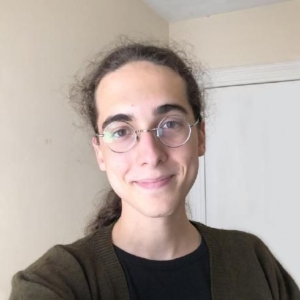 Alexa Schor
Alexa Schor
Yale University
Alexa Schor is a senior at Yale, majoring in computer science. Her research is in computer graphics, where she focuses on addressing long-standing challenges in fractal geometry generation. Her work addresses the production of fractals and their potential animation, problems that are of great interest to movie studios and artists. Alexa’s work built on and quickly surpassed her advisor’s prior efforts. She devised a stable, rapid, and highly adjustable solution with stunning visual outcomes. Alexa’s algorithm was able to unlock, what her advisor called “an entirely different class of geometry.” Beyond research, Alexa is an avid baker and metalworker. She also enjoys studying linguistics, and currently serves as the Co-President of Trans@Yale.
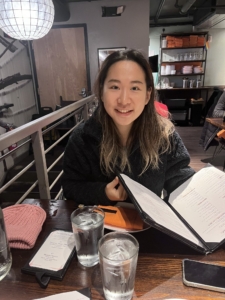 Andi Xu
Andi Xu
University of Michigan
Andi Xu is a senior at the University of Michigan, majoring in computer science and mathematics. Her research interests are in allowing blind and visually impaired (BVI) people to create their own AI-powered assistive applications. Andi designed user studies to understand the varied ways that BVI people customize technology, and used the findings to develop a design probe that allows users to understand elements of their physical environment. Andi led the deployment studies for two mobile applications that BVI people use to extract information from their environment. Her analyses have broadened understanding of how visual assistive applications are leveraged by users. In addition to her research, Andi serves as a teaching assistant for an upper-division User Interface course and is a member of UMichigan’s Girls in Electrical Engineering and Computer Science club where she works to improve diversity in CS.
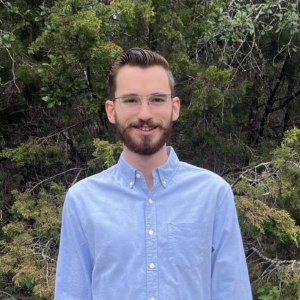 Benjamin Przybocki
Benjamin Przybocki
Stanford University
Benjamin Przybocki is a senior at Stanford University, majoring in mathematics and with a minor in computer science theory. His research is focused on automated reasoning. Ben’s research proved results in the area of theory of finite sequences, as well as proofs to show the non-existence of combinations of first-order theories that previous work had been unable to either find examples, or prove to be impossible. In addition to his work at Stanford, Ben has participated in several REUs, where he focused on combinatorics. His research contributions determined exactly the possible lengths of words with several properties. In addition to research, Ben mentors college, high school, and middle school students in math and computer science. He also mentors a prison inmate through the Prison Mathematics Project.
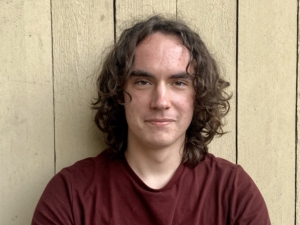 Isaac Hair
Isaac Hair
University of California, Santa Barbara
Isaac Hair is a sophomore, majoring in computing. His research area is in computer architecture. Isaac’s work tackles energy consumption bottlenecks inherent to machine learning training and other applications, which move petabytes of data across data center’s networks. His solution, which includes building a “Data center hyperloop” that physically moves SSDs containing data at high speeds through a vacuum tube assisted by magnetic levitation and acceleration. In addition to the work optimizing data transfers, Issac has participated in research at UIUC, on the problem of 3SUM. Issac is a member of the UCSB Formula SAE club, and serves as a math tutor for students at his former high school.
Finalists
Ajay Sridhar, University of California, Berkeley
Andre Ye, University of Washington
Ann Li, University of Virginia
Anna Baskin, University of Pittsburgh
Claris Winston, University of Washington
Eli Pregerson, Harvey Mudd College
Eric Chen, Cornell University
Federico Cassano, Northeastern University
Jacob Chen, Williams College
Mark Bedaywi, University of Toronto
Matthew Yang, University of Waterloo
Maximilian Du, Stanford University
Megan Frisella, Brown University
Om Chabra, University of Illinois, Urbana-Champaign
Peter Eckmann, University of California, San Diego
William Yik, Harvey Mudd College
Honorable Mentions
Aditya Ranjan, University of Maryland
Alan Baade, University of Texas at Austin
Alex Suh, University of Virginia
Alex Zhuang, University of Waterloo
Alexander Martin, University of Rochester
Alice Qian Zhang, University of Minnesota
Alsa Khan, Cornell University
Amanda Kane, Belmont University
Angela Cui, Cornell University
Anh Truong, Brown University
Ashley Zhuang, Harvard College
Athreyi Badithela, University of Minnesota
Audrey (Yutong) Bu, Emory University
Benjamin Burns, Ohio State University
Benny Rubin, Cornell University
Brandon Vu, Stanford University
Brendan Burkhart, Johns Hopkins University
Brennan Freeze, Sonoma State University
Caroline He, Cornell University
Carolyn Zech, Brown University
Catherine Huang, Harvard College
Charumathi Badrinath, Harvard College
Chenhao Zheng, University of Michigan
Cyrus (Zikai) Zhou, University of Chicago
Daniel Ji, University of California, San Diego
David Rudo, Carnegie Mellon University
Dennis Tang, Duke University
Edward He, Tufts University
Eleanor Lin, Columbia University
Emilie Rivkin, Swarthmore College
Ethan Dong, Yale University
Feiyu Gavin Zhu, Carnegie Mellon University
Frank Willard, Duke University
Gaotang Li, University of Michigan
Garrett Weil, Northwestern University
Greta Berendes, Cornell University
Guilin Hu, Cornell University
Haoran Zhao, Drexel University
Haoyun Qin, University of Pennsylvania
Harry Chen, Duke University
Huong Pham, Cornell University
Hyunsuk Bang, Illinois Institute of Technology
Imani Finkley, Cornell University
Jacob Serfaty, University of Chicago
Jasmine DeGuzman, University of Minnesota
Jasper Gerigk, University of Toronto
Jessie (Zixin) Chen, Yale University
Jia Pan, Johns Hopkins University
Jiawen Zhu, University of Waterloo
Jimena Guallar-Blasco, Johns Hopkins University
Jimmy Xin, University of Texas at Austin
Jiuding Sun, Northeastern University
Joel Goh, Northwestern University
John Link, University of Virginia
Katherine Quintanilla, Tufts University
Kathleen Shea, Colorado College
Kiara Johnson, Carleton College
Kittson Hamill, University of Alabama
Konghao (Shelton) Zhao, Wake Forest University
Liam Strand, Tufts University
Liang (Leon) Lu, Carnegie Mellon University
Liza Jivnani, University of South Florida
Mallory Anderson, West Virginia University
Mark Barbone, University of California, San Diego
Marko Veljanovski, Northwestern University
Maryam Abuissa, Amherst College
Matthew Freestone, Auburn University
Matthew Ho, University of California, Santa Barbara
Matthew Williams, Auburn University
Michael Tang, Princeton University
Michelle Qiu, Duke University
Nadharm Dhiantravan, Northwestern University
Nigel Newby, University of Pennsylvania
Nuria Chandra, University of Washington
Oscar Yin, Johns Hopkins University
Param Damle, University of Virginia
Parth Asawa, University of California, Berkeley
Peter Donovan, University of California, Berkeley
Pinxian Lu, Cornell University
Praneet Rathi, University of Illinois, Urbana-Champaign
Prithwish Dan, Cornell University
Qiuhong Anna Wei, Brown University
Rana Muhammad Shahroz Khan, Vanderbilt University
Rowan Hess, Cornell University
Ruidi Wei, University of Waterloo
Ryan Koo, University of Minnesota
Ryun Shim, Cornell University
Sandra Nguyen, California State University, Fullerton
Sangwu Lee, University of Rochester
Sean Cummings, Illinois Institute of Technology
Sean Wu, Pepperdine University
Shankar Padmanabhan, University of Texas at Austin
Shiv Trivedi, University of Illinois, Urbana-Champaign
Shivani Sista, University of California, Santa Barbara
Sidhanth Holalkere, Cornell University
Siming He, University of Pennsylvania
Stephane Hatgis-Kessell, University of Texas at Austin
Stephen Arndt, University of Pittsburgh
Styopa Zharkov, Stanford University
Tahsin Kazi, Kennesaw State University
Téa Wright, University of Colorado, Boulder
Teeratham “TJ” Vitchutripop, University of Virginia
Thanh Dang, Colgate University
Venkataram Sivaram, University of California, San Diego
Viansa Schmulbach, University of California, Berkeley
Vicki Xu, Harvard College
Walter McKelvie, Columbia University
Xianrui Zhong, University of Illinois, Urbana-Champaign
Ye Shu, Williams College
Yenet Tafesse, Princeton University
Yijia Dai, Cornell University
Yiming Su, University of Chicago
Yizhou (Deemo) Chen, Cornell University
Yuxi Qian, University of Southern California
Zihan (Jack) Zhang, University of Chicago
Ziming Yuan, Swarthmore College
2023
Sponsor: Microsoft Research
Selection Committee: Michael Hilton (Carnegie Mellon University), Co-Chair, Monica Anderson (University of Alabama), Co-Chair, Jonathan Bell (Northeastern University), Victoria Interrante (University of Minnesota), Evan Peck (Bucknell University), Raghu Ramanujan (Davidson College), Steve Swanson (University of California, San Diego), Matt Weinberg (Princeton University), Rahmat Beheshti (University of Delaware), and Tony Clark (Pomona College)
Awardees
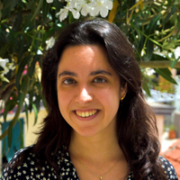 Sílvia Casacuberta Puig
Sílvia Casacuberta Puig
Harvard University
Sílvia Casacuberta Puig is a senior at Harvard University, majoring in mathematics and computer science, while concurrently pursuing a Master’s of Science in computer science. Her research spans a variety of different areas, including matrix algorithms, cryptography, data privacy, algorithmic fairness, machine learning, and computational linguistics. Her work builds on one of the most mathematically sophisticated approaches to fairness (“outcome indistinguishability”), and her investigation has led to intriguing insights where methods developed for algorithm fairness are shedding new light on classic results in computational complexity such as Impagliazzo’s Hardcore Lemma. In addition to doing great research, Sílvia gives back by being a teaching assistant in a variety of computer science courses. In addition, she has shown great leadership by serving as co-director of academics of Harvard Women in Computer Science (WiCS), as a co-president for Harvard Gender Inclusivity in Mathematics (GIIM), and starting initiatives such as the WiCS Undergraduate Research Reaching Groups.
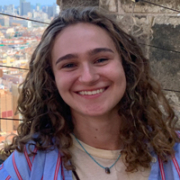 Carmen Strassle
Carmen Strassle
Stanford University
Carmen Strassle is a senior at Stanford University, majoring in physics and mathematics, while also concurrently pursuing a Master’s Degree in computer science. Her research interests are in the area of theory and algorithms. Her work led to improvements in the lower bounds for decision tree learning, which is a basic algorithmic task. She showed how existing results on the inapproximability for parameterized Set Cover yield qualitative improvements over the state-of-the-art decision tree learning lower bounds, but also how her technique can be combined with recently developed composition lemmas for query complexity to give lower bounds even against the much easier task of testing decision trees. In addition to this work, she has also worked on a second challenge that has shown improvements for the problem of Certification with an NP oracle. In addition to her strong research work, Carmen is a lead tutor for math and physics, as well as a course assistant for computer science and math classes.
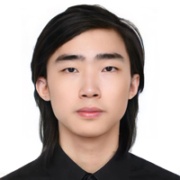 Zineng Tang
Zineng Tang
University of North Carolina at Chapel Hill
Zineng Tang is a senior at the University of North Carolina at Chapel Hill, where he is pursuing his Bachelor of Science degree in computer science and mathematics. Zineng’s research interests are in the fields of machine learning and natural language processing. His research focuses on two main research questions: how could one perception help the learning of another, and how could different perceptions be learned jointly. One example of this is VidLanKD, where his work explores how visual data can enhance language learning. By using a teacher and student framework, the work improves upon previous results, and offers new insights into how language models can learn language beyond text.
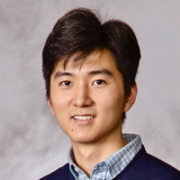 Zhihan Yang
Zhihan Yang
Carleton College
Zhihan Yang is a senior at Carleton College, where he is a double major in mathematics and statistics. His research is in the area of probabilistic machine learning and deep learning. Specifically, his work at Carleton uses multi-armed bandit algorithms to allocate participants to conditions in educational experiments. Using adaptive algorithms in this way offers opportunities to allocate more students to more effective conditions, which is beneficial for students participating in the experiment, but also makes it easier for teachers to conduct experiments in their classes, leading to more effective materials and helping scientists better understand how people learn. Additionally, he has done work on deep generative models for game content generation and deep reinforcement learning for partially observable problems at Northeastern University.
Runners-Up
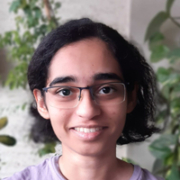 Aparna Gupte
Aparna Gupte
Massachusetts Institute of Technology
Aparna Gupte is a senior at Massachusetts Institute of Technology majoring in computer science and mathematics. Her research interests are in the theoretical aspects of machine learning. Her research fits into two broad themes: the computational complexity of machine learning problems and deep learning theory. She has served as a teaching assistant and tutor at MIT and mentored high school students for a reading program on cryptography.
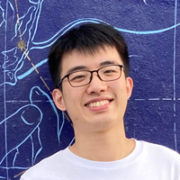 Ziming Mao
Ziming Mao
Yale University
Ziming Mao is a senior at Yale University, where he is pursuing degrees in computer science and philosophy. His research interests lie at the intersection of theory and systems, with contributions to natural language processing, data store, caching systems, and memory disaggregation. His research experiences have included multiple layers of the computing stack, from algorithms to applications, to operating systems and hardware. Besides research, Ziming is interested in astrophotography and runs a popular Instagram page, @the.astronomy.daily. He also helps to organize high school outreach events for students interested in computer science.
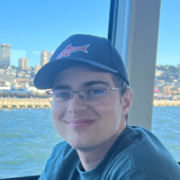 Francisco Pernice
Francisco Pernice
Stanford University
Francisco Pernice is a senior at Stanford University, where he is pursuing degrees in mathematics and computer science. His research interests are in theoretical computer science, and has worked on projects in algorithmic game theory, error correcting codes for deletion channels. He has served as a teaching assistant for eight quarters and volunteered to help train new students for the role.
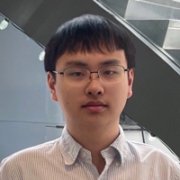 Fengyu Yang
Fengyu Yang
University of Michigan, Ann Arbor
Fengyu (Fred) Yang is a senior at the University of Michigan majoring in computer science with a minor in business. His research interests are centered in computer vision, and he has worked on projects in multimodal perception, semantic segmentation, and crowd analysis. He connects his computer vision research with the real-world by building new datasets that more closely resemble the way that humans interact with the world. He is heavily involved in Model United Nations (MUN) organizations, serving as the president of multiple MUN conferences and leader of MUN classes in high schools.
Finalists
David Cao – University of California, San Diego
Kirsten Chapman – Brigham Young University
Davidson Cheng – Colorado College
Amil Dravid – Northwestern University
Michael Duan – University of Washington
Anya Ji – Cornell University
Laura Lewis – California Institute of Technology
Sizhe Li – University of Rochester
Tongtong Liu – Wake Forest University
Ayana Monroe – University of North Carolina at Chapel Hill
Elizaveta Pertseva – University of California, San Diego
Zeyu Shen – Duke University
Chenglei Si – University of Maryland
Anikait Singh – University of California, Berkeley
Edward Sitar – University of South Carolina
Samuel Tan – Haverford College
Raul Villanueva – University of Washington
Stefan Walzer-Goldfeld – Amherst College
Rui Xin – Duke University
Samuel Yu – Carnegie Mellon University
Yifei Zhou – Cornell University
Honorable Mentions
Anas Awadalla – University of Washington
Adira Blumenthal – University of Rochester
Evelien Boerstra – University of British Columbia
Victoria Chen – Tufts University
Nathaniel Collins – University of Colorado, Boulder
Trung Dang – Purdue University
Xiang Fan – Carnegie Mellon University
Henry Fleischmann – University of Michigan, Ann Arbor
William He – Duke University
Jung Hwan (John) Heo – University of Southern California
Cynthia Hom – Harvey Mudd College
Kevin Jiang – Cornell University
Anisha Kabir – University of California, Santa Barbara
Malik Khadar – University of Minnesota
Shreyas Kharbanda – Purdue University
William Krska – Boston University
Yihe Liu – Georgia Institute of Technology
Angeline Luther – University of Nebraska-Lincoln
Rachel Ma – Brown University
Rachel Masters – Colorado State University
Malia Morgan – Harvey Mudd College
Stephen Price – Worcester Polytechnic Institute
Francis Rinaldi – Illinois Institute of Technology
Jonathan Rogers – Williams College
Elizabeth Seero – Colorado College
Jim Wang – Johns Hopkins University
Eric Xing – Western Kentucky University
Draco Xu – University of Rochester
Rem Yang – University of Illinois
Runlong (Harry) Ye – University of Toronto
Fangcong Yin – Cornell University
Sadie Zhao – Pomona College
2022
Sponsor: Mitsubishi Electric Research Labs
Selection Committee: Michael Hilton (Carnegie Mellon University), Co-Chair, Kelly Shaw (Williams College), Co-Chair, Monica Anderson (University of Alabama), Jonathan Bell (Northeastern University), Victoria Interrante (University of Minnesota), Jelani Nelson (University of California, Berkeley), Evan Peck (Bucknell University), Raghu Ramanujan (Davidson College), Jenna Wiens (University of Michigan), Yuqing Melanie Wu (Pomona College)
Awardees
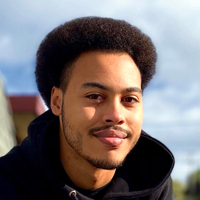 Amani Maina-Kilaas
Amani Maina-Kilaas
Harvey Mudd College
Amani Maina-Kilaas is a junior at Harvey Mudd College, where he is pursuing a joint Computer Science and Math degree. His research area is in AI, investigating how intention perception can benefit artificial agents in adversarial situations. This work involves physics simulations for virtual agents and 3D visualizations between predators and prey. Using these techniques, his work explores intention in multi-agent prey-predator interactions and adversarial two-player games, as well as the perception of intention from artifacts that an agent has left behind. He has co-authored a total of three papers, in ICAART, CEC, and COG, for all of which he was the lead or co-lead author. Additionally, he contributes to the community via peer tutoring for introductory computer science courses.
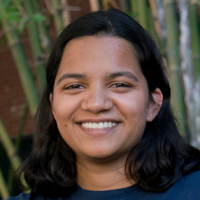 Leena Mathur
Leena Mathur
University of Southern California
Leena Mathur is a senior at the University of Southern California, where she is pursuing a triple major in Computer Science, Cognitive Science, and Linguistics. Her multidisciplinary AI research is at the intersection of these fields. She leads a research project on multimodal ML approaches for detecting social behaviors. This research has applications for recognizing deception in people masking stress and anxiety in social interactions. She has also worked in a wide variety of other areas, including robot perception of empathy, socially assistive robot tutors for children with autism spectrum disorders, and unsupervised ML and speech processing algorithms for preserving Ladin, an endangered Italian language. She has co-authored a total of seven papers, including six of which she was the lead author, or co-lead author, one of which was nominated for a best paper award at ICMI. Her other work has appeared at AAAI, ICASSP, MLSLP, ACII, and FG. Additionally, she contributes to her community by designing and leading AI workshops for USC undergraduates and for Los Angeles high school students. She also leads the USC Interaction Lab’s DEI committee and has served as the President of USC’s student branch of the Center for Artificial Intelligence in Society.
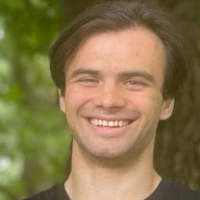 Ted Pyne
Ted Pyne
Harvard University
Edward (Ted) Pyne is a Senior at Harvard University, where he is pursuing degrees in Mathematics and Computer Science. His research interest is in theoretical computer science, where he works to understand the power of randomness in computation. He focuses on the derandomization of space-bounded computation, which addresses the fundamental question of whether randomized algorithms are more powerful than deterministic algorithms. His work includes showing the first known example of a weighted pseudorandom generator (WPRG) that is better than every pseudorandom generator (PRG). He is a co-author on six papers, including papers at ITCS, COCOON, CCC, and SOSA. He has also served as a teaching assistant, where he has received awards for high student evaluations, and is an officer for the Harvard MIT Mathematics Tournament.
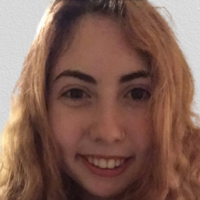 Sophie Veys
Sophie Veys
University of Chicago
Sophie Veys is a senior at the University of Chicago, where she is pursuing a degree in Computer Science. Her research interests lie at the intersection of privacy and HCI. Her research centers on data access rights. Her work includes the study of the usability of data downloads, which she studied both by surveying the landscape of existing practices, as well as exploring usability flaws which hinder transparency via co-design sessions. She is a co-author on four papers at both HCI and Systems venues, including SOUPS, ConPro, USENIX, and CHI and received an honorable mention for her paper at CHI. She also supports her community, where she has served as a tutor in the Maroon Tutor Match program, as well as serving in a leadership role for that organization.
Runners-Up
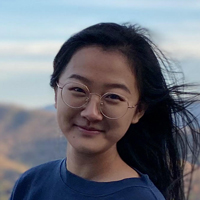 Xinyu Tan
Xinyu Tan
Duke University
Xinyu Tan is a senior at Duke University majoring in Mathematics and in Computer Science. Her research is in the areas of quantum computing and flash memory systems. In one project on quantum benchmarking, she designed an improvement to the protocol used to estimate the average gate fidelity in a quantum computer that is used to characterize the degree of error in the environment. In an unrelated project on flash memory, Xinyu created a method for deriving the power spectral density of constrained codes in flash memory systems, where better estimates of power spectral density can be used to improve the reliability of flash memory systems. This work was published in the IEEE Transactions on Communications and was selected as a finalist for the Non-Volatile Memories Workshop’s Memorable Paper award. In addition to serving as a teaching assistant for four courses, including a graduate level course in mathematics, Xinyu also co-founded the Duke Undergraduate Quantum Information Society, which organizes talks by external speakers, and has organized and taught a house course on quantum computing.
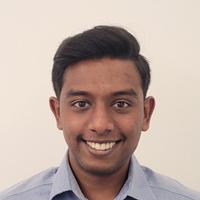 Nicholas Vadivelu
Nicholas Vadivelu
University of Waterloo
Nicholas Vadivelu is a senior at the University of Waterloo majoring in both Computer Science and Statistics. His research has been in the area of differentially private machine learning and in multi-agent systems such as self-driving cars. He is the co-first author on a paper at NeurIPS which presents a solution for significantly speeding up the algorithm for performing differentially private stochastic gradient descent. His solution has been added to several commonly used libraries for machine learning including TensorFlow Privacy and the Optax library for JAX. In a different project pursued during an internship at Uber ATG, Nicholas helped develop a neural reasoning framework for estimating and communicating errors in multi-agent self-driving perception and motion forecasting systems and is first author on the resulting paper published at CoRL. At the University of Waterloo, Nicholas is the leader of the Data Science Club and mentors junior students through the Tech+ Mentorship organization.
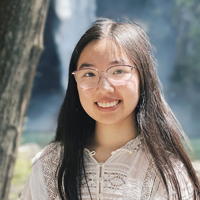 Catherine Yeh
Catherine Yeh
Williams College
Catherine Yeh is a senior at Williams College majoring in Computer Science and earning a concentration in Cognitive Science. Her work is in an area of Human-AI called explainable AI, where the goal is to help everyday users of AI based systems understand the limitations and flaws of the decisions or recommendations made by those systems and allow users to modify their use of those systems accordingly. In one project, Catherine created interactive explainables for understanding Bayesian Knowledge Tracing, which is an algorithm used in learning analytic systems for predicting skill mastery. For her senior thesis, she is designing a visualization-based explainable that evaluates how non-expert users’ understanding of the Bayesian Knowledge Tracing algorithm affects users’ trust in the system and decision-making process. Her work has been presented at the Grace Hopper Celebration of Women in Computing and at the VISxAI conference. In another project while at Microsoft Research, Catherine developed a machine learning algorithm to automatically categorize open-ended qualitative survey responses in a longitudinal work-from-home diary study; results from that project will appear in an ACM Queue article. Catherine has served as a teaching assistant for four different Computer Science courses, is a board member for the Underrepresented Identities in Computer Science group and the Computer Science Student Advisory Committee, and is an active member of the Women in Computer Science group.
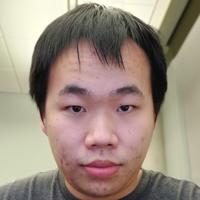 Tianwei Yin
Tianwei Yin
University of Texas at Austin
Tianwei Yin is a senior at the University of Texas at Austin where he is completing majors in Computer Science and Mathematics. He has participated in research related to using machine learning with respect to visual information, especially for 3D vehicle detection and tracking. In one project published at CVPR, he developed a novel 3D detection pipeline that is faster than other state-of-the-art models. In follow-up work, Tianwei created a new approach for detecting small objects when there is a limited number of 3D measurements available for those small objects, enabling autonomous vehicles to see a larger number of small objects at larger distances; this work received the most innovative detection submission award at ICRA and will be presented as a paper at NeurIPS. His work has had a strong impact; in particular, his detector work has been adopted by two self-driving companies into their self-driving systems. Just recently, Tianwei has won the Best Paper Award at Machine Learning for Health Conference 2021. Tianwei has also served as a teaching assistant for a course on neural networks and does community outreach explaining 3D computer vision and autonomous driving.
Finalists
Zoe Baker – Colorado School of Mines
Shiye Cao – Johns Hopkins University
Joe Connolly – Yale University
Shanley Corvite – University of Michigan
Max Daniels – Northeastern University
Alexander Elliott – Georgia Institute of Technology
Louis Golowich – Harvard College
John Guibas – Stanford University
Kelvin Jiang – University of Waterloo
Jacob Kelly – University of Toronto
Jessica Lam – University of California, San Diego
Jiaju Ma – Brown University
Arvind Mahankali – Carnegie Mellon University
Joseph McCalmon – Wake Forest University
HyunJi Alex Nam – Stanford University
Aesha Parekh -University of California, Santa Barbara
Amey Pasarkar – Columbia University
Naveen Raman – University of Maryland
Ohad Rau – Georgia Institute of Technology
Winnie Xu – University of Toronto
Honorable Mentions
Vatsal Agarwal – University of Maryland, College Park
Ben Agro – University of Toronto
Rahul Arya – University of California, Berkeley
Timothy Baer – University of Illinois
Vishnu Banna – Purdue University
Shriya Bansal – University of Chicago
Sourav Biswas – University of Waterloo
Landon Brown – Colorado School of Mines
Madeline Burbage – Williams College
Jerry Cao – University of Washington
Yida Chen – Bucknell University
Yu-Hsi Cheng – University of California, Los Angeles
Jonathan Conroy – Tufts University
Will Culpepper – Colorado School of Mines
Chengzhang Dong – University of Alberta
Amina El-Ashry – University of Maryland, Baltimore County
Nick Eliopolous – Purdue University
Tiana Fitzgerald – Princeton University
Oliver Flatt – University of Utah
Henry Fleischmann – University of Michigan, Ann Arbor
Rachel Guo – Harvard College
Mike He – University of Washington
Benjamin Holmgren – Montana State University
Samhita Honnavalli – University of California, Santa Barbara
Crescentia Jung – University of Wisconsin – Madison
Megan Jung – Cornell University
Mandar Juvekar – University of Rochester
Simran Kadadi – Purdue University
Levi Kaplan – Northeastern University
Joongwon (Daniel) Kim – University of Pennsylvania
Nathaniel R. Krasner – George Mason University
Xiuyu Li – Cornell University
Tony Lian – University of California, Berkeley
Zhengyao Lin – University of Illinois
Jerry Liu – Duke University
Shicheng Liu – University of Chicago
Yuzhe Lu – Vanderbilt University
Cora Meador – Kennesaw State University
Alexander Moreira – Stanford University
Vivek Myers – Stanford University
Andy Nguyen – University of Oregon
David Park – Carnegie Mellon University
Luna Phipps-Costin – University of Massachusetts, Amherst
Emma Pinegar – University of Utah
Wasu Piriyakulkij – Brown University
Daisy Reyes – Loyola University Chicago
Naomi Sagan – University of California, Berkeley
Kris Satya – Georgia Institute of Technology
Daniel Schaffer – Carnegie Mellon University
Ana Selvaraj – University of California, San Diego
Zeyu Shen – Duke University
Noah Singer – Harvard University
Akash Singh – University of Texas at Austin
Charlie Snell – University of California, Berkeley
Shixin Song – University of Michigan, Ann Arbor
Koriann South – University of Utah
Nichole Starr – Colorado School of Mines
Vikram Subramanian – University of Waterloo
Shangyin Tan – Purdue University
Man To Tang – Purdue University
Zineng Tang – University of North Carolina at Chapel Hill
Mia Taylor – Harvey Mudd College
Nitya Thakkar – Brown University
Vale Tolpegin – Georgia Institute of Technology
Yunjin Tong – Dartmouth College
Jessica Tweneboah – Cornell University
Maggie Van Nortwick – Northeastern University
Xingyao Wang – University of Michigan
Yi Ru Wang – University of Toronto
Yu Xin – University of Washington
Lance Ying – University of Michigan, Ann Arbor
Eleanor Young – New College of Florida
Abhay Zala – University of North Carolina at Chapel Hill
Peter Zhong – Northwestern University
Naitian Zhou – University of Michigan
Chuning Zhu – University of Pennsylvania
Jay Zou – Northwestern University
2021
Sponsor: Microsoft Research
Selection Committee: Michael Hilton (Carnegie Mellon University), Co-Chair, Ran Libeskind-Hadas (Harvey Mudd College), Co-Chair, Jonathan Bell (Northeastern University), Elena Grigorescu (Purdue University), Mark Newman (University of Michigan), Evan Peck (Bucknell University), Raghu Ramanujan (Davidson College), Kelly Shaw (Williams College), Neil Spring (University of Maryland), and Yuqing Melanie Wu (Pomona College).
Awardees
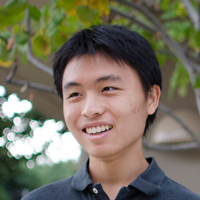 Steven Cao
Steven Cao
University of California, Berkeley
Steven Cao is a senior at University of California, Berkeley where he is pursuing a degree in Electrical Engineering and Computer Science. He has broad research interests and experiences spanning artificial intelligence, natural language processing, signals, and neuroscience. In one natural language project, Steven developed new methods in syntactic parsing while in another project he contributed to the development and testing of new methods to provide more accurate translations between languages. Stephen has also worked on developing new and provably correct blockchain protocols and on several projects related to medical imaging. He is a co-author of seven papers, including first authorship on papers at EMNLP, Proceedings of IEEE Blockchain, and ICLR. He has served as a teaching assistant for two courses and as a research mentor in the Berkeley Natural Language Processing group.
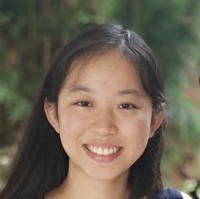 Joy He-Yueya
Joy He-Yueya
University of Washington
Joy He-Yueya is a senior computer science major at the University of Washington. She has engaged in a number of research projects related to health and education. In one project, she collaborated with computer scientists and medical researchers to assess the relationship between routine and schizophrenia symptoms using passively sensed measures of behavioral stability. This work led to a first-authored paper in the journal NPJ Schizophrenia. Joy also made important contributions to a project at the Max Planck Institute for Software Systems on generating personalized curricula for students learning to code using methods in reinforcement learning. She has also worked with researchers at Giving Tech Labs on developing methods to find relationships between voice and emotions and between voice and aging. Joy has served as a teaching assistant for two courses at the University of Washington and has been involved in several volunteer projects including leading workshops to help undergraduates get involved in research.
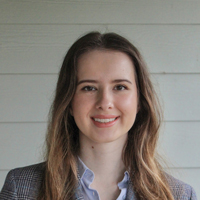 Lindsay Popowski
Lindsay Popowski
Harvey Mudd College
Lindsay Popowski is a senior at Harvey Mudd College where she is completing the Joint Major in Computer Science and Mathematics. She has participated in several research projects in robotics and artificial intelligence, human-computer interaction, and computer science education. In one project on human-robot interaction, she worked on scheduling methods for scenarios where there are high degrees of scheduling uncertainty. In another project at an REU program at Carnegie Mellon University, Lindsay made significant contributions to the development of new machine learning techniques for generating vector representations of GUI screens of mobile apps, enabling potential applications such as GUI design aids. In a third project, she worked on a study of learning outcomes and effect of students placed into various different versions of an introductory college-level computing course. Lindsay is the primary author of a paper at AAAI, a co-author of a paper in the Artificial Intelligence Journal, and a paper at SIGCSE. She has served as a teaching assistant and grader for computer science and physics courses at Harvey Mudd and was president of her dormitory.
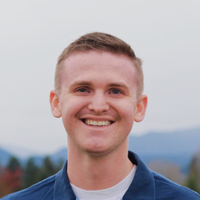 Orion Weller
Orion Weller
Brigham Young University
Orion Weller is a senior at Brigham Young University (BYU) where he is completing two majors: Computer Science and Statistics. His research experiences and interests span natural language processing, data mining, and human-computer interaction. In his first research project at BYU, he developed a distributed system for meta-learning experiments. Orion initiated two projects, one on humor detection and another on document reading level, using methods in natural language processing. He has also engaged in research at both the Allen Institute and Apple. At the Allen Institute, he worked on a framework for general-purpose language understanding using techniques in machine learning and natural language processing. Orion is the first author of seven papers at venues including ACL and EMNLP. He has engaged in volunteer work and as a mentor and tutor for both high school students and younger classmates at BYU.
Runners-Up
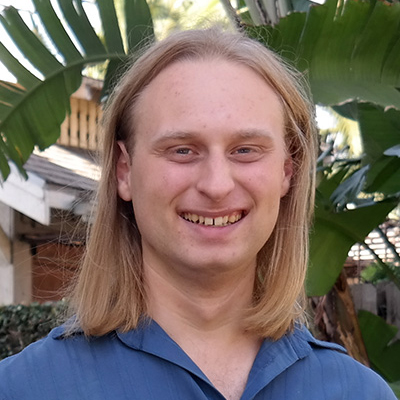 Henry Birge-Lee
Henry Birge-Lee
Princeton University
Henry Birge-Lee is a senior at Princeton University where he is majoring in Computer Science. He has made fundamental contributions to several research projects in the area of computer security. In particular, his work has examined the security of Internet services from the perspective of attacks on the underlying network infrastructure. Henry discovered a potential routing-protocol attack that is easy to launch but difficult to detect. His work on estimating vulnerability of such attacks and his proposed countermeasures resulted in a best presentation award at HotPETs and a second paper at USENIX Security. Several certificate authorities and content distribution networks have deployed Henry’s countermeasure in their production systems. Henry is the co-author of several papers in computer security as well as a paper on plasma physics in the American Journal of Physics.
Xi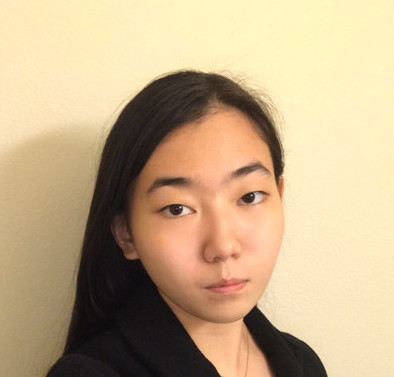 ming Gloria Lu
ming Gloria Lu
University of Washington
Ximing Gloria Lu is a senior at the University of Washington where she is completing two majors, one in Computer Science and one in Statistics. She has conducted and led several research projects in the areas of medical imaging, neural language models, among others. In one project, Ximing worked on a transformer-based deep learning approach for diagnosing cancer from whole slide biopsy images. Ximing led two other projects, one on injecting logical constraints into neural text generation models and another on a new class of multimodal neural networks that outperform substantially larger neural networks from industry labs. She contributed to another project that proposed a novel decoding algorithm for paraphrasing and text in-filling. Her work has resulted in multiple publications. Ximing has also been involved in a variety of mentoring activities serving traditionally underrepresented students in computer science and newly admitted students in her department.
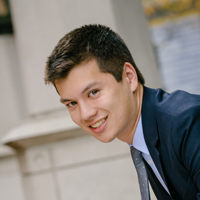 Reed Oei
Reed Oei
University of Illinois at Urbana-Champaign
Reed Oei is a senior at the University of Illinois at Urbana-Champaign (UIUC) where he is completing a BS in Computer Science. He has engaged in research in a variety of areas including software testing, programming languages for blockchain, and automatic theorem proving. Reed made fundamental contributions to the detection of “flaky tests,” software tests which can non-deterministically pass or fail. Reed and his collaborators proposed new methods to detect flaky tests and he developed a tool that implements these methods. In other related projects, he worked on automatically fixing flaky tests and mitigating flaky tests. He also worked on a project through an REU program at Carnegie Mellon University where he made important contributions to smart contract programming languages. Reed’s research has resulted in seven papers, including two first-authored papers at PADL and SPLASH. He has served as a member of the course staff for a software design course and led workshops on various topics for his peers at UIUC.
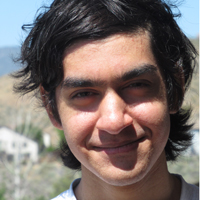 Dhruv Rohatgi
Dhruv Rohatgi
Massachusetts Institute of Technology
Dhruv Rohatgi is a senior at Massachusetts Institute of Technology where he is completing the major in Mathematics with Computer Science. His research has explored a number of problems in algorithms with applications in computer vision, machine learning, among others. In one project, Dhruv proved the hardness of approximating the so-called Earth Mover Distance problem, resulting in a sole-authored paper in the APPROX conference. In another project, he developed algorithms and proved lower bounds for online caching with machine-learned advice, resulting in a single-authored paper at SODA. In yet another project, Dhruv studied provable guarantees for efficient compressed sensing, resulting in a spotlighted co-authored paper at NeurIPS. He has served as coordinator, problem-writer, and coach for the USA Computing Olympiad.
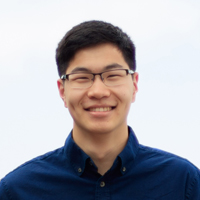 Stephen Tian
Stephen Tian
University of California, Berkeley
Stephen Tian is a senior at University of California, Berkeley where he is completing a major in Electrical Engineering and Computer Science. He has conducted research in robotics and artificial intelligence at Berkeley and at Facebook AI Research. Stephen’s research spans the design and construction of novel robotic tactile sensors, machine learning and computer vision methods, and the development of new reinforcement learning algorithms. In one project, he demonstrated how a robotic finger with a touch sensor could perform myriad tasks using the same reinforcement learning algorithm. In another research project, Stephen proposed a novel algorithm for allowing a robot to achieve a variety of goals indicated as goal images. He has co-authored several papers at venues including ICRA, ECCV, and CoRL. Stephen has served as an undergraduate teaching assistant for a course on discrete mathematics and probability theory and volunteered for events for local high school students.
Finalists
Nicholas Bonaker – Massachusetts Institute of Technology
Kiersten Campbell – Williams College
Nithin Chalapathi – University of Utah
Payal Chandak – Columbia University
Baicheng Chen – University of Buffalo
Daniel M. DiPietro – Dartmouth College
Andrew Gaut – University of California, Santa Barbara
Gary Hoppenworth – University of Central Florida
Bonnie Huang – University of California, San Diego
Qian Huang – Cornell University
Angela Jin – Cornell University
Sophia Kolak – Columbia University
Nishanth Kumar – Brown University
Ryan Lehmkuhl – University of California, Berkeley
Liang Lyu – Duke University
Abtin Molavi – Harvey Mudd College
Charlotte Peale – Stanford University
Jonathan Rodriguez – Tufts University
Parker Ruth – University of Washington
Tony Sun – University of California, Santa Barbara
Raechel Walker – University of California, San Diego
Boyu Zhang – University of Rochester
Kaiyang Zhao – Purdue University
Honorable Mentions
Rittika Adhikari – University of Illinois Urbana-Champaign
Omar Alrabiah – Carnegie Mellon University
Yigit Atay – Vanderbilt University
Lauren Baron – University of Delaware
Zion Leonahenahe Basque – Arizona State University
Sarah M. Bawabe – Brown University
Emily Bascom – University of Washington
Frank Bu – Johns Hopkins University
Annie Chen – Stanford University
Vivian Chen – University of Virginia
Yanda Chen – Columbia University
Rachel Cleaveland – Carnegie Mellon University
Joshua Clune – Carnegie Mellon University
Ian Costello – University of Maryland, College Park
Michael Cuevas – Northwestern University
Parmida Davarmanesh – University of Michigan
Amil Dravid – Northwestern University
Derek Egolf – Tufts University
Oliver Flatt – University of Utah
Eve Fleisig – Princeton University
Reginald Frank – Texas A&M University
Souradip Ghosh – Northwestern University
Joseph Giordano – University of Central Florida
Joey Hejna – University of California, Berkeley
Lior Hirschfeld – Massachusetts Institute of Technology
Gongqi Huang – Johns Hopkins University
Ben Jacobsen – University of Arizona
Rhea Jain – Carnegie Mellon University
Nathan Ju – University of Illinois Urbana-Champaign
Ryan Kemmer – Arizona State University
Lauren Labell – Tufts University
David Lee – Williams College
McKenna Lewis – University of California, San Diego
Jenny Liang – University of Washington
Derek Lim – Cornell University
Yuhan Liu – University of Wisconsin, Madison
Aaron Lou – Cornell University
Yiwei Lyu – Carnegie Mellon University
Ellie Mamantov – Carleton College
Arjun Mani – Princeton University
Zoë Marschner – Massachusetts Institute of Technology
Leena Mathur – University of Southern California
Juno Mayer – University of Oregon
Garrett Moseke – University of Utah
Nirjhar Mukherjee – The University of North Carolina at Chapel Hill
Kabir Nagrecha – University of California, San Diego
Bo Ni – University of Notre Dame
Neehar Peri – University of Maryland, College Park
Elizabeth Peterson – Northwestern University
Angel Pina – Texas A&M University
Dylan J. Sam – Brown University
Sergio Sanz – University of Houston
Muyang Shi – Carleton College
Dasha Shifrina – University of Chicago
Xiangchen Song – University of Illinois Urbana-Champaign
Matthew Sotoudeh – University of California, Davis
Matthew Strong – University of Colorado, Boulder
Arjun Subramonian – University of California, Los Angeles
Ashely Tenesaca – University of Rochester
Gian Marco Visani – Tufts University
Homer Walke – Brown University
Ruizhe Wang – University of Wisconsin, Madison
Sky Wang – University of Michigan
Woodrow Wang – Stanford University
Yan Wang – Vanderbilt University
Austin Watkins – University of Utah
Yikai Wu – Duke University
Vasco Xu – University of Pittsburgh
Lina Zhang – Texas A&M University
Xinliang (Frederick) Zhang – The Ohio State University
Yipeng Zhang – University of Rochester
Dorothy Zhao – Princeton University
Chenghan Zhou – University of Virginia
2020
Sponsor: Mitsubishi Electric Research Labs
Selection Committee: Cristina Nita-Rotaru (Northeastern) co-Chair, Ran Libeskind-Hadas (Harvey Mudd College) co-Chair, Kevin Gimpel (TTI), Elena Grigorescu (Purdue University), Dan Grossman (University of Washington), Michael Hilton (CMU), Reid Holmes (UBC), Ranjitha Kumar (UIUC), Neil Spring (University of Maryland), and Audrey St. John (Mount Holyoke College)
Awardees
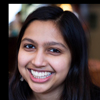 Meena Jagadeesan
Meena Jagadeesan
Harvard University
Meena Jagadeesan is a senior computer science major at Harvard University. Her broad research interests span theoretical computer science, machine learning, the intersection of computer science and economics, and discrete mathematics. Her solo-authored paper at NeurIPS 2019 (invited for oral presentation) addresses a fundamental problem in dimensionality reduction. Another solo-authored paper at RANDOM 2019 addresses a problem motivated by information compression in the brain. Yet another project explored a market design tool called preference signaling. This work resulted in a co-authored paper in WINE 2018 with co-Awardee Alex Wei. In addition, Meena has worked on several problems in number theory and algebra that resulted in two additional publications. She has served as a teaching fellow for the undergraduate systems course at Harvard and a referee for the Journal of Artificial Intelligence Research (JAIR).
 Xiang (Lisa) Li
Xiang (Lisa) Li
Johns Hopkins University
Xiang (Lisa) Li is a senior at Johns Hopkins University where she is double majoring in computer science as well as applied mathematics and statistics. Lisa’s research is at the intersection of machine learning and natural language processing. Lisa took a leading role, and was first author, on two major projects that involved both mathematical and experimental work. Her research on probabilistic modeling of punctuation in written languages appeared in the TACL journal in 2019. Her research on learning task-specific representations of words in context appeared at EMNLP-IJCNLP 2019, where it won the Best Paper Award. Lisa has served as a teaching assistant for a total of six offerings of the introduction to probability and natural language processing courses at Hopkins.
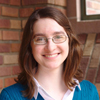 Kimberly Ruth
Kimberly Ruth
University of Washington
Kimberly Ruth is a senior at the University of Washington where she is completing majors in computer engineering and mathematics. Kimberly has been working in the area of computer security for augmented reality (AR) platforms since her first year in college. In one project, she contributed to the development of an AR operating system that can protect against malicious applications. In a second project, Kimberly performed a comprehensive user study on AR security. These projects led to two papers at the IEEE Symposium on Security and Privacy in 2017 and 2018. Kimberly led a third study on security issues related to multi-user AR applications which resulted in a first-authored paper at USENIX 2019. Kimberly has engaged in numerous peer mentoring and outreach activities at the University of Washington and in her community.
 Alex Wei
Alex Wei
Harvard University
Alex Wei is a senior at Harvard University majoring in computer science and mathematics. His work on the approximate near neighbor problem resulted in the discovery of a new Las Vegas data structure. This work led to a solo-authored paper at SODA 2019 which received the best student paper award. Alex has also worked in the area of mechanism design, resulting in a co-authored paper on auditing mechanisms for utility maximization at EC 2019. Another research project on preference signaling, co-authored with co-Awardee Meena Jagadeesan, resulted in a paper at WINE 2018. Alex has also served as a teaching fellow for the data structures and algorithms course at Harvard where he was recognized for his teaching by the Derek Bok Center.
Runners-Up
 Sweta Karlekar
Sweta Karlekar
University of North Carolina at Chapel Hill
Sweta Karlekar is a senior at the University of North Carolina at Chapel Hill where she is majoring in computer science with a minor in entrepreneurship. She works in the areas of natural language processing and machine learning. She has published three papers in NAACL 2018, WiNLP 2018, and EMNLP 2018. In her first project, she worked on automatically detecting signs of Alzheimer’s Disease through language and identifying these linguistic characteristics by visualizing various neural models. In a second project, she used visualization techniques to understand linguistic characteristics and recurring salient themes to bring a data-driven approach to treating victims of domestic abuse.
 Charles Marx
Charles Marx
Haverford College
Charles Marx is a senior at Haverford College where he is completing a double major in computer science and mathematics with a minor in statistics. His research interests are in the area of machine learning. His work resulted in a first-authored publication in NeurIPS 2019, one in a NeurIPS workshop in 2019, and two journal articles. In one project, he applied disentangled representations to determine the impact of a feature on the model using the notion of indirect influence. In another project, he showed that real-world datasets exhibit a surprising degree of predictive multiplicity, an effect where there exist competing models with conflicting predictions for a given dataset. His research suggests that predictive multiplicity should be measured and reported together with testing error.
 Laura Petrich
Laura Petrich
University of Alberta
Laura Petrich is a senior in computer science at the University of Alberta. She works in the area of human assistance robotics and her research resulted in three papers at IEEE ICRA. In her first project, Laura worked on Visual Servoing, a vision-guided motion control system for a robotic arm where a human user defines tasks by visually pointing to objects instead of programming motion coordinates. In a second project, she created and conducted a robotics experiment where both a human and a robot grasp and manipulate everyday kitchen objects. Laura also serves as a volunteer helping first year CS students at her university as well as teaching K-12 students. She is a single mother of two elementary school children.
 Weiyang (Frank) Wang
Weiyang (Frank) Wang
University of California, San Diego
Weiyang (Frank) Wang is a senior at the University of California, San Diego where he is majoring in computer science and physics. Frank works in the area of computer networks with a focus on architectures for modern data centers. One new design for data centers relies on an optical circuit switch that restricts the ports that can be connected at a given time. Frank studies how protocols like TCP behave in such networks and has developed mathematical models and closed-form solutions for their dynamics. He is a co-author on an NSDI 2020 publication and made significant contributions to other projects.
 Tianyi Zhang
Tianyi Zhang
Cornell University
Tianyi Zhang is a senior in computer science at Cornell University. He works at the intersection of machine learning and natural language processing. His work to date has resulted in three publications, two in ICML 2019 and one in a NeurIPS2019 Workshop. In his first project, focused on Graph Convolutional Neural Networks (GCN), Tianyi demonstrated that there are simple linear alternatives to GCNs through theoretical analysis and experimental evaluation. In another project, he explored the limits of low-precision arithmetic for machine learning training. Tianyi is a co-author of QPyTorch, a framework for simulating low-precision deep learning training which has been released as open source software.
Finalists
Zaina Aljallad – University of Central Florida
Sara Boyd – Southwestern University
Jeffrey Champion – Northeastern University
Valerie Chen – Yale University
Demi Guo – Harvard University
Han Guo – University of North Carolina at Chapel Hill
Kyle Hsu – University of Toronto
Qian Huang – Cornell University
Yijun (Katie) Kang – University of California, Berkeley
Rohith Kuditipudi – Duke University
Jane Lange – Stanford University
Ivy (Nuo) Liu – Harvey Mudd College
Andrei Lupu – McGill University
Russell Mendonca – University of California, Berkeley
Sachit Menon – Duke University
Ashlee Milton – Boise State University
Parker Ruth – University of Washington
Samuel E. Shaw – Tufts University
Laura Smith – University of California, Berkeley
Caroline Wang – Duke University
Prince Wang – University of California, Santa Barbara
Biao Xie – University of Massachusetts, Boston
Jiayi (Eris) Zhang – University of Toronto
Honorable Mentions
Vinayak Ahluwalia – University of Michigan
Sadie Allen – Boston University
Rebecca Barber – Princeton University
Daniel Bashir – Harvey Mudd College
Deniz Bayazit – Brown University
Virginia Berry – University of Virginia
Joseph Briones – Arizona State University
Jonathan Ho-Wing Chan – University of British Columbia
Aleesha Chavez – Northwest Nazarene University
Jack Chen – Portland State University
Naitong Chen – University of British Columbia
Supawit Chockchowwat – The University of Texas at Austin
Bennett Cooper – Clemson University
David Cui – University of Toronto
Hunter Damron – University of South Carolina
Shrey Desai – The University of Texas at Austin
Lalita Devadas – Columbia University
Yafah Edelman – Princeton University
Brandon Edwards – University of Guelph
Dave Epstein – Columbia University
Drew Erikson – University of Minnesota
Houtan Faridi – University of Houston
Steven Feng – University of Waterloo
Kexin Feng – Texas A&M University
Rigel Galgana – Brown University
Sayan Ghosh – University of Michigan
Grace Guan – Princeton University
Benton Guess – Texas A&M University
Jenna Hammond – Mount Holyoke College
Jessy (Xinyi) Han – Columbia University
Amel Hassan – Tufts University
Horace He – Cornell University
Christian Hill – University of Colorado, Boulder
Darryl Ho – Massachusetts Institute of Technology
Michael Huang – Cornell University
Samantha Hughes – Creighton University
Isay Katsman – Cornell University
Mohammad Kayali – University of Washington
Arjun Keerthi – Vanderbilt University
Mark Keller – University of Maryland
Seo Young Kim – Purdue University
Oliver Korten – Tufts University
Nishanth Kumar – Brown University
Ulyana Kurylo – Northwestern University
Grete Kytt – Pomona College
Janaan Lake – University of Utah
Eric Lehman – Northeastern University
Jackie (Yifei) Li – Carnegie Mellon University
Jingxiang Lin – University of Illinois at Urbana-Champaign
Alisa Liu – Northwestern University
Jiacheng (Gary) Liu – University of Illinois at Urbana-Champaign
Leo Liu – University of Waterloo
Yiyun Liu – University of Maryland
Delaney Lothian – University of Alberta
Justin Lovelace – Texas A&M University
Liang Lyu – Duke University
Willie McClinton – University of South Florida
John Mikulskis – Boston University
Courtney Miller – New College of Florida
Robert Morrison – University of Maryland
Faizan Muhammad – Tufts University
Cassandra Overney – Franklin W. Olin College of Engineering
Jacob Paul – University of Colorado, Boulder
Angel Pina – Texas A&M University
William Porter – University of Notre Dame
Damini Rijhwani – Purdue University
Laura Elizabeth Rodgers – University of British Columbia
Pallovi Romero – University of Houston
John Spencer Roth – Rochester Institute of Technology
Keefer Rourke – University of Guelph
Cameron Ruggles – Purdue University
Esteban Safranchik – Brown University
Will Schwarzer – Carleton College
Andrew Searns – Rochester Institute of Technology
Seaghan Sefton – Ohio University
Eura Shin – University of Kentucky
Ruchit Shrestha – Colgate University
Cooper Simpson – University of Colorado
Jack Spalding-Jamieson – University of British Columbia
Benjamin Steeper – Cornell University
Ariel Szekely – The University of Texas at Austin
Stone Tejeda – The University of Texas at Austin
Adly Templeton – Williams College
Ashely Tenesaca – University of Rochester
Samuel Triest – University of Rochester
Mark Van Der Merwe – University of Utah
Daniel Vaughn – University of North Carolina, Wilmington
Shannon Veitch – University of Waterloo
Kai Wen Wang – Carnegie Mellon University
Xinyi Wang – University of Washington
Han Jie (Austin) Wang – Princeton University
Maxine Whitely – Northwestern University
Yuchen Wu – University of Toronto
Hansen Wu – Vanderbilt University
Yuxin Xiao – University of Illinois at Urbana-Champaign
Sifan Ye – University of Rochester
Yunzhi (Claire) Zhang – University of California, Berkeley
Jieyu Zhang – University of Illinois at Urbana-Champaign
Xinmeng Zhang – Vanderbilt University
Xinyi Carol Zheng – University of Michigan
Jianyuan Zhong – University of Rochester
Tongyu Zhou – Williams College
Yangqiaoyu (Rosa) Zhou – Carleton College
2019
Sponsor: Microsoft Research
Selection Committee: Cristina Nita-Rotaru (Northeastern) Chair, Pieter Abbeel (University of California-Berkeley), Jeff Forbes (Duke University), Elena Grigorescu (Purdue University), Victoria Interrante (University of Minnesota), Amy Ko (University of Washington), Ran Libeskind-Hadas (Harvey Mudd College), and Neil Spring (University of Maryland)
Awardees
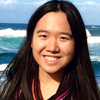 Serina Chang
Serina Chang
Columbia University
Serina Chang is a senior at Columbia University studying computer science and sociology. Her research interests fall at the intersection of the two fields, specifically in combining natural language processing and computational social science. Her prior work in emotion detection and automatic text summarization led to publications in EMNLP’18 and EACL’17. She is also passionate about education and student diversity, and has served as a teaching assistant in CS, co-president of Lean In at CU, and Academic Chair of CU Womxn in CS.
 Lauren Gillespie
Lauren Gillespie
Southwestern University
Lauren Gillespie is a senior at Southwestern University majoring in computer science and chemistry. She is interested in how evaluation can generate complex intelligence akin to our own artificial systems. Most recently, she has been looking at low-level evolutionary dynamics to understand the influence of changing environments on genes in genetic architectures.
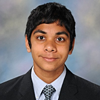 Shyam Narayanan
Shyam Narayanan
Harvard University
Shyam Narayanan is a senior at Harvard University majoring in math, computer science, and statistics. His passion for math comes from both the excitement of innovative ideas and new mathematical fields and the clever tricks manifested in competition math. His goal is to share the love of these two related aspects of math through teaching, both as a teaching fellow for Harvard courses as well as a coach for high school math competitions.
 Michihiro Yasunaga
Michihiro Yasunaga
Yale University
Michihiro Yasunaga is a senior at Yale University majoring in Computer Science and Mathematics. His research interests are in natural language processing (NLP) and machine learning, where he has investigated data-driven algorithms for automated analysis of human language. In particular, he has contributed to the fields of automatic text summarization, syntax and semantics, and latent variable models for NLP. His work has led to publications in major NLP and AI conferences such as NAACL’18, EMNLP’18, and AAAI’19.
Runners Up
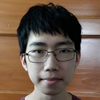 Ricson Cheng
Ricson Cheng
Carnegie Mellon University
Ricson Cheng is a senior at Carnegie Mellon University majoring in computer science with a minor in machine learning. His research focus is on active perception for visual recognition and object manipulation. Currently, he is working towards unsupervised visual representation learning using view prediction.
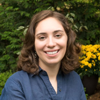 Emma Lurie
Emma Lurie
Wellesley College
Emma Lurie is a senior at Wellesley College majoring in computer science and Chinese language and culture. She is interested in algorithmic auditing techniques to investigate the behavior of Google and other platforms’ algorithmic news features.
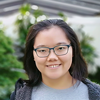 Xinyu Wu
Xinyu Wu
Carnegie Mellon University
Xinyu Wu is a senior at Carnegie Mellon University majoring in computer science and mathematical sciences. She has done significant work in and is very passionate about theoretical computer science as well as bringing people together to share ideas in a weekly seminary that she set up.
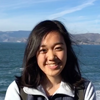 Annie Xie
Annie Xie
University of California, Berkeley
Annie Xie is a senior at the University of California, Berkeley majoring in electrical engineering and computer science. Her research lies at the intersections of deep learning, reinforcement learning, and robotics. The goal of her research is to leverage meta-learning and video prediction methods for robotic vision-based control under limited human supervision.
Finalists
Jackson Abascal – University of Rochester
Maryam Bahrani – Princeton University
Jonah Casebeer – University of Illinois at Urbana-Champaign
Dibya Ghosh – University of California, Berkeley
Noah Golowich – Harvard University
Jenny Hamer – University of California, San Diego
Meena Jagadeesan – Harvard University
Hong Jun Jeon – University of California, Berkeley
Jonathan Lee -University of California, Berkeley
Runliang (Oscar) Li – Duke University
Nelson Liu – University of Washington
Daniele Moro – Boise State University
Eric Neyman – Princeton University
Kimberly Ruth – University of Washington
Tyler Scott – University of Colorado, Boulder
Andrew Vuong – University of Utah
Xuanyu (Ben) Zhou – University of Illinois at Urbana-Champaign
Honorable Mentions
Harrison Brown – Rice University
Timothy Burchfield – University of Notre Dame
Sophia Chan – University of Victoria
Jeff Cho – University of Alberta
Michael Cinkoske – Purdue University
Zachariah Cohen – Princeton University
Trisha Datta – Princeton University
James Dong – University at Texas at Austin
Matthew Eichhorn – University at Buffalo, SUNY
Diego Fabiano – University of South Florida
Grant Fong – Brown University
Hannah Fowler – Texas A&M University
Han Guo – University of North Carolina at Chapel Hill
Maxine Hartnett – University of Colorado
Edward Huang – University of Illinois at Urbana-Champaign
Grant Iraci – University at Buffalo, SUNY
Isay Katsman – Cornell University
Pathirat Kosakanchit – University of Washington
Rohith Kuditipudi – Duke University
Irene Li – Carnegie Mellon University
Pengyuan Lu – University of Virginia
Sara McAllister – Harvey Mudd College
Luke Miles – University of Kentucky
Andriy Mulyar – Virginia Commonwealth University
Mina Narayanan – Auburn University
Michael Neuder – University of Colorado
Hamed Nilforoshan – Columbia University
Kojin Oshiba – Harvard University
Shyamal Patel – Georgia Tech
Gregor Peach – George Washington University
Rowan Phipps – University of Washington
Prasanna Ramakrishnan – Stanford University
Silei Ren – Brown University
Nicholas Rewkowski – University of North Carolina at Chapel Hill
Nicholas Roberts – University of California, San Diego
Gili Rusak – Stanford University
Omar Sagga – Boston University
Harshay Shah – University of Illinois at Urbana-Champaign
Marilyn Sun – Tufts University
Qiuyue Sun – University of Rochester
Kiran Tomlinson – Carleton College
Hoan Tran – University at Buffalo
Caleb Tung – Purdue University
Jiachen Wang – Vanderbilt University
Ben Weinshel – University of Chicago
Nathaniel Weir – Brown University
Justin Whitehouse – Columbia University
Frederick Xu – Duke University
Jung Min (Chris) Yoon – University of British Columbia
Euisun (Irene) Yoon – Cornell University
Ling Zhang – Purdue University
Ruiqi Zhong – Columbia University
2018
Sponsor: Mitsubishi Electric Research Labs
Selection Committee: Ran Libeskind-Hadas (Harvey Mudd College) Chair, Eric Aaron (Vassar College), Pieter Abbeel, UC Berkeley, Michela Becchi, North Carolina State University, Cristina Nita-Rotaru (Northeastern University), Margo Seltzer (Harvard University), and Brian Tjaden (Wellesley College)
Awardees
 Joshua Brakensiek
Joshua Brakensiek
Carnegie Mellon University
Joshua Brakensiek is a senior in the Mathematical Sciences Department at Carnegie Mellon University where he has participated in several projects in computational complexity theory including new results in constraint satisfaction, hardness of approximation, and codes robust to deletions. His work has resulted in publications in major conferences including the Symposium on Discrete Algorithms, APPROX, and RANDOM. He was a Putnam Fellow and was a member of the first place Putnam Team in 2016.

Ching-Yun “Chloe” Hsu
California Institute of Technology
Chloe Hsu is a senior at Caltech majoring in mathematics and computer science. Her research interests are in theoretical computer science as well as other areas at the intersection of computer science and mathematics. She learned about the “3SUM Conjecture” when she took a course in computational complexity theory in her freshman year and her subsequent research on that problem has led to important new results that were published the 42nd International Symposium on Mathematical Foundations of Computer Science in 2017. In addition, results of her research on the Discrete Fourier Transform were published in the Symposium on Discrete Algorithms in 2018. She has served as teaching assistant for numerous courses and as an English to Chinese translator for Scientific American.
 Ashlie Martinez
Ashlie Martinez
University of Texas, Austin
Ashlie Martinez is a senior at the University of Texas at Austin where she is double-majoring in both electrical engineering and computer science. Her research is in the area of file systems and, specifically, in the CrashMonkey framework for testing the crash consistency of file systems. The results of her work were presented at the 9th USENIX Workshop on Hot Topics in Storage and File Systems in 2017. At UT Austin, she has served as a teaching assistant and has particularly enjoyed helping her peers learn about the hardware-software interface.
 Richard Phillips
Richard Phillips
Haverford College
Richard Phillips is a senior computer science major at Haverford College where he has engaged in research in chemoinformatics and machine learning. In one project, he helped develop computational methods to find bio-inspired molecules that, ultimately, may lead to better organic batteries. In another research project, he made contributions to the field of active learning by defining a new measure of uncertainty bias and demonstrating its utility in practice. His work has led to a publication in the Journal of Physical Chemistry and at the Workshop on Human Interpretability in Machine Learning in 2017. He has served as an undergraduate teaching assistant and a member of a student advisory board at Haverford.
Runners Up
 Noah Golowich
Noah Golowich
Harvard College
Noah Golowich is a junior majoring in both computer science and mathematics at Harvard University. His research spans both artificial intelligence and mathematical foundations of computer science including problems in multiple-facility location, graph theory, and others. His work has resulted in four publications in discrete mathematics and combinatorics journals, including one single-authored paper that resolved an open problem on linear homogeneous equations. He has served as a teaching assistant in several courses.
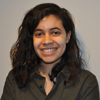 Sarah Hall-Swan
Sarah Hall-Swan
Tufts University
Sarah Hall-Swan is a senior at Tufts University where she is double-majoring in computer science and biology. Her research has explored problems in network clustering of protein-protein interaction networks as well as computational molecular docking. A paper based on her biological networks research was accepted for publication in BMC Systems Biology. She has worked at the Tufts Center for Engineering and Education Outreach and is an active leader in several campus organizations.
 Daniel Johnson
Daniel Johnson
Harvey Mudd College
Daniel Johnson is a senior at Harvey Mudd College where he is completing the joint major in computer science and mathematics. His research is in the area of neural networks where he has explored applications to graph transformation as well as music generation. His work has resulted in two single-authored papers in the 2017 International Conference on Learning Representations and in the 2017 International Conference on Evolutionary and Biologically Inspired Music and Art as well as two joint-authored papers. He has served as teaching assistant for several courses and is the project manager for a senior capstone project.
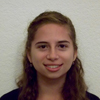 Julia Len
Julia Len
University of California, San Diego
Julie Len is a senior computer science major at UC San Diego where she has engaged in research in applied cryptography and, specifically, in the development of cryptographic hash functions that provide provable security guarantees. She presented her work on collision resistant hashing at the 2017 ACM Computer and Communications Security Conference. Julia has served as teaching assistant for multiple courses. She is the former president of the UCSD Scholars Society and is active in the Association for Women in Computing.
Finalists
Sheila Alemany – Florida International University
Eric Deng – University of Southern California
Raymond Fok – University of Michigan
Dan Hendrycks – University of Chicago
William Kuszmaul – Stanford University
Margaret Lawson – Dartmouth College
Hillary Lia – Queen’s University
Peter Manohar – University of California, Berkeley
Ahmad Shikib Mehri – University of British Columbia
Raphael Meyer – Purdue University
Alannah Oleson – Oregon State University
Srishti Palani – Mount Holyoke College
Kimberly Ruth – University of Washington
Garrett Thomas – University of California, Berkeley
Honorable Mentions
Rachel Alexander – University of Southern California
Mark Bryan – Cornell University
Kevin Chow – University of British Columbia
Mike D’Arcy – Cleveland State University
Anh Dao – University of Arizona
Rohan Doshi – Princeton University
Kiya Govek – Carleton College
Daniel Gratzer – Carnegie Mellon University
Isaac Griswold-Steiner – Texas Tech University
Jordan Haack – Harvey Mudd College
Maryam Hedayati – Carleton College
Xuan Huang – Bryn Mawr College
Preston Jiang – University of Washington
Siddharth Karamcheti – Brown University
Raunak Kumar – University of British Columbia
Rae Lasko – Carnegie Mellon University
Vivian Li – University of Rochester
Max Li – University of Pennsylvania
Siqi Liu – University of California, Berkeley
Kelly Mack – University of Illinois, Urbana-Champaign
Liza Mansbach – Cornell University
Daniel Minahan – University of Michigan
Ian Neal – University of Texas, Austin
Brandon Neth – University of Arizona
Scott Neville – University of Utah
Dana Nguyen – University of California Santa Barbara
Ke Ni – University of California, Santa Barbara
Deric Pang – University of Washington
Alex Pissinou Makki – University of California, Berkeley
Sorawee Porncharoenwase – Brown University
Nicholas Rioux – Northeastern University
Andy Rosales – University of California, Santa Barbara
Eric Rosen – Brown University
Nolan Shah – University of Houston
Zheyuan Shi – Swarthmore College
Yiliang Shi – University of Utah
Yousuf Soliman – Carnegie Mellon University
Jacob (Jalex) Stark – California Institute of Technology
Clayton Thomas – Purdue University
Jamie Tucker-Foltz – Amherst College
Jacob Van Geffen – University of Texas, Austin
Nick Walker – University of Texas, Austin
Kathleen Watson – University of Minnesota
Yucheng Yin – University of Michigan
Tianhe Yu – University of California, Berkeley
Valerie Zhao – Wellesley College
Ruiqi Zhong – Columbia University
2017
Sponsor: Microsoft Research
Selection Committee: Eric Aaron (Vassar College) Chair; Michela Becchi (University of Missouri); Rajiv Gandhi (Rutgers University – Camden); Dan Grossman (University of Washington); Sorelle Friedler (Haverford College); Walter Lasecki (University of Michigan); and Christina Nita-Rotaru (Northeastern University)
Awardees
Khurram Jafery
University of British Columbia
 Khurram Jafery is a senior in the combined computer science and mathematics honours program at the University of British Columbia. His research interests are in the area of type systems for programming languages, and he is focusing on extending the applicability of gradual typing, which combines static and dynamic typing within a single language. Khurram has also served as a reviewer for the 2016 ACM SIGPLAN International Conference on Functional Programming.
Khurram Jafery is a senior in the combined computer science and mathematics honours program at the University of British Columbia. His research interests are in the area of type systems for programming languages, and he is focusing on extending the applicability of gradual typing, which combines static and dynamic typing within a single language. Khurram has also served as a reviewer for the 2016 ACM SIGPLAN International Conference on Functional Programming.
Smitha Milli
University of California–Berkeley
 Smitha Milli is a senior electrical engineering and computer science major at the University of California, Berkeley. Smitha’s research areas include human-compatible AI, computational cognitive science, and natural language processing (NLP), with applications such as NLP of literature, bounded-optimal metareasoning, and AI safety. She has also been a teaching assistant for several CS courses, and she has assisted with the establishment of a Center for Human-Compatible AI at Berkeley.
Smitha Milli is a senior electrical engineering and computer science major at the University of California, Berkeley. Smitha’s research areas include human-compatible AI, computational cognitive science, and natural language processing (NLP), with applications such as NLP of literature, bounded-optimal metareasoning, and AI safety. She has also been a teaching assistant for several CS courses, and she has assisted with the establishment of a Center for Human-Compatible AI at Berkeley.
Hoon Oh
Rutgers University-Camden
 Hoon Oh is a senior computer science major at Rutgers University-Camden. His research focuses on algorithm design and analysis, with applications to problems such as radio aggregation scheduling, capacitated broadcast scheduling, and the stable matching problem with couples. Hoon has also been a teaching assistant at Rutgers-Camden and a guest lecturer at the Program in Algorithmic and Computational Thinking, a pre-college summer program in which he was previously a student.
Hoon Oh is a senior computer science major at Rutgers University-Camden. His research focuses on algorithm design and analysis, with applications to problems such as radio aggregation scheduling, capacitated broadcast scheduling, and the stable matching problem with couples. Hoon has also been a teaching assistant at Rutgers-Camden and a guest lecturer at the Program in Algorithmic and Computational Thinking, a pre-college summer program in which he was previously a student.
Jane Wu
Harvey Mudd College
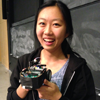 Jane Wu is a junior computer science and mathematics major at Harvey Mudd College. Her recent research is in the area of human-robot trust, applying game theory to explore how people’s perception of interacting with robots, rather than with other people, influences trust and cooperation. Jane is also a former co-president of the campus Combat Robotics Club, and she is a co-chair of her local chapter of the ACM Committee on Women in Computing.
Jane Wu is a junior computer science and mathematics major at Harvey Mudd College. Her recent research is in the area of human-robot trust, applying game theory to explore how people’s perception of interacting with robots, rather than with other people, influences trust and cooperation. Jane is also a former co-president of the campus Combat Robotics Club, and she is a co-chair of her local chapter of the ACM Committee on Women in Computing.
Runners-up
Siddhartha Jayanti
Princeton University
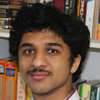 Siddhartha Jayanti is a senior computer science major at Princeton University. In his research, he focuses on concurrent algorithms for the disjoint set union problem, designing and analyzing algorithms that can exploit multiprocessor settings for more efficient solutions. Siddhartha has also been the outreach chair for the Princeton Math Club, and he is an Indian classical singer for a campus group that performs and promotes
Siddhartha Jayanti is a senior computer science major at Princeton University. In his research, he focuses on concurrent algorithms for the disjoint set union problem, designing and analyzing algorithms that can exploit multiprocessor settings for more efficient solutions. Siddhartha has also been the outreach chair for the Princeton Math Club, and he is an Indian classical singer for a campus group that performs and promotes
Indian classical music.
Jamie Lesser
Williams College
 Jamie Lesser is a senior majoring in computer science and mathematics at Williams College. Her research interests span computer graphics and applied mathematics, and her ongoing research work focuses on Monte Carlo integration, including variable-precision optimization and methods for handling functions of different variance. Jamie has also developed an open-source 3D graphics engine, and she served as the posters chair for the ACM SIGGRAPH Symposium on Interactive 3D Graphics and Games in 2015.
Jamie Lesser is a senior majoring in computer science and mathematics at Williams College. Her research interests span computer graphics and applied mathematics, and her ongoing research work focuses on Monte Carlo integration, including variable-precision optimization and methods for handling functions of different variance. Jamie has also developed an open-source 3D graphics engine, and she served as the posters chair for the ACM SIGGRAPH Symposium on Interactive 3D Graphics and Games in 2015.
Jingyi Li
University of California – Berkeley
 Jingyi Li is a senior electrical engineering and computer science major at the University of California, Berkeley. With research interests in areas of user interfaces, design, and human-computer interaction, Jingyi’s work ranges from digital fabrication systems to interactive virtual agents. Jingyi is also the president of the largest design club at UC Berkeley, Berkeley Innovation, and an experienced teaching assistant for courses such as Advanced Graphics and User Interface Design & Development.
Jingyi Li is a senior electrical engineering and computer science major at the University of California, Berkeley. With research interests in areas of user interfaces, design, and human-computer interaction, Jingyi’s work ranges from digital fabrication systems to interactive virtual agents. Jingyi is also the president of the largest design club at UC Berkeley, Berkeley Innovation, and an experienced teaching assistant for courses such as Advanced Graphics and User Interface Design & Development.
Keyi Zhang
Bucknell University
 Keyi Zhang is a senior computer science and engineering major at Bucknell University. Keyi’s research focuses on sensor networks and the Internet of Things, with work in areas such as distributed databases on low-powered network nodes and natural language search for sensor networks. Keyi has also been a teaching assistant for computer science at Bucknell, and he is an active member of his local ACM chapter.
Keyi Zhang is a senior computer science and engineering major at Bucknell University. Keyi’s research focuses on sensor networks and the Internet of Things, with work in areas such as distributed databases on low-powered network nodes and natural language search for sensor networks. Keyi has also been a teaching assistant for computer science at Bucknell, and he is an active member of his local ACM chapter.
Finalists
Terra Blevins – Columbia University
Vinyas Harish – Queen’s University
Peter Kraft – Harvard University
Ashvin Nair – University of California – Berkeley
Alex Ozdemir – Harvey Mudd College
Alexandra Porter – Arizona State University
Lillian Tsai – Harvard University
Yisu Remy Wang – Tufts University
Julia Woodward – University of Florida
Honorable Mentions
Alyxander Burns – Mount Holyoke College
June Chen-William – Marsh Rice University
Christina Chung – University of Toronto
Jessica Fan – Dartmouth College
Rolando Garcia – Arizona State University
Xinyang (Young) Geng – University of California – Berkeley
Louis Jenkins – Bloomsburg University
Ruoxin (Amy) Jiang – Columbia University
Laurynas Kalesinskas – Loyola University Chicago
Graham Lustiber – Harvard University
Christopher Mackie – University of Washington
Kalina Petrova – Princeton University
Xi Bei She – University of British Columbia
Jessica Shi – Princeton University
Ross Vasko – The Ohio State University
Prayaag Venkat – University of Maryland
Ashton Webster – University of Maryland
Nathaniel Yazdani – University of Washington
Jun Ho Yoon – Columbia University
Sarah Yu – University of Washington
2016
Sponsor: Mitsubishi Electric Research Labs
Selection Committee: Eric Aaron (Vassar College), Chair; Michela Becchi (University of Missouri); Sorelle Friedler (Haverford College); Rajiv Gandhi (Rutgers University, Camden); James Geller (New Jersey Institute of Technology); Walter Lasecki (University of Michigan); Lydia Tapia (University of New Mexico)
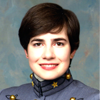 Lisa Jones – Female Awardee
Lisa Jones – Female Awardee
United States Military Academy – West Point (non-PhD-granting institution)
Lisa Jones is a senior computer science and mathematics major at the United States Military Academy (West Point). Her research interests include computational phylogeny, cryptography, and quantum computing, with recent projects including endgame studies in quantized chess, computational comparisons of large numbers of evolutionary trees, and discovering invariants in quantum error correcting codes. Lisa is also an accomplished musician, and she is the President of the United States Military Academy’s local chapter of the ACM Committee on Women in Computing.
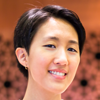
Photo credit: Lisa Gong
Katherine Ye – Female Awardee
Princeton University (PhD-granting institution)
Katherine Ye is a senior computer science major at Princeton University. Her research applies formal methods and program synthesis techniques to create high-assurance software and hardware, and her past projects have included the formal specification of DNS servers and verification of elements of cryptographic systems. Katherine’s current work continues at the intersection of formal methods and cryptography, developing computer-checked proofs of security properties of pseudo-random number generators.
 Jared Coplin – Male Awardee
Jared Coplin – Male Awardee
Texas State University (non-PhD-granting institution)
Jared Coplin is a senior majoring in computer science and minoring in mathematics at Texas State University. His research is on energy, power, and performance considerations of GPUs, including studies of the power behavior of GPGPU programs under various hardware settings and the effects of software optimizations on GPU performance. Jared is also a veteran of military service, and he has expressed interest in becoming a professor so he can do research and teach.
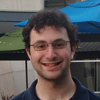 Mitchell Gordon – Male Awardee
Mitchell Gordon – Male Awardee
University of Rochester (PhD-granting institution)
Mitchell Gordon is a senior computer science major at the University of Rochester, with research interests in the area of human-computer interaction. Mitchell develops crowd-powered systems for various application domains: one project uses crowdsourcing to rapidly annotate behavioral events in videos, while also exploring how the privacy of individuals in videos can be protected; another project applies crowdsourcing to generate tutorials for a web-based computer science education system. He has also been a research intern at Google and a computer science teaching assistant at the University of Rochester.
 Weiyun (Anna) Ma – Female Runner-up
Weiyun (Anna) Ma – Female Runner-up
Harvey Mudd College (non-PhD-granting institution)
Weiyun Ma is a junior majoring in computer science and mathematics at Harvey Mudd College. Her research is in the area of computational biology, working on phylogenetic tree reconciliation algorithms that can enable the reconstruction of evolutionary histories of co-evolving species. Her results include an NP-Completeness proof and a fast approximation algorithm for a tree reconciliation problem, as well as implemented demonstrations of the algorithm’s efficiency. She is also a highly regarded pianist whose recent public performances include Mozart and Beethoven piano sonatas.
 Megan Hofmann – Female Runner-up
Megan Hofmann – Female Runner-up
Colorado State University (PhD-granting institution)
Megan Hofmann is a junior majoring in computer science at Colorado State University. Her research interests are in the area of assistive technology, improving quality of life for people with disabilities. Her recent work focuses on design methodologies and tools for 3D printing of custom devices; examples include devices for people with arthritis or other grip impairments, and custom prosthetics with task-specific components (e.g., cello bow holder, table knife holder). Megan is also a founding member and co-chair of the Colorado State University chapter of the ACM Committee on Women in Computing.
 Rohan Chitnis – Male Runner-up
Rohan Chitnis – Male Runner-up
University of California – Berkeley (PhD-granting institution)
Rohan Chitnis is a senior majoring in electrical engineering and computer science at the University of California, Berkeley. Much of his research has been in robotics, where he works on hierarchical approaches for robot task and motion planning in real-world environments. Rohan is also interested in natural language processing research, working on systems that use neural networks to do machine translation. His research goal is to integrate natural language processing into hierarchical planning, an interdisciplinary combination of his interests that can make personal robots more robust and efficient.
Finalists and Honorable Mentions
Finalist (Female)
Non-PhD-granting Institutions
None
PhD-granting Institutions
Alison Clark, University of British Columbia
Krittika DSilva, University of Washington
Alison Kendler, Boston University
Caroline Lemieux, University of British Columbia
Finalists (Male)
Non-PhD-granting Institutions
Richard Barella, Washington State University – Vancouver
Tian Jin, Haverford College
PhD-granting Institutions
Sitan Chen, Harvard University
Adnan Haider, Illinois Institute of Technology
Yunsung Kim, Columbia University
Zhiyuan Lin, Georgia Institute of Technology
Samuel Saarinen, University of Kentucky
Honorable Mentions (Female)
Non-PhD-granting Institutions
Lillian Pentecost, Colgate University
Siruo Wang, Centre College
Xilin Yu, Mount Holyoke College
PhD-granting Institutions
Andrea Bajcsy, University of Maryland
Alison Chang, Columbia University
Jennifer Hammelman, Tufts University
Kesha Hietala, University of Minnesota
Yuqian Jiang, The University of Texas at Austin
Tara Kola, Tufts University
Minae Kwon, Cornell University
Jingyi Li, University of California – Berkeley
Ramya Rangan, Harvard University
Esther Rolf, Princeton University
Joyce Zhu, University of Rochester
Honorable Mentions (Male)
Non-PhD-granting Institutions
Matt McNiece, Wake Forest University
Alexander Putman, Harvey Mudd College
PhD-granting Institutions
Jonathan Behrens, Cornell University
Frank Cangialosi, University of Maryland
Isaac Cohen, Boston University
Joshua Daymude, Arizona State University
Zhengqi Li, University of Minnesota
Darby Losey, University of Washington
Trevor Nelligan, Texas A&M University – College Station
Thomas Schaffner, Tufts University
Geet Sethi, Rutgers University
Benjamin Spar, Princeton University
Andrew Wells, Catholic University of America
Zhengyang Wu, Georgia Institute of Technology
Robert Ying, Columbia University
Andrey Zaytsev, University of Illinois at Urbana-Champaign
Marvin Zhang, University of California – Berkeley
Daryl Zuniga, University of Washington
2015
Sponsor: Microsoft Research
Selection Committee: Tom Wexler (Oberlin College), Chair; Eric Aaron (Vassar College); Jeffrey Forbes (Duke University); James Geller (New Jersey Institute of Technology); Lori Pollock (University of Delaware); John Reppy (University of Chicago); Lydia Tapia (University New Mexico)
Emma Harrington – Female Awardee
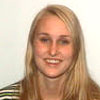 Senior at Williams College (non-PhD-granting institution)
Senior at Williams College (non-PhD-granting institution)
Emma Harrington is a senior computer science and economics double major at Williams College. Her research is on investigating what motivates people to produce free content online. She hopes this will shed light on why people contribute to public goods on the Internet. Recently, Emma submitted a poster to the CRA undergraduate research poster competition at Grace Hopper Celebration of Women in Computing and gave a short public presentation about her research. In addition to her research, Emma was a teaching assistant for multivariable calculus and captain of the Williams Varsity Softball team.
Urvashi Khandelwal – Female Awardee
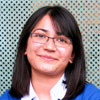 Senior at University of Illinois, Urbana-Champaign (PhD-granting institution)
Senior at University of Illinois, Urbana-Champaign (PhD-granting institution)
Urvashi Khandelwal is a senior in computer science with a minor in mathematics at the University of Illinois, Urbana-Champaign. Her research interests include modeling and mining large-scale entity-rich information networks, which can capture real world semantics. Her most recent project involved making high quality citation recommendations for a given scientific publication. In addition to her research, Urvashi has been a teaching assistant for the data structures course at Illinois since 2012.
Hyunsu Cho – Male Awardee
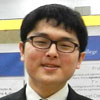 Senior at Trinity College (non-PhD-granting institution)
Senior at Trinity College (non-PhD-granting institution)
Hyunsu Cho is a senior computer science and mathematics double major at Trinity College. His computer science senior project is on hypergraph spectral clustering on GPUs and image classification where he is developing effective learning algorithms suitable for parallel environments. Hyunsu has been a teaching assistant in the computer science department since 2012 as well as a research assistant working on several research projects in medical imaging and scientific computing.
Danfei Xu – Male Awardee
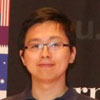 Senior at Columbia University (PhD-granting institution)
Senior at Columbia University (PhD-granting institution)
Danfei Xu is a senior computer science major at Columbia. His research interests and contributions are related to sensory perception of robotic systems; in particular, tactile sensing, visual perception, and sensor fusion. Recently, he contributed to a research project related to robotic manipulation. The goal of the project was to have a robot pick up a garment. Danfei developed a “local grasp” function in which a robotic arm move along a fixed trajectory around the garment while recording the readings of distance sensor mounted under the arm. The local grasp function was able to reconstruct a local transverse section of the garment.
Danaë Metaxa-Kakavouli – Female Runner-Up
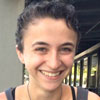 Senior at Brown University (PhD-granting institution)
Senior at Brown University (PhD-granting institution)
Danaë Metaxa-Kakavouli is a senior computer science and science & society double major at Brown University. Her senior honors thesis is on developing machine learning techniques to give sleep recommendations. In the future, she plans to continue using interdisciplinary methodologies and tools, anchored in computer science, to lead research that produces valuable data, user-facing technologies, and theoretical insight in Human-Computer Interaction. In addition to her research, Danaë has been a teaching assistant for a number of computer science classes, holding office hours and developing course materials.
William Rathje – Male Runner-Up
 Senior at University of Puget Sound (non-PhD-granting institution)
Senior at University of Puget Sound (non-PhD-granting institution)
William Rathje is a senior computer science and English literature double major at the University of Puget Sound. His senior project is on augmented reality and outdoor localization for mobile devices. William, and his team, developed an iPhone and Android app that provides worldwide outdoor localization using a custom GPS/compass senor-based augmented reality algorithm. In addition to his research, William is the lead tutor for the Center of Writing, Learning, and Teaching at the University of Puget Sound. He has worked with hundreds of students on writing and public speaking.
Brett Boston – Male Runner-Up
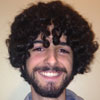 Senior at University of Washington, Seattle (PhD-granting institution)
Senior at University of Washington, Seattle (PhD-granting institution)
Brett Boston is a senior computer science major at the University of Washington. His research is aimed at using type systems and type interference to make it easier for programmers to guide the appropriate use of approximation. In addition to his research, Brett is currently a Coursera Teaching Assistant, working on an autograder for the Coursera programming languages course. This involves maintaining a system that can handle thousands of code submissions per week in a secure and reliable manner.
Finalists and Honorable Mentions
Finalists (Female)
Non-PhD-granting Institutions
Priya Donti, Harvey Mudd College
Lisa Jones, United States Military Academy, West Point
PhD-granting Institutions
Saloni Parikh, University of Washington, Seattle
Sahaana Suri, University of California, Berkeley
Finalists (Male)
Non-PhD-granting Institutions
Rowan Zellers, Harvey Mudd College
PhD-granting Institutions
Cenk Baykal, University of North Carolina, Chapel Hill
Dexter Duckworth, Mississippi State University
Aaron Lindsey, Texas A&M University
Nicholas Sharp, Virginia Tech
Honorable Mentions (Female)
Non-PhD-granting Institutions
none
PhD-granting Institutions
Rachel Gordon, University of Massachusetts, Amherst
Rachel Holladay, Carnegie Mellon University
Caroline Lemieux, University of British Columbia
KimYen Truong, University of Washington, Seattle
Honorable Mentions (Male)
Non-PhD-granting Institutions
Eric Mustee, John Carroll University
PhD-granting Institutions
Youngduck Choi, New York University
Matthew Kilgore, Lehigh University
Alexander Lalejini, Mississippi State University
Kevin Lee, Cornell University
Louis Li, Harvard University
Xiang Zhi Tan, University of Wisconsin, Madison
Christopher Yu, Cornell University
2014
Sponsor: Mitsubishi Electric Research Labs
Selection Committee: Maria Gini (University of Minnesota) Chair;
Eric Aaron (Vassar College); Janet Davis (Grinnell College); Michael Ernst (University of Washington); Miguel Labrador (University of South Florida); Tom Wexler (Oberlin College)
Pratiksha Thaker- Female Awardee
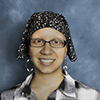 Senior at Massachusetts Institute of Technology
Senior at Massachusetts Institute of Technology
Pratiksha Thaker is a senior at the Massachusetts Institute of Technology in the Department of Electrical Engineering and Computer Science. Her research is the context of free form natural language commands given to a robot. Specifically, she modeled what clarifying question the robot should ask and how to combine the answer with the original command. She is also working to model how humans can search rapidly a large hypothesis space. In addition to her research, Pratiksha is active in advising undergraduates and in working with high school students.
Daniel Stubbs – Male Awardee
 Senior at University of Massachusetts Amherst
Senior at University of Massachusetts Amherst
Daniel Stubbs is a senior at the University of Massachusetts Amherst in the Department of Computer Science. Daniel has an exemplary record of research in theoretical computer science, specifically in algorithms for data stream processing. He improved algorithms for computing statistics in randomly ordered streams of unknown length, reduced the space needed to compute the earth mover distance problem, and created an algorithm for estimating matches of graphs in the case the graphs are not accessible in their entirety. Daniel is co-teaching a one-credit undergraduate computer science course for honors students.
Allison Pearce – Female Runner-Up
 Senior at University of Pennsylvania
Senior at University of Pennsylvania
Allison Pearce is a senior at the University of Pennsylvania majoring in Computer Science. In her research she analyzed high‐frequency oscillations recorded from the surface of the human brain to attempt to understand how seizures are generated. She created data visualization to show changes in the oscillations before, during, and after seizures and developed a method to co-register MRI and CT data for 3D brain reconstruction. Allison is also working as a teaching assistant, helping students with difficult material.
Kui Tang – Male Runner-Up
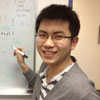 Senior at Columbia University
Senior at Columbia University
Kui Tang is a senior at Columbia University where he is majoring in Applied Mathematics. His research is highly multidisciplinary, spanning from algorithms for Markov Random Fields, to graph-theoretic methods for privacy-aware data mining, to a nonparametric model for neural imaging, and to a profiler for measuring performance of parallel programs and identifying bottlenecks. Kui has been a teaching assistant, a judge for debate tournaments, and a leader in student organizations.
Finalists and Honorable Mentions
Finalists (Female)
Carolyn Anderson, Swarthmore College
Victoria Lai, University of Maryland
Katherine Pogrebniak, Princeton University
Finalists (Male)
Alan Kuntz, University of New Mexico
Tyler Sorensen, University of Utah
David Turner, Texas A&M University
Honorable Mentions (Female)
Diana Cai, Harvard University
Jao-Ke Chin-Lee, Harvard University
Jane Hoffswell, Harvey Mudd College
Miranda Parker, Harvey Mudd College
Leela Senthil Nathan, Brown University
Hana Snow, Princeton University
Martina Unutzer, University of Washington
Honorable Mentions (Male)
Brandon Amos, Virginia Tech
Noah Apthorpe, Princeton University
Brian Brubach, Rutgers University
Camden Carlo del Mundo, Virginia Tech
Ron Estrin, British Columbia
Louis Li, Harvard University
Aaron Lindsey, Texas A&M University
Dylan Hutchison, Stevens Institute of Technology
Robert MacDavid, Rutgers University, Camden
Andrew Noyes, Cornell University
Praneeth Sadda, Johns Hopkins University
John Sarracino, Harvey Mudd College
Clifford Tawiah, University of Central Arkansas
Muhammed Uluyol, University of Minnesota, Twin Cities
Jack Weinstein, University of Illinois at Urbana-Champaign
2013
Sponsor: Microsoft Research
Selection Committee: Chris Stone (Chair, HMC); Amy Czismar Dalal (Carleton College); Miguel Labrador (University of South Florida); Jennifer Welch (Texas A&M); Thad Starner (Georgia Tech); and Maria Gini (University of Minnesota).
Vera Khovanskaya – Female Awardee
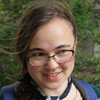 Senior at Cornell University
Senior at Cornell University
Vera Khovanskaya is a Senior at Cornell University in the Department of Information Science. As an undergraduate researcher in Cornell’s Interaction Design Lab, Vera brings a synthesis of computer science and social science skills to her projects. Vera’s research combines critical reflection on issues in the collection and processing of data for personal informatics with the design of technologies. She has assisted with the development of a mobile phone application to improve health behaviors and health awareness, and a mobile phone application that generates music in response to a user’s physical movements in order to foster creative expression. Vera also has also worked as a teaching assistant, and helped develop an introductory programming course for non-majors.
Matthew Bryan – Male Awardee
 Senior at University of Washington
Senior at University of Washington
Matthew Bryan is a Senior at the University of Washington majoring in Computer Science. Matthew’s research is highly multidisciplinary – spanning the fields of robotics to brain-computer interfacing. Matthew’s state-of-the-art research helps make brain-computer interfacing more adaptive to the ongoing needs of users, who are often paralyzed or disabled. As an undergraduate research assistant, Matt took on the challenging problem of developing a brain-computer interface for controlling an assistive humanoid robot using brain signals. Matthew’s novel approach allows the user to teach the robot new commands on the fly by training the robot to perform new behaviors using brain signals. In addition to formulating research hypotheses, developing and implementing algorithms, and presenting research results at international conferences, Matthew also mentors at-risk youth.
Zhengyuan Zhou – Male Awardee
 Bachelor of Science at University of California,
Bachelor of Science at University of California,
Berkeley Zhengyuan recently received his Bachelor of Science in Electrical Engineering and Computer Science and a Bachelor of Arts in Mathematics from the University of California, Berkeley. Zhengyuan has an exemplary record of research results, and a drive to work on deep and meaningful problems in computer science. He has co-authored several papers building on open-loop frameworks for differential games, with an emphasis on control and optimization. In addition to theory and algorithm design, Zhengyuan is a skilled programmer. Zhengyuan also gained experience as an undergraduate student instructor and tutor in the Department of Computer Science and Engineering and worked on problems in Algebra with researchers in the Mathematics Department.
Mattea Welch – Female Runner-Up
 Senior at Queen’s University in Ontario
Senior at Queen’s University in Ontario
Mattea Welch is a Senior at Queen’s University in Ontario, majoring in Computer Science with a specialization in Biomedical Computing. Mattea is passionate about using computing and logic to solve real life problems, and her projects are multidisciplinary – involving computer scientists and clinicians. She has organized research in the Laboratory for Percutaneous Surgery specializing in computer-assisted surgery. She is also a Research Assistant and Vice-President of the Queen’s Association for Technology in Medicine and Biology, which provides a platform to discuss and explore the changing role that technology plays in medicine and biology. It promotes the idea that traditionally separate fields of technology, medicine and biology have much to gain through a collaborative and multidisciplinary approach to problem solving.
Frank Ong – Male Runner-Up
Senior at University of California, Berkeley
Frank Ong is a Senior at the University of California, Berkeley, majoring in Electrical Engineering and Computer Sciences. As a Research Assistant, Frank investigated a novel way of denoising blood flow data using divergence-free wavelet transform. During the project, he had the opportunity to collaborate with radiologists in Stanford University, which motivated him to allow complete user control on the denoising process, because algorithms may cover up some details that radiologists want to see.
Finalists and Honorable Mentions
Finalists (Female)
Logan McNamara, Lehigh University Marjori Pomarole, University of California, San Diego Alexandra Schofield, Harvey Mudd College
Finalists (Male)
Daniel Grier, University of South Carolina
Eric Moult, Queen’s University
Sameh Saleh, George Mason University
Rohan Sharma, University of Illinois at Urbana-Champaign
Honorable Mentions (Female)
Colleen Alkalay-Houlihan, McGill University
Andreea Bancila, Mount Holyoke College
Willa Chen, Princeton University
Yudi Fu, Brown University
Rachel Gordon, University of Massachusetts,
Amherst Grace Muzny, University of Washington
Amy Pavel, University of California, Berkeley
Melissa Queen, Dartmouth College
Elissa Redmiles, University of Maryland, College Park
Stephanie Rogers, University of California, Berkeley
Kaitlin Stouffer, Princeton University
Megan Torkildson, University of Washington
Rachel Ulgado, University of California, Irvine
Rachel Wesley, University of Rochester
Honorable Mentions (Male)
Gregory Allan, Queen’s University
Gregory Bodwin, Tufts University
Kevin Brandstatter, Illinois Institute of Technology
Jonathan Burket, University of Virginia
Nicholas Carboni, Lafayette College
Kevin Clark, University of Washington
Nihit Desai, University of Illinois at Urbana-Champaign
Jesse Domack, Florida International University
Adam Fairfield, Arizona State University
John Fallon, University of Massachusetts, Lowell
Clement Gehring, McGill University
William Hamilton, McGill University
John Judnich, Santa Clara University
Jason Koenig, Carnegie Mellon University
Alan Kuntz, University of New Mexico
Young Hyun (Albert) Kwon, University of Pennsylvania
Avi Levy, University of Texas, Dallas Jack Ma,
Harvey Mudd College
Kevin Mantel, Princeton University
Douglas McErlean, Brown University
Christopher Miller, University of Rochester
Gal Oshri, Princeton University
Tong Pham, Lafayette College
Steven Reisman, Loyola University, Chicago
Mark Rich, New York University
Cesar Rodriguez, Texas A&M University
Russell Seidel, Clarkson University
Michael Shaffer, Loyola University, Chicago
Max Smiley, Tufts University
Daniel Stubbs, University of Massachusetts, Amherst
Timothy Sun, Columbia University
Kui Tang, Columbia University
Kesler Tanner, Brigham Young University
Jesse Thomason, University of Pittsburgh
Jeffery Thompson, University of Southern Maine
David Turner, Texas A&M University
Joshua Wang, Stanford University
Matthew Weber, University of Virginia
James Wilcox, Williams College
Alan Wright, University of Central Florida
Jason Zhao, Cornell University
2012
Sponsor: Mitsubishi Electric Research Labs
Selection Committee: Chris Stone (Harvey Mudd College) Chair; Amy Dalal (Carleton College); Richard Korf (UCLA); Michael Loui (University of Illinois at Urbana-Champaign); and Jon Turner (Washington University in St. Louis).
Sarah Cannon – Female Awardee
Senior at Tufts University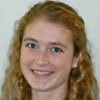
Sarah Cannon is a Senior at Tufts University majoring in Mathematics with a Computer Science minor.
Sarah has contributed to an impressive variety of research projects, working with a broad range of researchers. Most recently, she has been looking into spontaneous self-assembly of nanoscale devices. The process can be viewed as a tiling problem with constraints, but several different abstract models have been proposed. Sarah has proved new results comparing these models and their ability to simulate one another.
In separate work, she has devised algorithms and complexity results for the problem of orienting undirected graphs, and made contributions to minimal surface theory.
Sarah works as an academic tutor and taught a robotics workshop for kindergarten and elementary school students. She is also a dedicated field hockey player, and has been recognized by the NCAA as an outstanding scholar-athlete.
Justin Cheng – Male Awardee
 Senior at Cornell University
Senior at Cornell University
Justin Cheng is a Senior at Cornell University majoring in Computer Science.
Social networks support both one-way communication (e.g., broadcasts by a celebrity) and two-way communication (e.g., discussions). Justin has analyzed communication patterns to automatically classify relationships as reciprocal or non-reciprocal, paving the way for improved recommendation systems.
In other work, Justin has investigated ways that computer interfaces can motivate behavior, leading to papers on fun interfaces that encourage users to provide tags for images, and contemplative interfaces that promote slowness and self-reflection.
As a teaching assistant, Justin has mentored students from a large range of backgrounds.
Karthik Narayan – Male Awardee
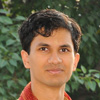 Senior at Georgia Institute of Technology
Senior at Georgia Institute of Technology
Karthik Narayan is a Senior at the Georgia Institute of Technology majoring in Computer Science and Discrete Mathematics.
Games and other modern applications require computers to create natural language text dynamically. One method is to combine pre-constructed templates, but when the collection of possible templates becomes large, managing their interactions can be difficult. Karthik has applied machine-learning techniques to templates, using controlled user studies to show that his work reduces the effort required to construct and maintain large collections.
Between this and other research projects, including algorithms for multi-agent reinforcement learning, Karthik has co-authored four publications as an undergraduate.
Beyond his own work, Karthik has helped freshman and sophomore students get involved in computer science research at Georgia Tech.
Sarah Chasins – Female Runner-Up
 Senior at Swarthmore College
Senior at Swarthmore College
Sarah Chasins is a Senior at Swarthmore College majoring in Computer Science and Behavioral Economics.
Although we expect programs to run quickly, novel language features can make efficient implementations difficult. Sarah designed and produced a new way of compiling the Plaid language, whose support for typestate abstractions permits objects to change their fields and methods on the fly, in well-structured ways. Compared to a previous Java-based implementation, Sarah’s JavaScript-based implementation produces code that is 47 times faster.
In an earlier project, Sarah worked on using embedded sensors in smartphones to draw conclusions about the user and the environment.
Sarah works as a teaching assistant and, as a head TA, trains new teaching assistants in the CS Department.
Lavanya Jose – Female Runner-Up
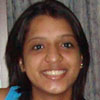 Senior at Princeton University
Senior at Princeton University
Lavanya Jose is a Senior at Princeton University majoring in Computer Science.
Lavanya’s research has focused on efficient online algorithms for measuring Internet traffic, studying the tradeoffs between accuracy and overhead for problems such as finding Hierarchical Heavy Hitters. Based on this work she developed OpenSketch, a configurable three-stage pipeline designed to run on network switches; it permits many different building blocks that can be combined to do interesting traffic-measurement tasks.
As a separate project, Lavanya has worked to improve WordNet, a lexical database of English widely used in computational linguistics and natural language processing.
Peter Chapman – Male Runner-Up
Senior at University of Virginia
Peter Chapman is a Senior at the University of Virginia majoring in Computer Science and Cognitive Science.
Computer security and privacy is a critical concern, especially when medical issues are involved. Peter developed a method for automatically searching web applications to find side-channel vulnerabilities in web applications. He applied new statistical tools to better describe these vulnerabilities. In the end, he determined that 88% of queries to Google Health could be recovered by an eavesdropping adversary.
Peter has also worked on secure computation, where parties collaborate on computing a function of two inputs without exposing the inputs to each other. He has proposed novel applications of secure computation in smartphones, and is working on an improved approach to mobile secure computation, relying on the network carrier to provide suitable streams of randomness.
Svilen Kanev – Male Runner-Up
 Senior at Harvard University
Senior at Harvard University
Svilen Kanev is a Senior at Harvard University majoring in Computer Science.
Energy-efficient hardware can produce unwanted power fluctuations due to subsystems powering down and powering up. Svilen showed that this voltage noise can be mitigated in multicore systems by intelligently scheduling threads and by controlling compiler optimization levels. A very strong experimentalist, he has also built detailed performance simulations of the Atom CPU microarchitecture, including power modeling, and validated them against real hardware.
Additionally, Svilen is the lead contributor to the AI system used in competition by the Harvard-MIT Robot Soccer Club, working on everything from the high-level strategy language down to low-level embedded controls.
Finalists and Honorable Mentions
Finalists (Female)
Rebecca Pottenger, Princeton University
Dorsa Sadigh, UC Berkeley
Finalists (Male)
Jacob Andreas, Columbia University
Matthew Bryan, University of Washington
Forrest Iandola, University of Illinois at Urbana-Champaign
Kyle Murray, University of Rochester
Rohan Sharma, University of Illinois at Urbana-Champaign.
Honorable Mentions (Female)
Jiamin Chen, University of Virginia
Eunsol Choi, Cornell University
Camille Cobb, Washington and Lee University
Stephanie Dietzel, University of Washington
Fraida Fund, Polytechnic Institute of New York University
Brittany Nicholls, McDaniel College
Halley Orshan, University of Rochester
Kaitlin Pollock, University of Pennsylvania
Adina Rubinoff, University of Rochester
Cecilia Schudel, Columbia University
Virginia Smith, University of Virginia
Emily Tsang, McGill University
Julia Warnke, University of Nebraska at Omaha
Hilary Worden, University of Washington
Honorable Mentions (Male)
Grant Ayers, University of Utah
Constantin Berzan, Tufts University
Kevin Black, Harvey Mudd College
Adam Blank, Carnegie Mellon University
Ben Braun, University of Texas at Austin
Kyle Brogle, Boston University
Elliott Brossard, University of Washington
George Brova, Boston University
Tyler Denniston, Northeastern University
Thomas Dodson, University of Kentucky
Corey Engelman, Rochester Institute of Technology
David Gagne, University of Southern Maine
Connor Gramazio, Tufts University
Daniel Grier, University of South Carolina
Jonathan Harper, Mississippi State University
Marc Khoury, Ohio State University
Nathan Malkin, Brown University
Matthew Manley, University of Virginia
Jimmy Li, McGill University
John Monaco, Pace University
Stefan Muller, Harvard College
Stuart Pernsteiner, Harvey Mudd College
Eeshan Shah, Virginia Tech
Vinay Shah, University of Massachusetts, Amherst
Antal Spector-Zabusky, Williams College
Malcolm Stagg, Louisiana State University
Alec Story, Cornell University
Sameep Tandon, UC Berkeley
Faaez Ul Haq, Princeton University
Grant Van Horn, UC San Diego
Victor Vu, University of Texas at Austin
Zhihong Xu, Princeton University
John Zhuang, Columbia University
2011
Sponsor: Microsoft Research
Selection Committee: This year’s selection committee included Richard Waters (Mitsubishi Electric Research Labs), Chair; Ed Fox (Virginia Tech); Gary Leavens (University of Central Florida); Anna Lubiw (University of Waterloo); and Chris Stone (Harvey Mudd College).
Hijung Shin – Female Awardee
Senior at Princeton University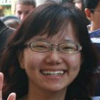
Hijung (Valentina) Shin is a Senior at Princeton University majoring in Computer Science.
Over the years, there have been a number of projects seeking to use Computer Science techniques to help reassemble archeological artifacts such as broken wall paintings. However, these projects have typically used brute force approaches to matching pieces and have been only somewhat successful. Valentina pioneered a completely different approach based on detailed analysis of the way frescoes break. She created an algorithmic fracture model through a semi-automatic study of frescoes that have been reconstructed by hand. This model of the breaking process shows great promise for improving the automatic matching of pieces. The model also opens the door on other possibilities such as understanding what kinds of events caused the destruction of a particular wall.
In addition to quality research, Valentina is a star student ranked as one of the best in the entire university. She also tutors in Princeton’s Engineering Education for Kids program.
Peter Bailis – Male Awardee
Senior at Harvard University
Peter Bailis is a Senior at Harvard University majoring in Computer Science.
Peter created a system for proactively reducing average-case processor temperatures by injecting idle cycles into computation, decreasing cooling requirements. Leading a team of two undergraduates, one graduate student, and two faculty members, he extended this approach to large data centers and analytically determined that it could enable broader geographical adoption of free-cooling techniques (e.g., leveraging cold outside air). Peter also has worked on the Harvard RoboBees project, where he explored the relative importance of shared and private information in honeybee foraging models, which resulted in a paper that won the Best Student Paper award at a swarm intelligence conference. He has also contributed to the ongoing design and construction of a distributed operating system for micro-aerial vehicle swarms.
In addition to the research above, Peter has worked as a volunteer at the Harvard-based Small Claims Advisory Service, managing their IT infrastructure and assisting clients with legal requests.
Patrick Wendell – Male Awardee
Senior at Princeton University
Patrick Wendell is a Senior at Princeton University majoring in Computer Science.
A key problem in deploying Internet-scale systems is directing client requests to the best (closest/most responsive) instance of a web site. Patrick designed, built, and deployed a system called DONAR that overcomes the limitations of the current state-of-the-art of replica selection and has both conceptual and practical contributions. The work realizes optimal replica selection through a robust distributed algorithm that is both stable and effective. He demonstrated this through formal proofs, extensive simulations, and real deployment. Today, DONAR runs on a network if global servers and provides replica selection for CoralCDN, a large content distribution network and MeasurementLab, a distributed research platform.
This past summer, Patrick worked at Cloudera. There, he quickly became one of the trusted committers to Apache’s Avro—the RPC networking layer to be used in Hadoop, a distributed computing framework. Patrick’s work on Avro is designed to improve the performance, maintenance, and debugging of large distributed systems.
Mitchell Koch – Male Runner-Up
Senior at Rice University
Mitchell Koch is a Senior at Rice University majoring in Computer Science.
Mitchell’s main research focus has been on inferring models of signaling networks from large data sets containing expression levels of key proteins in human T-cells. Learning networks from data is computationally very hard, scaling super-exponentially in the number of nodes. Mitchell devised a clever method for assessing the confidence of connections and discovered six new crosstalk mechanisms in the T-cell signaling pathway.
Recently, he has developed new algorithms for learning dynamic Bayesian networks. He began doing research while only a sophomore in high school. His first project involved detecting cancerous lesions in images of prostate biopsies. He transitioned into the research track described above as a junior in high school and has continued it during his years at Rice.
Mark D. Leiserson – Male Runner-Up
Senior at Tufts University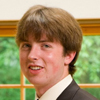
Mark D. Leiserson is a Senior at Tufts University majoring in Computer Science.
New high-throughput genomic experiments have resulted in massive graphs that can be mined for data about groups of genes that work together. One of the most useful patterns to look for in these graphs are small tightly connected subgraphs that have large negative maximum cuts. Mark (Max) was the lead student researcher on a project to automatically locate such subgraphs. He implemented the entire algorithm and devised a clean and elegant technique for pruning the results. In this work he has shown both computational and biological sophistication.
Since the summer after his freshman year at Tufts, Max has worked on algorithmic problems in Computational Molecular biology. His first project resulted in his co-authoring a publication in RECOMB 2009; currently he is the first author on a paper submitted to RECOMB 2011.
Finalists and Honorable Mentions
Finalists (Female)
Jacqueline Addesa, Virginia Tech
Eleanor Avrunin, Yale University
Laura Bartha, Queen’s University
Erin McManus, Vanderbilt University
Robin Miller, University of Rochester
KatieAnna Wolf, University of Minnesota
Finalists (Male)
Jory Denny, Texas A&M University
Francis Ferraro, University of Rochester
Harry Gao, College of William and Mary
Stephen Miller, UC Berkele
Todor Mollov, UC San Diego
Adrian Vladu, Brown University
Honorable Mentions (Female)
Dania Alvarez, University of Louisiana at Lafayette
Sarah Cannon, Tufts University
Jun Hui Erh, Cornell University
Sarah Ferraro, Harvey Mudd College
Heather Friedberg, University of Pittsburgh
Leilani Gilpin, UC San Diego
Joy Kim, University of Washington
Melisa Kudeki, University of Illinois at Urbana-Champaign
Kay Ousterhout, Princeton
Daniela Retelny, Cornell University
Elizabeth Sams, University of North Carolina at Chapel Hill
Cleo Schneider, Mount Holyoke College
Cathy Tianjiao Zhang, Mount Holyoke College
Jessica Wetstone, University of Pennsylvania
Sophia Yang, Pomona College
Honorable Mentions (Male)
Jacob Bank, Cornell University
Shrutarshi Basu, Lafayette College
John Bohlmann, Purdue University
Trevor Brown, York University
Desai Chen, Carnegie Mellon University
Christopher Cunningham, University of Virginia
Jeffrey Deuel, Texas A&M University
Akihiro Eguchi, University of Arkansas
Daniel Fielder, Harvey Mudd College
Nicholas FitzGerald, University of British Columbia
Ronald Garduno, University of New Mexico
Andrew Gocke, Northwestern University
Daniel Hefner, University of Louisiana at Lafayette
Cipta Herwana, Columbia University
Yuxing Huang, Williams College
Forrest Iandola, University of Illinois at Urbana-Champaign
Christopher Johnson, Knox College
Antony Kaplan, New York University
Sean Kelley, Tufts University
Samuel Kerr, Purdue University
Tsvetan Komarov, University of Nevada, Reno
Kevin Lewi, Carnegie Mellon University
Jake Lussier, University of Notre Dame
Eric McCann, University of Massachusetts, Lowell
Aleksander Morgan, University of Virginia
Thomas Morgan, Massachusetts Institute of Technology
Fred Morstatter, Arizona State University
Casey J. O’Brien, Marquette University
Jairo Pava, Florida International University
Patrick Plonski, University of Minnesota
Brandon Plost, University of Texas at Austin
Jeff Rasley, University of Washington
Vinicio Reynoso, Loyola University Chicago
Aaron Rosenfeld, Drexel University
Abhishek Sarkar, University of North Carolina at Chapel Hill
R. Colin Scott, University of Washington
Ben Shirley, University of Western Ontario
Christopher Steinmuller, Louisiana State University
Nicolae Stiurca, University of Texas at Austin
Peter Terlep, DePauw University
Kyle Thurow, Marquette University
Stephen Tu, UC Berkeley
Michael Ty, Princeton University
Joseph Wantroba, DePaul University
Samuel White, University of Rochester
Linfeng Yang, Harvard University
Anak Yodpinyanee, Harvey Mudd College
Jiaqi Zhai, Cornell University
2010
Sponsor: Mitsubishi Electric Research Labs
Selection Committee: Dick Waters (Mitsubishi Electric Research Labs) Chair; Michelle Craig (University of Toronto); Ann Gates (University of Texas at El Paso); Eric Grimson (MIT); and Hank Korth (Lehigh University).
Justine Sherry – Female Awardee
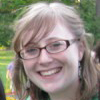 Senior at University of Washington
Senior at University of Washington
Justine Sherry is a senior at University of Washington with a double major in Computer Science and International Studies.
A longstanding impediment to the study of the Internet is that it does not explicitly expose information about its topology, paths or performance. Utilizing the IP timestamp option (an obscure and little-used aspect of the IP specification) Justine developed several techniques to measure unknown aspects of the Internet. She contributed critical timestamp-based algorithms to the Reverse Traceroute project, which discovers routing paths from a distant host back to a local source, improving both its accuracy and coverage. Having become probably the world’s greatest expert on the IP timestamp option she then turned to developing solutions to two other Internet measurement problems using IP timestamps: router alias resolution and measuring the one-way latency of backbone links.
In addition to performing valuable research, Justine served last year as vice chair of the student chapter of ACM at her university, where she worked to engage other undergraduate students in research by revamping graduate student poster sessions and introducing the undergraduate research information sessions at the University of Washington. She is currently the chair of the student ACM-W women’s chapter.
Elyot Grant – Male Awardee
Senior at University of Waterloo
Elyot Grant is a senior at University of Waterloo majoring in Mathematics and Computer Science.
Working under an undergraduate research award, Elyot was presented with a list of well-known open problems and rapidly proceeded to solve several of them. The most important relates to Kuratowski’s theorem on closures in topological spaces and how it relates to formal languages. In particular, he discovered a clever and subtle proof that there is a clopen partition between two words if, and only if, the words do not commute. In the short time since then, Elyot’s ideas on the topological separation of words have already been taken up by researchers in Europe, which shows that these ideas are important and in the mainstream of theoretical computer science.
After completing the work above, Elyot joined a separate research project in the area of Combinatorics and Optimization, and produced interesting results on approximation algorithms for NP-hard covering problems. In addition to possessing mathematical skills, Elyot is an expert programmer and has had a number of programming jobs while in college.
Matt McCutchen – Male Awardee
Junior at University of Maryland
Richard Matthew McCutchen is a junior at the University of Maryland majoring in Computer Science and Mathematics.
Matt has a long history of research going back to high school. His high school work on the “popular matching” problem (e.g., matching a set of people to jobs trying to satisfy their preferences) has already been cited by several other researchers. At Maryland, Matt has worked on streaming algorithms for clustering and developed a new algorithm for handling outliers. Matt also has worked on various projects in the area of programming languages.
Aside from research, Matt has maintained a near perfect GPA and has had great success at programming contests. He has qualified for the International Olympiad of Informatics three times, winning two gold medals and one silver medal.
Lucy Vasserman – Female Runner-Up
Senior at Pomona College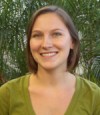
Lucy Vasserman is a senior at Pomona College majoring in Computer Science.
Lucy’s research has focused on creating a mood classifier for text—a system that identifies the prevailing emotion conveyed by a given section of text as anger, happiness, sadness, etc. This required creating a computer learning system that could deal with sparse and noisy training data.
Following that, she has made significant progress in the particularly challenging task of detecting sarcasm. In addition to her research, Lucy taught a summer course in robotics at Pomona for local high school students. While she received support from the CS department, she initiated and created the entire program independently.
Xuexin (Alice) Zhu – Female Runner-Up
Senior at Harvey Mudd College
Xuexin (Alice) Zhu is a senior at Harvey Mudd College majoring in Computer Science.
A central problem in pen-based interfaces is how to transition smoothly between drawing and editing. Beginning In her sophomore year, Alice proposed, built and tested a novel pen-based interface technique and has continued to work on the system. In 2009, she won first place in the ACM student research competition for this work.
In addition to quality research, Alice is a superior student maintaining the best GPA of any CS major in her class while doing extensive work as a TA. She has won many prestigious awards in computer science, including an Anita Borg Scholarship and a Microsoft Scholarship.
Zachary Abel – Male Runner-Up
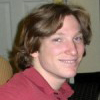 Senior at Harvard University
Senior at Harvard University
Zachary Abel is a senior at Harvard University majoring in Mathematics and Computer Science.
Working with an MIT professor, Zachary attacked the problem of whether hinged dissections always exist-that is, whether a single connected, hinged assembly can always fold between arbitrary configurations. Hinged dissections have been studied for more than 100 years, and many believed that they do not always exist. However, Zachary proved that they do in fact always exist.
Based on the strength of this work, Zachary was invited to participate in a yearly collaborative Computational Geometry Workshop at which he made significant contributions in both 2008 and 2009. In addition to all this, Zachary has maintained a near-perfect GPA.
Di Wang – Male Runner-Up
Senior at Cornell University
Di Wang is a senior at Cornell University majoring in Computer Science.
While maintaining a perfect GPA, Di has solved an open problem in theoretical Computer Science with applications to computer vision, and begun research on practical application of his ideas to image processing.
Di’s work focuses on the NP-hard problem of Quadratic Unconstrained Binary Optimization (QUBO), which captures the essence of a variety of vision problems. Prior work by Prof. Endre Boros has identified a family of lower bounds of the optimal value, denoted by C2,C3,C4,…, and C2 can be computed using network flow. Two questions are of great interest about these bounds: 1) Can our understanding about C2 be generalized to C3,C4,…, and 2) Can we identify partial optimal assignment from the computation of these lower bounds. For the particular bound C3, Di’s work answers both questions in the affirmative.
Finalists and Honorable Mentions
Finalists (Female)
Andreea Bodnari, Worcester Polytechnic Institute
Svetlana Lockwood, Washington State University
Kyle Rector, Oregon State University
Rita Sodt, University of Washington
Olga Zverovich, Harvard University
Finalists (Male)
Aleksandr Arkhipov, MIT
Paul Caravelli, Georgetown University
George Chen, UC Berkeley
Andrew Owens, Cornell University
Volodymyr Kuleshov, McGill University
Tom Morgan, MIT
Peng Shi, Duke University
John Silberholz, University of Maryland
Edgar Solomonik, University of Illinois, Urbana-Champaign
Honorable Mentions (Female)
Jacqueline Addesa, Virginia Tech
Christina Brandt, Cornell University
Heather Buletti, Rensselaer Polytechnic Institute
Jeannette Chang, University of Southern California
Jennifer Chen, Princeton University
Nina Chen, New York University
Milka Doktorova, Mount Holyoke College
Shelley Gao, University of Victoria
Allison Hoch, University of Maryland
Beenish Jamil, George Mason University
Kateryna Kuksenok, Oberlin College
Rachel Lathbury, University of Virginia
Ainsley Lawson, University Toronto
JaMia Moore, University of Arkansas at Little Rock
Jamila Salari, University of British Columbia
Corietta Teshera-Sterne, Mount Holyoke College
Manasi Vartak, Worcester Polytechnic Institute
Honorable Mentions (Male)
Ali Assaf, McGill University
Stephen Bach, Georgetown University
Brandon Blakeley, University of Texas at Austin
Gabriel Charette, McGill University
Jesse Cohen, Harvard University
Yi Ding, University of Massachusetts, Amherst
Daniel Eisenberg, Carnegie Mellon University
Adam Ernst, Princeton University
Ethan Fast, University of Virginia
William Hamilton, Texas A&M University
Robert Hendry, Hobart and William Smith Colleges
Jonathan Jenkins, Lafayette College
Sam Kerr, Purdue University
Eric Kimbrel, University of Washington
Boyan Li, University of Wisconsin, Madison
Cedric Yen Yu Lin, University of British Columbia
Christopher Louie, UC San Diego
Barry Lumpkin, Arizona State University
Gabriel Martinez, Virginia Tech
Sajid Omar Mehmood, Princeton University
David S. Noble, Jr., University of Virginia
Oleg Ovchinnikov, University of Tennessee
Jordan Rhee, UC San Diego
Garett Ridge, University of Louisville
Daniel Ritchie, UC Berkeley
Alejandro Vega, University of Texas at El Paso
John Wright, University of Texas at Austin
2009
Sponsor: Microsoft Research
Selection Committee: Richard Waters (Mitsubishi Electric Research Labs), Chair; David Novick (University of Texas, El Paso); Clement Lam (Concordia University); Geoff Keunning (Harvey Mudd College); and Lynn Stein (Olin College).
Raluca Ada Popa – Female Awardee

Raluca Ada Popa is a senior at Massachusetts Institute of Technology majoring in Computer Science and Mathematics.
At MIT, Raluca has been involved in three research projects that have resulted in three publications and two others in submission at top conferences. Her research includes: the auditing of computerized elections, cooperative caching techniques for huge databases spread across large numbers of servers, and computing useful statistics or functions about the movement of cars (e.g., automatic toll collection) without violating the privacy of drivers by revealing the position of any particular car.
After spending her freshman year at Cal Tech, Raluca transferred to MIT, maintaining a perfect GPA at both institutions. In the summer between, Raluca worked on a research project at the University of Illinois that resulted in a paper at SOSP. It is rare indeed for anyone to be on track to be an author on papers based on research in each undergraduate year. She also has served as an undergraduate tutor for the Office of Minority Education at MIT, and currently participates in the Women’s Outreach Program for the ECE Honor Society.
Tal Rusak – Male Awardee
Senior at Cornell University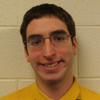
Tal Rusak is a senior at Cornell University majoring in Computer Science.
Tal has been involved in research since freshman year, resulting in seven first-authored publications and presentations. Current research involves discovering the structure of low-power wireless networks by applying analytical methods to novel computing systems. Results show effective ways to simulate such networks and have suggested novel statistical properties of wireless links. Tal’s work won the Best Paper Award at the international ACM MSWiM’08 conference and First Place in the ACM Student Research Competitions at MobiCom’08 and SIGCSE’08. His paper has been invited for journal publication and several additional papers are currently in preparation. Concurrently, Tal is working on a research and development project to design and implement a user-friendly web-based course planning and audit system, with a paper submitted for publication. Previously, Tal studied the efficient simulation of electronic sensor devices, including the CvMOS sensor and a nanotube-embedded chemicapacitive sensor; results were published at the IEEE ISDRS’07 conference.
Tal maintains a perfect GPA, has served as a teaching assistant and peer tutor for undergraduate students, and serves on the Student Library Advisory Council. He volunteers at an after-school program for elementary school students. Tal has a deep interest in history, and has published a sole-authored paper in an international journal in this field.
Erin Carson – Female Runner-Up
Senior at University of Virginia
Erin Carson is a senior at the University of Virginia, majoring in Computer Science with minors in Applied Mathematics and in Materials Science and Engineering.
At UVA, Erin has been involved in several research projects. Most notable are two involving modeling and simulation. The first concerns simulating the dissolution of alloys, which resulted in a conference paper. The second considers the uncertainties in epidemiological models and their effects on the results. Her work has brought into serious question whether any disease spread model can ever be deemed reliable.
In addition to being a fine student with a near-perfect GPA in her major and minors, Erin has worked as a TA for four semesters, gives her time freely to multiple charitable activities in the Charlottesville community, and holds an executive position in her professional engineering sorority.
Arthur Mahoney – Male Runner-Up
Senior at Utah State University
Arthur Mahoney is a senior at Utah State University, with a double major in Computer Science and Computational Mathematics.
Arthur Mahoney has pursued research in five areas that have resulted in three publications, two of which have Arthur listed as first author. His research includes: parallel path planning in large graphs, altruistic negotiation systems, developing novel parallel algorithms for extremely fast robotic motion planning, massively parallel search strategies for discovering novel cancer therapies, and parallel tools for hydrologic prediction and flood forecasting that scale to massive data sets.
In addition to maintaining a perfect GPA, Arthur mentors other students in the Undergraduate Research Program, tutors for the Mathematics and Statistics department, and is the administrator of the Computer Science department’s computer cluster, having designed and put it together himself.
Finalists and Honorable Mentions
Finalists (Female)
Dorna Haghighi, McGill University
Sarah Loos, Indiana University
Rachel Miller, University of Virginia
Julia Schwarz, University of Washington
Melanie Tupper, Dalhousie University
Finalists (Male)
Taylor Berg-Kirkpatrick, University of California
Berkeley Michael DeLisi, University of Utah
Peiran Gao, University of California, Berkeley
Kevin Karsch, University of Missouri
Michael Nowlan, Georgetown University
Nathaniel Roman, Washington University in St. Louis
Lawson Wong, Stanford University
Honorable Mentions (Female)
Jessie Berlin, Tufts University
Jenna Cameron, University of Western Ontario
Melanie Clements, New York University
Natalie Freed, Arizona State University
Sahar Hasan, Columbia University
Heather Justice, Harvey Mudd College
Jessica Leung, University of Washington
Samantha Leung, University of British Columbia
Gabriela Marcu, University of California, Irvine
Olena Melnychenko, Pennsylvania State University
Anna Ostberg, University of California, San Diego
Dhivya Padmanabhan, Texas A&M University
Elaine Shaver, Harvey Mudd College
Sweta Vajjhala, Georgia Institute of Technology
Lucy Vasserman, Pomona College
Honorable Mentions (Male)
Daniel Amirault, University of Massachusetts Amherst
Tycho Andersen, Iowa State University
Jeremiah Blocki, Carnegie Mellon University
Shaon Barman, University of Texas at Austin
Brian Burg, Purdue University
Hao Yu (Alex) Cheng, University of Toronto
Robert Clark, University of Illinois at Urbana-Champaign
Andre Cohen, Rutgers University
Jason Croft, Boston College
John Doucette, Dalhousie University
Paul Dumoulin, Pace University
William Ella, University of Mary Washington
Robert Gevers, Purdue University
Christopher Head, University of British Columbia
Marius Iordan, Williams College
David Kawrykow, McGill University
Andy Lindeman, Mississippi State University
George Lucchese, Texas A&M University
Edward Lui, University of British Columbia
William Marczak, University of Pennsylvania
Benjamin Maurer, Carnegie Mellon University
Teodor Moldovan, Brown University
Kupa Mutungu, Princeton University
Ian Obermiller, Marquette University
Denis Pankratov, University of Toronto
Mark Przepiora, University of Calgary
Adam Raczkowski, Tufts University
Mark Reitblatt, University of Texas at Austin
Michael Ryan, University of California, Los Angeles
Cory Simon, Iowa State University
Devin Smith, Harvey Mudd College
Ian Vo, Columbia University
Ziyu Wang, University of Waterloo
Brian Wongchaowart, University of Pittsburgh
Luke Zarko, University of Pennsylvania
2013
Sponsor: Mitsubishi Electric Research Labs
Selection Committee:
Richard Waters (Mitsubishi Electric Research Labs), Chair; David Novick (University of Texas, El Paso); Clement Lam (Concordia University); Geoff Keunning (Harvey Mudd College); and Lynn Stein (Olin College).
Rachel Sealfon – Female Awardee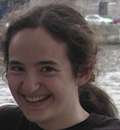
Senior at Princeton University
Rachel Sealfon is a senior at Princeton University majoring in Computer Science.
Rachel’s research is in the area of bioinformatics. Working largely independently, she developed a novel system for Gene Ontology analysis, search and exploration. She is the lead author of a paper on this research that has been published in BMC Bioinformatics (one of the main journals in the field). Her paper received stellar reviews and a lot of attention in the field, and her system is being used by biology researchers in many institutions.
Rachel has a near-perfect GPA in a diverse and demanding range of courses. In addition, she is a talented writer and has won several awards for her writing. One essay won the National Gilder Lehrman Prize in 2004 for the best essay on American History published in The Concord Review, the only journal to publish exemplary historical writing by high school students.
Kevin Dick – Male Awardee
Senior at California Institute of Technology
Kevin Dick is a senior at the California Institute of Technology majoring in Computer Science and Mathematics.
Kevin has worked on two major research projects. The first involves understanding the impact of caches on the performance of algorithms. Kevin developed a variant of the FFT that yields optimal use of hardware prefetching, which resulted in a workshop paper given by Kevin and a paper describing a mathematical model of prefetching. The second project concerns DNF minimization, which is perhaps the most natural and important example of a problem that is “even harder” than NP. Kevin contributed key insights that lead to tight bounds on the approximability of a class of DNF minimization problems.
In addition to working on his research projects, Kevin has maintained a high GPA in a demanding course schedule and has served as a teaching assistant.
Chuan Sheng Foo – Male Awardee
Stanford University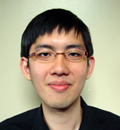
Chuan Sheng Foo is a junior at Stanford University majoring in Computer Science who intends to graduate in spring 2008.
Chuan Sheng’s research interests lie in the areas of machine learning and data mining. He has recently worked on two major research projects. The first involves the automatic tuning of regularization hyperparameters for a class of machine-learning models. In collaboration with a graduate student, Chuan Sheng implemented a solution based on deep understanding of the relevant mathematics that is both elegant and effective. A publication describing this work has been accepted by NIPS, a top machine-learning conference. The second project involves the prediction of RNA secondary structure. Chuan Sheng co-developed an innovative machine-learning based algorithm for the simultaneous folding and alignment of RNA sequences that is both more accurate and an order of magnitude faster than previous methods on realistic inputs. A paper describing this work is currently being written.
Chuan Sheng got his first taste of research in the four months between completing his compulsory Singapore military service and entering college. At the Institute for Infocomm Research in Singapore, he worked on a system to automatically identify protein complexes based on protein interaction data. The resulting paper won the Best Paper Award at the 16th International Conference on Genome Informatics in 2005.
Raluca Ada Popa – Female Runner-Up
 Junior at Massachusetts Institute of Technology
Junior at Massachusetts Institute of Technology

Raluca Ada Popa is a junior at Massachusetts Institute of Technology majoring in Computer Science and Mathematics.
At MIT, Raluca has been involved in two main research projects. The first project is theoretical in nature and concerns the auditing of computerized elections. Specifically, it concerns tight upper bounds on the number of ballots that need to be hand-counted in order to be confident in the results of voting system software. She contributed a central proof that resulted in a publication that she presented while only a sophomore. The second project concerns cooperative caching techniques for huge databases spread across large numbers of servers; it focuses in particular on fault tolerance in the face of dynamically changing sets of servers, some of which may be behaving maliciously. She has developed solutions for two key aspects of this system. Apaper on these results is in preparation.
After spending her freshman year at Cal Tech, Raluca transferred to MIT, maintaining a perfect GPA at both institutions. In the summer between, Raluca worked on a research project at the University of Illinois at Urbana-Champaign that resulted in a paper at SOSP, of which she is a co-author. It is rare indeed for anyone to be an author on papers based on research in each undergraduate year.
Finalists and Honorable Mentions
Finalists (Female)
Adrienne Felt, University of Virginia
Iris Howley, Drexel University
Donya Quick, Southern Methodist University
Franziska Roesner, University of Texas at Austin
Finalists (Male)
Adrian Dalca, University of Toronto
Henry DeYoung, Carnegie Mellon University
Lawrence Erickson, University of Illinois at Urbana-Champaign
Eugene Greene, University of Windsor
Evan Hoke, Carnegie Mellon University
Arthur Mahoney, Utah State University
Rajesh Ramakrishnan, Columbia University
Yuanchen Zhu, Harvard University
Honorable Mentions (Female)
Lucy Abramyan, Harvey Mudd College
Tanya Cashorali, Northeastern University
Margaret (Meg) Davis, Texas A&M University
Jennifer Dolson, University of Virginia
Polina Dudnik, Binghamton University, SUNY
Alana Edmunds, Syracuse University
Gwendolyn Einfeld, Calvin College
Alina Ene, Princeton University
Maja Frydrychowicz, McGill University
Ekaterina Gonina, University of Illinois at Urbana-Champaign
Paola Gonzalez, University of South Florida
Natasha Kholgade, Rochester Institute of Technology
Siu Yu Cherie Kwan, Cornell University
Katrina LaCurts, University of Maryland
Dhivya Padmanabhan, Texas A&M University
Katrina Panovich, Indiana University,
Bloomington Lori Pietraszek, Hobart and William Smith Colleges
Cristina Pop, University of British Columbia
Kirsten Stark, University of Illinois at Urbana-Champaign
Catherine Wah, University of Illinois at Urbana-Champaign
Kristina Wanous, University of Northern Iowa
Dana Wen, University of Washington
Juliette Zerick, University of Mary Washington
Irene Zhang, Massachusetts Institute of Technology
Honorable Mentions (Male)
Kurt Ackermann, Purdue University
Kareem Amin, Cornell University
Mitchell Beard, Georgetown University
Gilbert Bernstein, University of Texas at Austin
Kyle Byerly, Iowa State University
Lee Callender, University of Michigan
Rhys Causey, University of Toronto
Jackie Cheung, University of British Columbia
Nicholas Christman, Dartmouth College
Matthew Chu, University of Pennsylvania
Brendan Collins, Princeton University
Darren Davis, University of San Diego
Morgan Dixon, University of Maryland
Jonathon Duerig, University of Utah
Jason Fennell, Harvey Mudd College
Jeffrey Fielding, Dartmouth College
Marc Godard, Queen’s University
Colin Gordon, Brown University
Mahlon Graham, University of Virginia
Arthur Guez, McGill University
Ian Haken, University of California, Berkeley
Paul Himes, Michigan Technological University
Nicholas Jalbert, University of Virginia
Aaron Johnson, Carnegie Mellon University
Christopher Jones, University of California, Berkeley
Kevin Karsch, University of Missouri – Columbia
Stephen Kent, University of Texas at Austin
Zachary Kincaid, University of Western Ontario
Michael Krainin, University of Massachusetts
Amherst Kevin Lai, University of British Columbia
George Lucchese, Texas A&M University
Mikola Lysenko, Michigan Technological University
Patrick Marion, Rensselaer Polytechnic Institute
Grant Miller, University of Minnesota, Twin Cities
David Morrison, Harvey Mudd College
Mark Rawls, University of Virginia
Fady Samuel, University of Waterloo
Tyler Steele, Cornell University
Matt Swanson, Iowa State University
Kartik Talamadupula, Arizona State University
David Tepper, University of Washington
James Thiel, Drexel University
Anthony Waters, Rensselaer Polytechnic Institute
Caleb Wells, Texas A&M University
Sam Whittle, University of Washington
Marc Winners, Drexel University
Benjamin Wood, Williams College
Loren Yu, Stanford University
Luke Zarko, University of Pennsylvania
2007
Sponsor: Microsoft Research
Selection Committee:
Richard Waters (Mitsubishi Electric Research Labs), Chair; Anne Condon (University of British Columbia); Dorothy Deremer (Montclair State University); Dinesh Mehta (Colorado School of Mines); and Melissa O’Neill (Harvey Mudd College)
Stephanie Rosenthal – Female Awardee
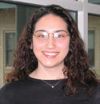 Senior at Carnegie Mellon University
Senior at Carnegie Mellon University
Stephanie Rosenthal is a senior at Carnegie Mellon University majoring in Computer Science.
Stephanie’s initial research at CMU was on social robotics and led to two publications. More recently, she has done research on collaborative learning. She investigated potential interfaces for use with interactive whiteboards and designed and ran a set of experiments about issues in collaboration, which resulted in a first-authored publication.
Stephanie’s interest in robotics goes back to high school. While completing her senior year of high school she also worked at the Naval Research Lab where she did research on social robotics. At CMU, Stephanie has been active in student government and is a student member of two curriculum review committees. She has been very involved in recruiting and maintaining female participation in computer science. Since her freshman year, Stephanie has been an active member of the Women@SCS program and has organized their Big Sister/Little Sister mentoring program.
Lester Mackey – Male Awardee
Senior at Princeton University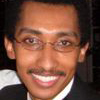
Lester Mackey is a senior at Princeton University majoring in Computer Science.
Lester’s main research efforts concern developing formal techniques for proving that software produces correct results, even when the hardware in the presence of intermittent hardware faults. He and his group at Princeton have been working on developing the first compiler system that can automatically produce proofs that the code it generates runs correctly on faulty hardware. This work has led to multiple conference papers (one published already, one submitted and one in preparation) for which Lester is a key author.
In addition to doing high-quality research, Lester has been very active in helping his fellow students. He is a Resident College tutor for struggling students and a member of the computer science undergraduate student council. He is a member of the Chapel Choir and active in Princeton’s Music Outreach Program, as well as being a prize-winning author and a senior staff member of The Prism, a magazine that promotes diversity.
Ana Pop – Female Runner-Up
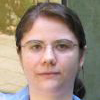 Senior at University of British Columbia
Senior at University of British Columbia
Ana Pop is a senior at the University of British Columbia majoring in Computer Engineering.
Her research has been on the computational prediction of the structure of bio-molecules based on physical models rather than on comparative techniques. She implemented a dynamic programming algorithm for RNA secondary structure prediction. In completely separate work she has done research on the ‘nonbacktracking spectrum’ of graphs. The work has led to interesting results, which have been submitted as a short paper to Experimental Mathematics.
Ana completed high school in only two years, and has continued rapid advancement by immersing herself in graduate-level research since early in her college career. At UBC, she has received hard-to-get scholarships from both General Motors and IBM.
Kristal Sauer – Female Runner-Up
Senior at University of Nevada Las Vegas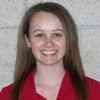
Kristal Sauer is a senior at the University of Nevada Las Vegas with a dual major in Computer Science and Electrical Engineering.
For the past several years, Kristal has been involved in a NASA-sponsored research project involving Human-Computer Interaction via hand pose reconstruction. Her work has focused on developing mathematically-based algorithms for camera calibration, as well as implementing statistical pattern-recognition techniques for computer vision. Though only an undergraduate, Kristal has become the chief programmer for the grant. Her work has resulted in four publications, one of which is first-authored.
Kristal has a near-perfect GPA and is on track to complete all the requirements for both a CS and an EE degree in five years. She has been a strong member of research teams formed primarily of graduate students since early in her time at UNLV.
Matei Zaharia – Male Runner-Up
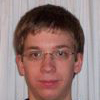 Senior at University of Waterloo
Senior at University of Waterloo
Matei Zaharia is a senior at the University of Waterloo majoring in Computer Science.
Matei’s research has focused on two areas related to networking—peer-to-peer systems and wireless networking. He has worked on efficient search algorithms for peer-to-peer networks, and improving recall in large, unmanaged, user-content storage systems in the presence of spelling errors. This work has lead to two publications, one of which is first-authored. His current work is on communication protocols that can maintain sessions across disconnections.
In addition to maintaining a near-perfect GPA, Matei has been very active and successful in programming contests. During high school, he won a silver medal two years in a row at the International Olympiad of Informatics. At Waterloo, he was twice a member of teams participating in the ACM programming championship. In the first year his team tied for 15th in the world, and in the second year his team placed 4th in the world and 1st in North America. Competing individually, he placed 15th (out of 14,500) at the Google Code Jam.
Finalists and Honorable Mentions
Finalists (Female)
Donya Quick, Southern Methodist University
Olga Russakovsky, Stanford University
Ekaterina Spriggs, University of Arizona
Finalists (Male)
Thomas Achtemichuk, Pace University
Jason Ansel, Northeastern University
Benjamin Hindman, University of Washington
Michael Kasick, Carnegie Mellon University
Mihir Kedia, Carnegie Mellon University
Abninder Litt, University of Waterloo
Alexander Rush, Harvard University
Honorable Mentions (Female)
Azza Abouzied, Dalhousie University
Oluwabukola Akinbo, University of South Florida
Jessica Chang, University of Maryland, College Park
Kristina Chodorow, New York University
Kelly Conway, Cornell University
Daria Craciunoiu, University of Washington
Tamara Denning, University of California, San Diego
Holly Esquivel, University of Nebraska at Kearney
Kathy Goodson, Harvard University
Ranjitha Kumar, Stanford University
Tracy Lau, University of British Columbia
Katherine Trushkowsky, Duke University
Tracy Wang, University of California, Berkeley
Jessica Young, Roanoke College
Honorable Mentions (Male)
Adam Aviv, Columbia University
Bryan Boyd, Texas A&M University
Robert Carroll, University of Washington
Maxime Chevalier-Boisvert, McGill University
Robert Cleric, University of Pittsburgh
Henry Cook, University of Virginia
Mihai Cucuringu, Hiram College
Alexei Czeskis, Purdue University
William Dabney, University of Oklahoma
Charles de Granville, University of Oklahoma
Patrick Donovan, McGill University
John Duchi, Stanford University
Robert Dyer, Iowa State University
Matthew Fisher, California Institute of Technology
Daniel Fridrich, Duke University
Yannick Gingras, Université du Québec à Montréal
Anthony Gitter, Arizona State University
Kevin Grimaldi, University of Massachusetts Amherst
Matthew Harper, Michigan Technological University
Evan Herbst, Cornell University
Jui-Yi Kao, University of Waterloo
Anirudh Koul, Dalhousie University
Hai-Son Le, University of Texas at Austin
Daniel Leventhal, Brown University
Tyler Lu, University of Waterloo
Matthew Marzilli, University of Massachusetts Amherst
Pyry Matikainen, Harvey Mudd College
Daniel McFarlin, Indiana University
Brendan Meeder, Carnegie Mellon University
Leo Meyerovich, Brown University
Greg Nicholas, University of Pittsburgh
Ryan Stutsman, Purdue University
Sergei Temkin, Belmont University
David Turner, Drexel University
Adam Vogel, University of Illinois at Urbana-Champaign
Vladislav Voroninski, University of California, Los Angeles
David Weiss, Princeton University
Andrew Wiser, University of California, Santa Cruz
Haoqi Zhang, Harvard University
2006
Sponsor: Mitsubishi Electric Research Labs
Selection Committee:
Richard Waters (Mitsubishi Electric Research Labs) Chair; Duane Bailey (Williams College); Anne Condon (University of British Columbia); and Deepak Kumar (Bryn Mawr College)
Jenny Yuen – Female Awardee
Senior at University of Washington
 Jenny Yuen is a senior at the University of Washington majoring in Computer Science and Engineering.
Jenny Yuen is a senior at the University of Washington majoring in Computer Science and Engineering.
Jenny’s research is on object and concept recognition for content-based image retrieval. This work has led to one publication with several more on the way. In the past year her focus has been on a medical application of image analysis. In this project she is performing like a graduate student, developing novel techniques of her own design and implementing them to produce a working system. Jenny has worked as a summer intern at both Microsoft and Google and has received scholarships from both companies.
Prior to attending the University of Washington, Jenny attended Escuela Nacional Preparatoria (the National High School of Mexico) where she was one of the top ten students in a class of 11,000 students. As a junior at the University of Washington she received an Honorable Mention in the CRA’s 2005 Outstanding Undergraduate Award competition. In addition to research, Jenny has worked as a consultant for the Minority Science & Engineering program, and is strongly involved in the student chapter of the ACM.
David Eisenstat – Male Awardee
Senior at University of Rochester
David Eisenstat is a senior at the University of Rochester. He is majoring in Computer Science with a minor, and potentially a second degree, in Mathematics.
David has done significant research in both Theoretical Computer Science and Mathematics. At Rochester he has worked on a range of deep problems in the areas of parallel computing, distributed computing and computational complexity. This has led to one published paper and several other papers in preparation. David has participated in NSF’s Research Experience for Undergraduate (REU) program for two summers, doing mathematical work in the areas of combinatorics and graph theory. This has led to several papers currently under review. In his computer science and mathematics work, David is a prime innovator, doing work that is clearly the equal of a good graduate student.
In addition to being an excellent theoretician, David is a skilled programmer and has a near-perfect GPA. He was elected to Phi Beta Kappa as a junior and is president of the student ACM chapter. His computer science interests are complemented with a keen interest in choral singing, as well as music theory and composition.
Susanna Ricco – Female Runner-Up
Senior at Harvey Mudd College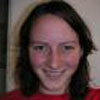
Susanna Ricco is a senior at Harvey Mudd College, with a joint major in Computer Science and Mathematics.
Susanna has pursued two independent areas of research. Working for two summers at Sandia National labs, she has created a system for adjusting a detailed model of an aerodynamic shape so that it closely matches observed vibrational data. She surpassed all expectations by creating a fully automatic system. At Harvey Mudd Susanna was the organizational and technical lead of the four-person team that created Harvey Mudd’s entry into AAAI’s 2005 robot competition. This robot won the competition even though it was an order of magnitude cheaper than any other entry and all of the code was written from scratch by the team members.
Susanna has received scholarships from Lockheed Martin and Akamai. She is strongly involved in the student chapter of the ACM. In addition to her computer science interests, Susanna holds an FCC amateur radio license and is active in public service and emergency communications.
Kanat Tangwongsan – Male Runner-Up
Senior at Carnegie Mellon University
Kanat Tangwongsan is a senior at Carnegie Mellon University, majoring in Computer Science.
Kanat’s research combines theoretical computer science and system building. His primary work is toward a semi-automated system for converting static algorithms that compute an output from an input into dynamic algorithms that efficiently maintain an input/output relationship as the input changes incrementally. This work has required both system-building skills and the theoretical discovery of new algorithms and data structures. The work has led to one publication and two more papers currently in preparation.
In addition to his research and the time required to obtain a perfect GPA, Kanat spends a lot of time as a teaching assistant and mentoring other students. Prior to entering CMU, Kanat won first place in Thailand’s National Olympiad of Informatics in 2000.
Finalists and Honorable Mentions
Finalists (Female)
Sarah Aerni, UC San Diego
Dana Glasner, New York University/Yeshiva University
Anna Huang, University of Southern California
Kathryn Seyboth, Tufts University
Inna Zakharevich, Harvard University
Finalists (Male)
Salvatore Guarnieri, University of Virginia
Jonathan Su, University of Washington
Robert (Kang-Xing) Jin, Harvard University
Yevgeniy Medynskiy, Cornell University
Christopher Hundt, McGill University
Honorable Mentions (Female)
Timsy Bir, University of Colorado at Boulder
Claire Lackner, Columbia University
Catherine Lennon, Columbia University
Marjorie Locke, University of Western Ontario
Lindsay Semler, DePaul University
Marcella Tanzil, Ohio State University
Ella Wellman, University of Wyoming
Sherita Andrews, Auburn University
Krista Davis, University of Washington
Danielle VanDyke, Michigan Technological University.
Honorable Mentions (Male)
John Novatnack, Drexel University
Gregory Harm, Brown University
Abninder Litt, University of Waterloo
Benjamin Hindman, University of Washington
Evan Sultanik, Drexel University
David Blinn, Dartmouth College
Khanh Do Ba, Dartmouth College
Wei Tu, University of California at Berkeley
Muhammad Ahmad, Rochester Institute of Technology
Wei-Lung Dustin Tseng, University of British Columbia.
2005
Sponsor: Microsoft Research
Mitsubishi Electric Research Labs and Microsoft Research are sponsors in alternate years.
Selection Committee:
Kathleen McKeown, Columbia University (Chair); Oscar Garcia, University of North Texas; Hank Korth, Lehigh University; and Ran Libeskind-Hadas, Harvey Mudd College
Andrea Grimes – Female Awardee
Senior at Northeastern University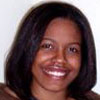
Andrea Grimes is a senior in the Honors Program at Northeastern University, majoring in Computer and Information Science.
Andrea’s research focused on identification and visualization of language patterns in biology papers. She has also done research on the use of support vector machines for classifying diagrams. This research resulted in three published papers, including one as first author that she presented at the IEEE Bioinformatics Conference at Stanford in fall 2003. In the area of human computer interaction, Andrea has investigated the display of information on mobile devices in order to maintain privacy. Andrea has maintained the top GPA in her College (2001-03) and is a member of Phi Kappa Phi National Honors Society and Upsilon Phi Epsilon. She was awarded first- place honors in the Roland E. Lantham Oratory Competition and was chosen as one of two U.S. representatives to the 2004 World Association for Cooperative Education Conference on work-integrated learning.
Andrea gives generously of her time to a variety of service, outreach, and community activities. She serves as a mentor for computer science students at Northeastern, as a mentor for high-school students through a local higher-education resource center, and as a computer-technology instructor for a local inner-city community center. At Northeastern, she is active in the Choral Society and is a member of several gospel groups.
Mihai Patrascu – Male Awardee
Junior at MIT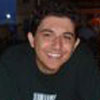
Mihai Patrascu is a junior at MIT, where he majors in Mathematics with Computer Science.
Mihai’s research is in the area of data structures and algorithms. Mihai has solved three major open problems over his three years at MIT: in his freshman year, he solved a problem in data structures that had remained open for the last 20 years—tight upper and lower bounds on the partial-sums problem; in his third semester, he proved logarithmic lower bounds for several problems that were conjectured to require logarithmic time for over 20 years; and in his fourth semester, he made a major breakthrough in dynamic optimality. These and related results have been published in two papers at STOCS and FOCS, the top theory conferences, and in two separate papers at SODA, the premier algorithms conference. His publication record includes an additional four papers.
Mihai also has a perfect academic record, with a 4.0 GPA. Before entering MIT, he received numerous silver and gold medals in Informatics Olympiad competitions. Once at MIT, he worked as a volunteer to help organize the high-school Olympiads in Romania and the Balkans.
Jane Lin – Female Runner-Up
Senior at University of Maryland, College Park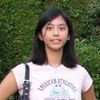
Jane Lin is a senior at the University of Maryland, College Park, majoring in computer engineering.
Jane’s research focused on the behavior of solutions to the Boolean Satisfiability (SAT) problem. She designed and implemented a random 3SAT generator that builds 3SAT instances possessing particular properties. Using the generated data, she and her colleagues showed that the hardness of a problem is related to the number of solutions that an instance has. These results were published at AAAI-04. In addition to her research, Jane served as an Undergraduate Teaching Fellow for two semesters. She won the Best Project Award in the NSF-sponsored MERIT program (2003) and the Career and Technology Excellence in Career Technology Internship Award in 2001. She has been on University of Maryland’s Dean’s List and the National Dean’s List (2002-04).
Jane is a Cuong Nhu martial arts instructor at Tzu-Chi/Deh-Ming Chinese School and has been Senior Advisor, Secretary, and Historian of the Chinese Student Association.
Suporn Pongnumkul – Female Runner-Up
Senior at Carnegie Mellon University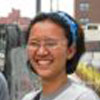
Suporn Pongnumkul is a senior at Carnegie Mellon University, with a double major in Math and Computer Science.
Suporn’s research addressed the problem of developing and evaluating a new algorithm for the List Update problem. Together with her collaborators, she proposed a new way to evaluate the List Update problem using a method that bridges the gap between competitive analysis and average case analysis. Suporn wrote a simulator to see how the new evaluation method evaluates both their new List Update algorithm and some existing well-known algorithms for the problem. The simulation results show that they have a promising criterion to judge how good a List Update algorithm is in practice. Suporn has also done research in computer vision. She developed a program to detect the status of a stereo receiver by pointing a camera at the stereo’s front panel. Her academic record is strong; she is one of a handful of computer science students at CMU with a 4.0 GPA.
Suporn is active in service; she has served as an academic peer tutor, a lab assistant for a computer cluster, and a grader. She served as treasurer of the Thai Student Association at CMU, and has worked with the Chesapeake Habitat for Humanity in Baltimore and as a volunteer English teacher in Thailand.
Aditya Sunderam – Male Runner-Up
Senior at Harvard University
Aditya Sunderam is a senior at Harvard University, majoring in Computer Science and Economics.
Aditya’s research focuses on preference elicitation in multiattribute auctions. He implemented a simulation of a new multiattribute auction proposal and measured its preference elicitation properties. He was the lead author on the resulting paper, published in the ACM Conference on Electronic Commerce, the leading conference in the area. He has recently begun new research in the area of sensor networks using classic methods from market equilibrium.
Aditya has served as a volunteer in Harvard University ExperiMentors (2002-present), in Boston Online Tutoring (mathematics tutoring for elementary students) (2001-02), and in Project Health: Boys Sports and Nutrition program (2003-04). He is active on the Harvard Ultimate Frisbee Team and the Boston Ultimate Disc Alliance, and was a columnist with the Harvard Political Review (2001-02).
Finalists and Honorable Mentions
Finalists (Female)
Shao-shan Huang, University of British Columbia
Amy Sliva, Georgetown University
Li Yan, York University
Finalists (Male)
Dmitriy Bespalov, Drexel University
Bogdan Caprita, Columbia University
Cary Cherng, University of Washington
Charles Davi, Hunter College CUNY
Jared Go, Carnegie Mellon University
Steve Hanneke, University of Illinois, Urbana-Champaign
Pawel Wrotek, Brown University
Honorable Mentions (Female)
Sarah Bell, Brown University
Stephanie Collett, University of Washington
Katherine Coons, University of Virginia
Shilpa Desai, Carnegie Mellon University
Rui Dong, Harvard University
Neha Jain, North Carolina State
Daphne Liu, Simon Fraser University
Maryam Mahdaviani, University of British Columbia
Ami Malaviya, University of Virginia
Carol Nichols, University of Pittsburgh
Elizabeth Saftalov, Purdue University
Karolina Sarnowska, Mississippi State University
Dong-Hui Xu, DePaul University
Jenny Yuen, University of Washington
Honorable Mentions (Male)
Robert Adolf, Northwestern University
Achraf Allali, University of South Carolina
Jesse Attas, University of Waterloo
Peter Barnum, University of Rochester
Nels Beckman, University of Southern California
Bhargav Bhatt, Columbia University
Alan Boyle, Mississippi State University
Christopher Burns, University of Texas at Austin
Daniel Chong, Illinois Institute of Technology
Brian Cornell, Northwestern University
Michael Coupland, Harvey Mudd College
Beau Crawford, University of Washington
Matthew Curry, University of Alabama at Birmingham
Vinayak Deshpande, University of Virginia
Peter Djalaliev, Washington and Lee University
Lior Elazary, University of Southern California
Nick Elprin, Harvard University
Micha Elsner, University of Rochester
Powei Feng, University of Texas at Austin
Robin Friedman, UC San Diego
Zachary Friggstad, University of Lethbridge
Shougata Ghosh, University of Virginia
Erwin Gianchandani, University of Virginia
Steven Hakusa, New York University
Stephen Hanssen, Texas A&M
John Hugg, Tufts University
Tyler Johnson, North Carolina State
Chad Jones, University of Tennessee
Brendan Juba, Carnegie Mellon University
Christopher Kanich, Purdue University
Joseph Kopena, Drexel University
Dustin Kozal, University of Nebraska at Kearney
Srinivas Krishnan, SUNY Brockport
Stanislav Luban, Purdue University
Kenneth MacKay, University of British Columbia
Panayiotis Mavrommatis, MIT
Rory McGuire, University of New Mexico
Patrick Meredith, University of Illinois, Urbana-Champaign
Paul Ralph, Memorial University
Aaron Roth, Columbia University
Jon Sargeant, Arizona State University
Paul Shafer, Cornell University
Najaf Shah, University of Alabama at Birmingham
Leo Singleton, Georgia Tech
David Sontag, UC Berkeley
Brian Tagiku, Harvey Mudd College
Arsalan Tavakoli, University of Virginia
Brian Tran, UC San Diego
Michael Tschantz, Brown University
Matthew Vail, North Carolina State
Minh Vu, University of Arkansas
Nicholas West, New York University
Timothy Williamson, Dartmouth College
Michael Yu, UC Berkeley
2004
Sponsor: Mitsubishi Electric Research Labs
Selection Committee: David Novick, University of Texas at El Paso (Chair); Ran Libeskind-Hadas, Harvey Mudd College; Kathleen McKeown, Columbia University; and Frank Tompa, University of Waterloo
Anna Cavender – Female Awardee
 Senior at University of Oregon
Senior at University of Oregon
Anna Cavender is a senior at the University of Oregon. She will receive her Bachelor’s degree in Computer and Information Science in June 2004.
Anna’s research is in human-computer interaction. Her research combines intellectual challenge with an extraordinary commitment to public service. Her time and efforts have been dedicated to research that opens up the creative and scientific world for those who are currently locked out through gender inequality or physical impairments. Anna first contributed to a project on computer games aimed at countering the social pressures that turn middle-school girls away from mathematics and computers. She was the primary programmer with a group of eight art students.
She is now taking a leading role in a life-changing project to enable profoundly paralyzed children to draw pictures with their eyes. Anna’s leadership in the project has involved not only the technical work, such as recognizing “pen up” and and “pen down” gestures with only eye motion as input, but also in integrating research on the role and progression of artistic expression in children’s development. One paper on this project has already been submitted and two more are in preparation, and the research results will be the subject of a patent application.
Anna was awarded the Erwin and Gertrude Juilfs Academic Scholarship, a CSEM scholarship, and a research assistantship. She currently works as a database administrator for the Department of Computer and Information Science.
Thuc Vu – Male Awardee
Third Year at Carnegie Mellon University
Thuc Vu is in his third year of studies at Carnegie Mellon University. He will receive his Bachelor’s degree in Computer Science in May 2004.
Thuc has done significant research in artificial intelligence, contributing to two major projects. In one project, he developed a novel set of techniques that enable a designer of a multi-agent system to specify team behaviors for autonomous agents. This work included a new approach that introduced structural constraints, thus ensuring designs that would be more efficient at run-time. With his teammates, he then created an experimental test-bed for evaluating team-behavior specifications in complex and dynamic virtual worlds. In another project, Thuc single-handedly developed a simulator and optimizer for difficult logistics optimization problems. He continued to work on the core optimizer, combining a constraint-based method followed by multi-phase simulated annealing in the convex-hull of constraints to minimize costs and maximize a satisfaction function.
Thuc is also currently working on a method of automatically generating C code from specifications of agent behavior. He was the first author and presenter of a paper at AAMAS-2003, co-author of a paper at the Third ACG Workshop in 2003, and is the principal author of a paper that he and his research advisor plan to submit to AAMAS-2004. A senior faculty member describes Thuc as “simply off the scale, far off the scale.”
Thuc maintains a 4.0 average in his course work, majoring in Computer Science with a minor in Mathematics. He was selected for the Dean’s List from 2001 to 2003, and was recently initiated into the Phi Beta Kappa Society. He has been a tutor for many students in several classes, including a challenging Discrete Math class for CS majors; he is also the founder and co-president of the Vietnamese Student Association at CMU. He has been a summer intern at VT Tech Company, eMed Technologies, and Bosch Research Technology Center. Thuc won the 2001 USACO International Spring Contest in Programming and the 2001 USACO American National Olympiad in Programming, and was named to the 2001 All-American Programming Team.
Heather Ann Wake – Female Runner-Up
Senior at University of South Carolina
Heather Ann Wake is a senior at the University of South Carolina. She will receive her Bachelor’s degree in Computer Engineering with a minor in Business Administration in May 2004.
Heather’s research centers on high-performance computing, particularly the use of reconfigurable computers. Among her accomplishments are multiple hardware implementations of a Lehmer sieve application, which were synthesized for a Star Bridge Systems Hypercomputer platform. More recently, she has been the principal integrator of VHDL for hardware programming with EDIF specifications for applications. Heather has co-authored papers published at MAPLD 2003 and in the Proceedings of the Lectures in Honour of the Sixtieth Birthday of Hugh Cowie Williams, to be published by the Fields Institute, Toronto, Canada, and was the lead author and presenter of a paper at the 2003 IEEE FCCM Symposium.
Heather serves as a research fellow while also working as a television technician for the University of South Carolina. Before that, she worked as an administrative assistant and as a sales associate at area businesses. While working, she has maintained a 3.97 GPA, has repeatedly been named to the President’s List, and has received numerous other academic honors and scholarships. She was inducted into Phi Beta Kappa and serves as the Executive Council Student Member for the USC chapter, and serves as Web Coordinator for Tau Beta Pi, the national engineering honor society. She has also served as head diving coach for the Five Oaks Swim Club and as a multi-sport coach for the Champions All Sports School.
Ethan Eade – Male Runner-Up
Senior at Duke University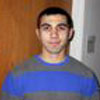
Ethan Eade is a senior at Duke University. He will receive a Bachelor’s degree with majors in both Computer Science and Mathematics in spring 2004. As a 2003 Marshall Scholar, he will attend the University of Cambridge in fall 2004 where he will study robotics and distributed systems.
Ethan is interested in multiple areas of computer science and has contributed foundational research to several projects. For the ModelNet project, a large-scale wide-area network emulation system built on commodity hardware, he researched the application of graph partitioning to the assignment of network links to multiple computers. Ethan was co-author of a paper resulting from ModelNet published at MASCOTS ‘03, lead author of a paper on peer-to-peer networks and distributed event notification at ICTSM11, co-author of a paper on navigation algorithms at ICRA 2003, and will co-author a paper on developing a programming environment for beginning students.
Ethan maintains a 4.0 grade point average in Computer Science and is currently ranked seventh in his class at Duke. He has been named to the Dean’s List every semester and has received numerous scholarships and awards, including the Angier B. Duke Memorial Scholarship and the Barry Goldwater Scholarship. He served for two summers as an undergraduate research assistant and served as a summer intern at Cape Computing, Inc. Ethan is president of the Duke Robotics Team and is an avid musician, playing in the Duke Symphony Orchestra as principal trumpet, in student musical productions as trumpeter and orchestral director, and in various other musical groups.
Finalists and Honorable Mentions
Finalists (Female)
Katie Messerly, University of Texas at Austin
Margaret Yau, University of California, Berkeley
Meng Yu, University of California, Berkeley
Finalists (Male)
Abhinav Agrawal, Princeton University
Gautam Altekar, University of Rochester
Bogdan Caprita, Columbia University
Ankur Datta, University of Central Florida
Daniel Licata, Brown University
Stefan Schoenmackers, University of California, San Diego
Honorable Mentions (Female)
Amanda Askew, University of Washington
Stacy Crochet, University of Louisiana, Lafayette
Jeniffer Dietrich, Southern Methodist University
Katherine Hirsch, University of Maryland, Baltimore Co.
Crystal Hoyer, University of Washington
Genevieve Hudak, University of Colorado, Boulder
Arati Kurani, DePaul University
Katrina Ligett, Brown University
Ellie Lin, University of Texas, Austin
Kristen Neal, University of Virginia
Shraddha Pai, University of Waterloo
Erika Rice, Harvey Mudd College
Bina Shah, University of Alabama, Birmingham
Erika Shehan, Purdue University
Elsa Tai, University of Texas, El Paso
Nina Tang, Purdue University
Kimberly Tee, University of British Columbia
Jane Tougas, Dalhousie University
Sarah Tyler, Carnegie Mellon University
Kristin Vadas, Georgia Institute of Technology
Dong-Hui Xu, DePaul University
Grace Zheng, University of British Columbia
Honorable Mentions (Male)
Muhammad Arshad, Florida Institute of Technology
Brian Aydemir, California Institute of Technology
Ilya Bagrak, Georgia Institute of Technology
Andrew Bortz, Carnegie Mellon University
Alan Boyle, Mississippi State University
Christopher Bradley, University of Washington
Kurt Brown, University of South Alabama
Anshuman Chadha, UC Irvine
Hayward Chan, University of Michigan
Sonny Chan, University of Calgary
Victor Chen, University of Texas, Austin
David Chu, University of Virginia
David Dewey, University of Washington
Kun Gao, UC Berkeley
Eric Goldlust, Johns Hopkins University
Carl Gould, UC Davis
Stephen Ingram, Georgia Institute of Technology
Cheuk Yiu Ip, Drexel University
Elliott Karpilovsky, California Institute of Technology
Benjamin Laxton, University of Delaware
Richard Liang, University of British Columbia
Fei Ma, Simon Fraser University
Adrian Mettler, Harvey Mudd College
Clint Morgan, University of New Mexico
Michael Munie, University of Illinois, Urbana-Champaign
Mark Nelson, Harvey Mudd College
Luke Olsen, University of Calgary
Matthew Price, University of Louisiana, Lafayette
Gerald Quon, University of Waterloo
Imran Rashid, University of Illinois, Urbana-Champaign
Matthew Rasmussen, University of Minnesota
Joseph Reisinger, University of Texas, Austin
Albert Robinson, University of Rochester
Kambiz Samadi, California State University, Fresno
Saurabh Sanghvi, Harvard University
Grant Schoenebeck, Harvard University
David Schultz, UC Berkeley
Aleksandr Simma, UC San Diego
Ankit Tandon, Louisiana State University
Arkadej Udompanyavit, UC Irvine
James Van Dyke, University of Virginia
Tristan Weir, Arizona State University
Gary Yee, University of Arizona
2003
Sponsor: Microsoft Research
Selection Committee: David Novick, University of Texas at El Paso (Chair); Ran Libeskind-Hadas, Harvey Mudd College; and Frank Tompa, University of Waterloo.
Bistra Dilkina – Female Awardee
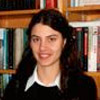 Senior at Simon Fraser University
Senior at Simon Fraser University
Bistra Dilkina is a senior at Simon Fraser University, and will receive a Bachelor’s degree in Computer Science in spring 2003.
Bistra’s research is in artificial intelligence. She has been developing a constraint programming system for solving difficult scheduling problems. In addition to her conceptual contributions, Bistra is the project’s lead programmer. A spin-off company incorporating some of her research results has been formed by Simon Fraser University. The research is being published at the Third International Workshop on Constraint Programming and Belief Revision in Sydney, Australia.
Bistra was awarded a research assistantship in Simon Fraser University’s Intelligent Systems Lab. She has won numerous scholarships and awards, including the International Shrum Scholarship. Bistra is representing her university in the ACM Programming Competition, and helped to prepare training materials for her team. Her extensive record of public service includes work for the St. James Community Service Society, which provides help and shelter to people with mental illness.
Omar Khan – Male Awardee
Fourth Year at Cornell University
Omar Khan is in his fourth year at Cornell University. He will receive his Bachelor’s degree in Computer Science in May 2003.
Omar has done significant research in data analysis techniques. He has addressed a wide variety of problems at both the theoretical and implementation levels. Omar’s work involves attempting to cluster all documents in the NEC CiteSeer collection and determining how the clustering changes with time. Omar posed fundamental questions about the nature of structures found by clustering algorithms. He contributed to the development and implementation of a sophisticated clustering technique that he then validated using several independent methods. His range of skills includes theoretical analysis, careful experimentation, and explanation of results. Additionally, he obtained research results in stochastic search and in sensor fusion. Omar and his advisors are now writing papers that will disseminate his work.
Omar ranked first in his class of nearly 700 students at Cornell in his freshman and sophomore years. He has been a teaching assistant and a course consultant at Cornell. He has also been a research assistant at Cornell, a summer research intern at McGill University, a summer research intern at Xerox PARC, and a student researcher and project leader at the Cornell Theory Center. Omar has won national recognition in mock trial competitions. At Cornell University, he was awarded the 2002-03 Frank and Rosa Rhodes Scholarship and has been named to the Dean’s List in every semester of his undergraduate studies. He has participated in a variety of outreach activities with the Cornell Theory Center.
Julie Thornton – Female Runner-Up
Senior at Kansas State University
Julie Thornton (Runner-Up) is a senior at Kansas State University. She will receive Bachelor’s degrees in Computer Science and in Mathematics in May 2003.
Julie has contributed to multiple fields in computer science. She has developed and implemented, and has worked on performance evaluation for, sampling algorithms for Bayesian networks. She has worked on computer-aided instruction, creating a critiquing module for a tutoring system for college algebra. And she is currently helping geology faculty by working on using the Fourier transform to rescale digital images to lower resolutions. In her work on designing and implementing sampling-based approximation algorithms for Bayesian networks, she implemented a system, augmented the system with a new adaptive importance sampling design, and instrumented a full suite of experimental tools. She has co-authored two AAAI 2002 student posters, a paper at the 2002 Genetic Evolutionary Computation Conference, and a journal article in preparation.
Julie has served as a lab instructor at Kansas State, teaching classes and training instructors in college algebra, intermediate algebra, and general chemistry. She was awarded research assistantships in both the Department of Mathematics and the Department of Computer Science at Kansas State. Julie co-advised two graduate-student project groups. She has received numerous academic honors and scholarships, including a 2002-03 CRA Collaborative Experience for Women (CREW) award. She has volunteered to help children in a number of programs.
Noah Snavely – Male Runner-Up
Senior at University of Arizona
Noah Snavely (Runner-Up) is a senior at the University of Arizona. He will receive a Bachelor’s degree in Computer Science and Mathematics in spring 2003.
Noah is interested in compiler optimization. His work has focused on post-linktime optimization for explicitly parallel instruction computing (EPIC) architectures. He single-handedly ported optimizing software to work on the Intel/HP Itanium architecture in record time, creating the Itanium Link-Time Optimizer. Over the last year, his work has focused on improving the efficiency of the optimized code. He developed a novel approach in which predication can be postponed to late in the compilation process. He has also developed new algorithms for analyzing predicated code and has evaluated their efficiency. He is the lead author of a paper submitted to the ACM/IEEE International Symposium on Code Generation and Optimization.
Noah has been an undergraduate research assistant in both the Department of Mathematics and the Department of Computer Science at the University of Arizona. He maintains a 4.00 grade point average, and was awarded the Helen and John Murphey Foundation Scholarship. He is an avid composer and performer of music. He regularly participated in the Tucson Symphony Orchestra’s Young Composers Project, played the bagpipes at the 2002 World Pipe Band Competition in Glasgow, and performed on the bassoon at Carnegie Hall.
Finalists and Honorable Mentions
Finalists (Female)
Erin Earl, University of Washington
Kylie Evans, Harvey Mudd College
Kristen Stubbs, University of Minnesota, Twin Cities
Finalists (Male)
Chand John, University of Texas at Austin
Colin McMillen, University of Minnesota, Twin Cities
Alexander Sherstov, Hope College
Yuli Ye, University of Waterloo
Honorable Mentions (Female)
Karen Brennan, University of British Columbia
Stacy Crochet, University of Louisiana, Lafayette
Breanne Duncan, University of New Mexico
Julie Farago, Harvard University
Kimberly Ferguson, University of California, Irvine
Erica Findley, Mississippi State
Leticia Fuentes, University of Texas, El Paso
Archana Ganapathi, University of California, Berkeley
Emily Gibson, College of New Jersey
Rachel Gockley, Carnegie Mellon University
Kristina Holst, Columbia University
Youngji Kim, University of Washington
Tiziana Ligorio, Hunter College
Mahshid Madani, University of New Brunswick, Saint John
Mi Peng, University of Virginia
Hannah Rohde, Brown University
Rachel Smith, University of Texas, El Paso
Mira Stoilova, Harvey Mudd College
Victoria Sweetser, University of Rochester
Lisa Torrey, Dartmouth College
Boriska Toth, Carnegie Mellon University
JenineTurner, University of Rochester
Lauren Wye, University of Virginia
Honorable Mentions (Male)
Colin Bleckner, University of Washington
Christopher Cabanne, University of California, Irvine
Jason Calhoun, James Madison University
Andrew Catton, University of British Columbia
Ryan Caudy, Johns Hopkins University
Ping Chen, University of California, Irvine
Leonard Chung, University of California, Berkeley
Wesley Coelho, University of British Columbia
Daniel Conti, College of the Holy Cross
Michael DeRosa, Dartmouth College
Mark Dredze, Northwestern University
Chris Feng, University of Toronto
Thomas Finley, Duke University
Brett Flegg, University of Waterloo
Meena George, Columbia University
Robert Goretsky, University of Delaware
Ronen Gradwohl, University of California, Berkeley
Benjamin Hosp, Roanoke College
Wojciech Jarosz, University of Illinois, Urbana-Champaign
Sean Jellish, University of Virginia
Adam Kirsch, Brown University
Samson Kwong, University of Washington
Joseph Lammersfeld, University of Notre Dame
Florent Launay, Florida Institute of Technology
Marius Leordeanu, Hunter College
Phillipe Loher, North Carolina State University
Jonathan McCune, University of Virginia
Mahdi Mekic, Lamar University
Edward Miller, Harvey Mudd College
Anton Morozov, Hunter College
Blaine Nelson, University of South Carolina, Columbia
Jonathan Nilsson, University of Maryland, Baltimore Co.
Vijay Reddi, Santa Clara University
Albert Robinson, University of Rochester
Michael Rosulek, Iowa State University
Samir Sapra, Carnegie Mellon University
Jonathan Schmid, University of Rochester
Ben Sigelman, Brown University
Jerry Sun, University of Texas, Austin
Richard Tichy, University of Western Ontario
GilmanTolle, Carnegie Mellon University
Adam White, University of New Brunswick, Saint John
Jerome White, Rensselaer Polytechnic University
Benjamin Wyser, Mississippi State University
David Xiao, Harvard University
Joseph Zadeh, Northwestern University
2002
Sponsor: Mitsubishi Electric Research Labs
Selection Committee: Gregory Andrews, University of Arizona (Chair); Lori Clarke, University of Massachusetts, Amherst; and Michael Scott, University of Rochester.
Allegra Angus – Female Awardee
 Senior at Cornell University
Senior at Cornell University
Allegra Angus is a senior at Cornell University. She will receive Bachelor’s degrees in Computer Science and Mathematics in January 2002.
Allegra’s research is in program logic and semantics. She has helped develop techniques that enable one to prove equivalence of program schemes by converting the schemes to algebraic expressions and then proving their equivalence by manipulating equations. She has co-authored a paper describing the technique, and is now building an automated equational verification tool that will be useful for a variety of verification tasks.
Allegra has had summer internships at Intel (twice) and Xerox (twice). She helped develop a non-programming introductory course in Computer Science at Cornell, and she performs with the Cornell symphony, chamber orchestra, and women’s chorus.
Allegra holds an Intel Women in Science and Engineering Scholarship.
Adam Stubblefield – Male Awardee
Third Year at Rice University
Adam Stubblefield is in his third year of studies at Rice University. He will receive a Bachelor’s degree in Mathematics in May 2002.
Adam has done significant research in computer security and applied cryptography. For example, this past summer he developed the first attack on a wireless computing standard, the Wireless Equivalent Privacy (WEP) protocol; his results were reported on by CNN and The New York Times, among others. Adam has co-authored six papers; one received the best paper award at the Network and Distributed Systems Symposium in February 2001. He will be on the program committee of the next USENIX Security Symposium.
Adam has been a teaching assistant for three courses at Rice. He has also been an intern at Wang, Xerox PARC, and AT&T Labs. He holds a USENIX Scholars Fellowship and is a Rice Undergraduate Scholar.
Sara Su – Female Runner-Up
Senior at University of Washington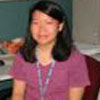
Sara Su is a senior at the University of Washington. She will receive a Bachelor’s degree in Computer Engineering in June 2002.
Sara has contributed to three quite different fields. During a summer internship at Cray, Inc., she developed software modules for the Tera multithreaded architecture. She has developed tools to automate the production of course materials as part of a Tutored Video Instruction project to support distance education. Most recently she has developed techniques for artistic rendering and handwriting synthesis during an internship at Microsoft Research, China; she has co-authored two papers describing these results.
Sara is an officer of the ACM student chapter at Washington, active in departmental outreach efforts, and a former officer of the Washington chapter of Eta Kappa Nu, the EECS honor society. She has received numerous scholarships and academic honors
Alexander Fabrikant – Male Runner-Up
Senior at University of California, Berkeley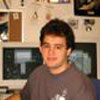
Alexander Fabrikant is a senior at the University of California, Berkeley. He will receive a B.S degree in Electrical Engineering and Computer Science, and a B.A. degree in Mathematics and Linguistics, in May 2002.
Alex is interested in theoretical aspects of computer science, especially algorithms. He has worked on three different projects: quantum computing heuristics for graph coloring, statistical analyses and string indexing methods for comparative genomic analysis, and, most recently, asymptotic bounds for problems relating to models of the graph structure of the Internet. He has co-authored papers on each topic and has developed software implementations of his results.
Alex has been a summer intern at Xerox PARC and a math tutor, course reader, and teaching assistant at Berkeley. He has been an officer for two years in the Berkeley chapter of Eta Kappa Nu, the national EECS honor society, and has also been active in community service.
Finalists and Honorable Mentions
Honorable Mentions (Female)
Emily Chung, UC Berkeley
Arel Cordero, University of Oregon
Shirley Gaw, University of Washington
Jennifer McDonald, Northeastern University
Leah Miller, Carnegie Mellon University
Elizabeth Partridge, University of Virginia
Ana Ramirez, Carnegie Mellon University
Sindy Tang, California Institute of Technology
Sarah Tierney, University of Texas, Austin
Jenine Turner, University of Rochester
Rachel Weinstein, Brown University
Cory Williams, Carnegie Mellon University
Honorable Mentions (Male)
Frank Apap, Columbia University
Nathaniel Ayewah, Southern Methodist University
Bachir Babale, University of Oklahoma
Nate Chambers, University of Rochester
Andrew Chatham, Duke University
Jon Eddy, Harvard University
Brian Gaeke, UC Berkeley
Philip Godfrey, Carnegie Mellon University
Mark Hancock, Simon Fraser University
Andrew Honig, Columbia University
Bradford Hovinen, University of Delaware
Chand John, University of Texas, Austin
Andrew Ko, Oregon State University
Mark Kwan, University of British Columbia
Delwin Lee, University of Texas, Austin
Harry Li, Brown University
Haining Liang, University of Western Ontario
Steven Marx, University of Rochester
Chad Myers, Southern Methodist University
Ashish Myles, University of Florida
Stavan Parikh, University of Virginia
Mitchell Peabody, Drexel University
Nicholas Ramey, Johns Hopkins University
Jeremy Schea, Taylor University
Benjamin Schwarz, University of Arizona
Veselin Stoyanov, University of Delaware
Niraj Tolia, Carnegie Mellon University
Christopher Wilson, University of New Mexico
2001
Sponsor: Microsoft Research
Selection Committee: Gregory Andrews, University of Arizona (Chair); Lori Clarke, University of Massachusetts, Amherst; and Michael Scott, University of Rochester.
Lisa Anthony – Female Awardee
Fourth Year at Drexel University
Lisa Anthony is majoring in computer science at Drexel University. She is in the fourth year of a five-year Bachelor of Science/Master of Science program.
Lisa is a research assistant in the Geometric and Intelligent Computing Laboratory at Drexel. She has helped to develop a computer-aided conceptual design environment and is currently working on the use of decision-theoretic and case-based planning techniques for the control of distributed, multi-agent systems. Lisa has co-authored four papers and presented two papers at major conferences. She has also been a summer researcher at the National Institute of Standards and Technology (NIST).
Lisa has received numerous honors at Drexel, including the 1999 Award for Outstanding Industry, Leadership, and Academics in Computer Science; and the AT&T Undergraduate Research Fellowship for 2000. She has also been an assistant Webmaster for her department.
Kevin Zatloukal – Male Awardee
Senior at University of Washington
Kevin Zatloukal is a senior majoring in both computer science and mathematics at the University of Washington.
Kevin has developed a new algorithm for nearest-neighbor searches in data compression. He has also worked on several aspects of data caching with colleagues at Microsoft Research, where he has spent three summers. This work includes algorithm design and structure layout for improved cache performance and a cache-conscious Web server. Kevin’s work has resulted in three papers and a patent. He is now working on problems in computational molecular biology.
Kevin has been a teaching assistant for four courses, a mentor to disabled high-school students, and a tutor for the Women in Engineering program. He has been named a University of Washington Undergraduate Scholar, a Mary Gates Scholar, and a Robert C. Byrd Honors Scholar.
Litza Stark – Female Runner-Up
Senior at University of Delaware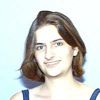
Litza Stark (Runner-Up) is a senior at the University of Delaware. She is majoring in computer science and Spanish, with minors in cognitive science, linguistics, and psychology.
Litza’s research interest is in human-computer interaction, particularly natural language processing. She has done experimental research on language acquisition and is interested in analyzing the mental representation of language with the goal of modeling it. She has co-authored a paper and is currently working on an honor’s thesis. Litza has been a research assistant for projects in both computer science and cognitive science, and she has worked two summers at AT&T Research Labs.
Litza has received the Delaware Academy of Science Award, several academic scholarships, and departmental awards as the outstanding junior and outstanding female. She is a member of Phi Kappa Phi and Upsilon Pi Epsilon. Litza is currently a teaching assistant, and she has helped to develop a program to attract high-school girls into computer science.
Russell Cox – Male Runner-Up
Fourth Year at Harvard University
Russell Cox (Runner-Up) is a fourth-year student majoring in computer science at Harvard University. He expects to receive both Bachelor’s and Master’s degrees in June 2001.
Russell is interested in the use of file system abstractions to simplify programs and the interfaces between them. He has worked at Bell Labs for four summers. His accomplishments there include creating the first demonstrations of what is now AT&T’s “instant answers” service. He has also worked on several aspects of the Plan 9 operating system, including graphics subsystems, terminal emulators, and installation software. His senior thesis is exploring ways to improve the performance of the Plan 9 graphics subsystem. At Harvard he has worked on the implementation of concurrent languages and systems, and he has helped to revise a programming languages textbook.
Russell has been a teaching fellow for introduction to theory of computing (three times) and survey of programming languages (once). For the past two years he has also been a coach for the US Computing Olympiad for high-school students.
Finalists and Honorable Mentions
Honorable Mentions (Female)
Deborah Abel, Harvard University
Kimberly Jackson, Xavier University of Louisiana
Meredith Ringel, Brown University
April Slayden, Millsaps College
Sara Smolensky, Mississippi State
Virginia Volk, University of Virginia
Elizabeth Walter, Dartmouth College
Honorable Mentions (Male)
Matt Bell, Stanford University
Michael Brown, University of Waterloo
Benjamin Carlson, University of Nevada Reno
Scott Carter, New Mexico University
Billy Chen, UC Berkeley
Tim Danner, Rice University
Gunes Ercal, University of Southern California
Tal Garfinkel, UC Berkeley
David Hauver, University of Virginia
Matt Huenerfauth, University of Delaware
Frederick Koopmans, U. of Illinois at Urbana-Champaign
David Latham, Dartmouth College
Ondrej Lhotak, University of Waterloo
Dan Maynes-Aminzade,Carnegie Mellon University
Thomas Murphy,Carnegie Mellon University
Matthew Rosencrantz, University of Washington
Krishna Roskin, UC Santa Cruz
Andrew Schwerin, Brown University
Joseph Wong, University of British Columbia
Steve Zhang, University of Washington

